Ayatollah Khomeini
description: an Iranian Shia Muslim religious leader who led the 1979 Iranian Revolution and became the country's Supreme Leader.
190 results
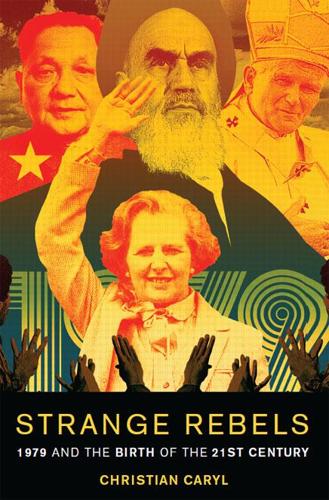
Strange Rebels: 1979 and the Birth of the 21st Century
by Christian Caryl · 30 Oct 2012 · 780pp · 168,782 words
as a harsh critic of the shah’s policies, openly articulating the objections that many other clerics were unwilling to utter aloud. This was Ayatollah Ruhollah Khomeini, who, in March 1963, “publicly accused the Shah of violating his oath to defend Islam and the Constitution.”7
…
liquor stores there. Now the students rioted again. Dozens were killed. Other leading clerics, though not quite as aggressive as Khomeini, shared his disapproval of the White Revolution; Grand Ayatollah Borujerdi, before his death, had issued several fatwas condemning aspects of the shah’s reform program. After the riots in Qom
…
, leading clerics worried that the shah was preparing to have Khomeini executed, and one of their most prestigious members, Grand Ayatollah Mohamed Kazem Shariatmadari, moved to have the title of “Grand Ayatollah” given to Khomeini as a preemptive measure. (Their reasoning was that the shah would never dare to
…
plainest of meals. His granite sense of remove alienated many of his Western observers. A British correspondent noted that the ayatollah did not deign to shake his hand and that Khomeini’s gaze remained fixed on some faraway point during their conversation.1 Iranians tended to see this otherworldliness as a
…
the precise course it took depended crucially on the political acumen and personal instincts of this one man. Khomeini’s supporters might argue that God had provided well; he had chosen the ayatollah as the medium through which he was determined to act. If we do not accept this belief, however
…
a willing instructor, he immersed himself in the subject. Because the religious authorities regarded erfan with a certain degree of suspicion, Khomeini’s teacher, Ayatollah Mohammed Ali Shahabadi, conducted his classes in the subject at home and always confined his students to a small but select group. There they
…
wooed by the shah with money and favors—was in no position to act as an alternate power center. In 1961, Grand Ayatollah Borujerdi died. This gave his pupil Khomeini the freedom to act as he saw fit. He now had no reason to hold back from public attacks against the shah
…
of Iran’s Shiites—a transparent attempt to undermine the authority of politically minded clerics back in Iran like Khomeini and his older (and somewhat more cautious) colleague Ayatollah Mohamed Kazem Shariatmadari. Khomeini was ready. In October 1962 the cabinet passed a law that allowed Iranians to vote for representatives to local
…
worst unrest in Iran since the fall of Mossadeq a decade earlier.13 Some within the government apparently considered sending Khomeini to the executioner. But Shariatmadari ensured his safety by awarding him the title of “grand ayatollah” (since the constitution prevented anyone of that exalted rank from capital punishment). In 1964
…
Khomeini was finally released after ten months in prison—just in time to wade into yet another political fray. This time the
…
to condemn these extravagances that are destroying the people and the nation, be assured that results would be forthcoming.19 By this time Khomeini’s relationship with Grand Ayatollah Shariatmadari, his ally back in 1963, was giving way to outright rivalry.20 Shariatmadari did not see the point in outright challenges to
…
shah’s modernization program intensified. The younger clerics were increasingly demanding a principled stand from the ulama. Aside from Khomeini, the only other leading religious scholar the young radicals took seriously was Ayatollah Mahmoud Taleqani, who had joined with Mehdi Bazargan in 1961 to form the Iran Freedom Movement. Taleqani, who
…
son Mostafa hailed their leader as the “imam.” According to a report by SAVAK, several other ayatollahs in Qom refused to participate in the mourning ceremonies, saying that they regarded Khomeini’s exaltation as an “insult.” But soon the revolution would no longer allow them the luxury of nonparticipation.22 8
…
a Shiite religious scholar who was living there in exile after making a name for himself as a merciless critic of the shah. The cleric, Ayatollah Ruhollah Khomeini, had been living outside of Iran for thirteen years. He had spent the first year of his banishment in Turkey, then moved to Najaf
…
the United States who was sympathetic to the cause Sazegara represented. A member of Khomeini’s entourage met him at Orly Airport and drove him to the Paris suburb of Neauphle-le-Château, where the ayatollah and his fellow activists were setting up a political headquarters that gradually took on the
…
in the direction of Mecca, and paid obeisance to the Creator of All the Worlds. The man they had followed to this unlikely place, Ayatollah Ruhollah Khomeini, was not a labor leader or a radical lawyer or a rabble-rousing young agitator with a thing for the opposite sex. He was a
…
strongly influenced by quietism, were reluctant to enter the political fray. This changed in October 1977. That month Khomeini’s eldest son died of an apparent heart attack, and thousands of the ayatollah’s supporters took to the streets to denounce the shah and his minions, whom they blamed for the
…
their chants mocking the king who had dared to defame their hero. “We demand the return of Ayatollah Khomeini,” they chanted.2 The security forces opened fire. Dozens of students were killed. The next day Khomeini published a statement calling for more demonstrations and congratulating the “progressive clergy” for finally standing up to
…
had become an accelerant of modern revolution.3 Violence surged again on March 29. In May, however, Ayatollah Shariatmadari called for calm—and this time the protesters listened to him rather than Khomeini. Many observers concluded that the shah was regaining the upper hand. The government had tried to placate the
…
food and fuel. The exiles in Neauphle-le-Château were feeling the cold, too. The ayatollah stuck to his rigorous schedule of prayer despite the complexities involved in remote-controlling a revolution. Throughout the year Khomeini had remained in constant contact with his network of supporters inside Iran. The state-of-
…
.10 Jubilant demonstrators toppled statues of the shah or cut his picture out of banknotes. Images of Khomeini replaced them. Demonstrators stuffed carnations in the barrels of soldiers’ guns. In Neauphle-le-Château, the ayatollah maintained his usual unruffled demeanor. “God is great,” he said when told the news. Then he
…
spirit of compromise, the honor was finally delegated to an Air France steward. Frenzied crowds swarmed around the airport as the ayatollah’s feet touched Iranian soil once again. Khomeini and his entourage could barely make it through the terminal building because of the hysterical mob; at one point his turban
…
a “return to despotism.” Thousands of his supporters, mostly “progressive Islamists” of a pro-Shariati coloration, took to the streets, chanting their ayatollah’s praises and denouncing “reactionaries”—meaning Khomeini and his entourage. This was a serious matter. The chain-smoking Taleqani was the revolution’s second-most popular figure and, for
…
boost to the provisional government’s ability to crack down on the chaos in the streets. But on May i, 1979, Ayatollah Morteza Motahhari—the loyalist who had run Khomeini’s network of supporters inside Iran as well as helping to establish Hosseiniye Ershad, the site of Shariati’s most famous
…
the key levers of power in the country, including the press. They convened on August 18. Khomeini, addressing the delegates, warned them that the constitution must be “100 percent Islamic.” Khomeini’s old rival Ayatollah Shariatmadari, who was now becoming one of the foremost critics of the new order, had urged postponement
…
34 In 1918, Lenin had sent in the troops to dissolve a democratically elected constituent assembly that didn’t follow his plan for Communist government. Ayatollah Khomeini, by contrast, succeeded in controlling the drafting process from within. From now on it was the clerics who shared his vision who would define the
…
vitality of Islamic teaching and seeking to unify itself into a single political entity. Afghani had a profound influence on Ayatollah Muhammad Ali Shahabadi, the scholar who initiated the young Ruhollah Khomeini into the mysteries of erfan. In Egypt a vigorous young thinker named Muhammad Abduh followed al-Afghani’s cue.
…
traditional values. The shah regarded his alliance with the Americans as a source of his power. Khomeini saw the shah’s links with Washington as a major weakness. From the very beginning, the ayatollah’s harsh polemics against the Americans were a major source of his public popularity. In 1964 his
…
in advance of the students’ plans to take over the embassy. By their own account, the students wanted to apprise Khomeini of their plans, but their spiritual leader, a radical ayatollah by the name of Mohammad Mousavi Khoeiniha, persuaded them to go ahead without doing so. Prime Minister Bazargan and the
…
result. Through the fall of 1979, Shariatmadari’s conflict with the new rulers steadily intensified. Though he refrained from personal criticisms of Khomeini, he had never accepted his fellow ayatollah’s theory of the “guardianship of the jurist.” Shariatmadari wanted to see a democratically elected government that would be subject to collective
…
tightly knit world of Iran’s religious establishment. Well-established clerical families whose scions refused to endorse Khomeini’s views on Islamic government faced precipitous decline. Grand Ayatollah Shariatmadari, who may well have saved Khomeini’s life through intervention on his behalf in 1963, ended his life as a virtual outcast, his
…
he became one of the imam’s key political advisers, distinguishing himself by his fanatical devotion to the principle of clerical rule. Khomeini had originally envisioned that only an ayatollah could fill the office of the supreme leader, but as he neared the end of his life, he realized that none of
…
bar to include mere “experts in Islamic jurisprudence.” Khamenei, who duly acceded to the position of supreme leader in the wake of Khomeini’s death, was acclaimed an ayatollah soon after taking office. Several of the highest-ranking clerics refused to accept Khamenei’s new religious status. This collision between political and
…
the Islamic Revolution. In his search for a workable political structure that would ensure the “guardianship of the jurists” while observing the niceties of democracy, Ayatollah Khomeini created a system of unwieldy compromises and institutionalized chaos. The 1979 constitution, which remained in force for the first decade of the Islamic Republic, welded
…
of Lebanon, which boasted its own large, and largely underprivileged, Shiite population. The revolution was still under way in Iran when the first portraits of Ayatollah Khomeini began to appear on the walls of homes throughout the Shiite villages and shantytowns of Lebanon. The Amal militia, the military wing of al-Sadr
…
the Islamic Republic. Originally a sympathizer of Shariati (and an admirer of Che Guevara), during the revolution he quickly gravitated to Khomeini, and in 1979 he joined forces with Ayatollah Beheshti to found the Islamic Republican Party. It would be hard to find someone with more impeccable insider qualifications, and, indeed
…
to a set of remarkable writers who have chronicled the lives of this story’s protagonists: George Weigel on John Paul II, Baqer Moin on Ayatollah Khomeini, Ali Rahnema on Ali Shariati, John Campbell and Hugo Young on Margaret Thatcher, and Ezra Vogel on Deng Xiaoping. I owe particular thanks to
…
“Poland: Saintly Hint,” Economist, December 30, 1978. CHAPTER 7: THE IMAM 1. Inside Iran: Life Under Khomeini’s Regime, John Simpson. 2. Iran Between Two Revolutions, Ervand Abrahamian, 531–532. 3. Khomeini: Life of the Ayatollah, Baqer Moin, 10. 4. Vladimir Lenin’s devotion to revolution was sparked by the execution of his
…
Revolution, Shaul Bakhash, 24–27. 12. Ibid., 28. See also Turban for the Crown, Arjomand, 86. 13. Reign of the Ayatollahs, Bakhash, 30. 14. Ibid., 34. 15. Ibid. 16. Khomeini, Moin, 52. 17. Reign of the Ayatollahs, Bakhash, 32–33. 18. Ibid., 38. 19. Islam and Revolution: Writings and Declarations of Imam
…
Islamic Revolution in Iran, Said Amir Arjomand, 104. 14. 14. Vanessa Martin, Creating an Islamic State: Khomeini and the Making of a New Iran, 103–115. 15. Ibid., 98–99. 16. Reign of the Ayatollahs, Bakhash, 38–39. 17. “Islamic Government,” section 3 in Islam and Revolution: Writings and Declarations of
…
Imam Khomeini (1941–1980), translated and annotated by Hamid Algar, 114–115. 18. Reign of the Ayatollahs, Bakhash, 73. 19. Turban for the Crown, Arjomand, 149. 20. Ibid., 134–135. 21. He spent the next twelve
…
See Persian Puzzle, Pollack, 152. 27. Turban for the Crown, Arjomand, 136. 28. Reign of the Ayatollahs, Bakhash, 74. 29. Ibid., 79. 30. Turban for the Crown, Arjomand, 136. 31. Creating an Islamic State: Khomeini and the Making of a New Iran, Vanessa Martin, 167. 32. Modern Iran, Keddie, 247. 33.
…
Yet another example, it would seem, of conservatives borrowing from the radical left. 4. “The Islamic Republic of Iran, 1979–1989,” Shaul Bakhash. 5. Khomeini: Life of the Ayatollah, Baqer Moin, 247. 6. The Turban for the Crown: The Islamic Revolution in Iran, Said Amir Arjomand, 5. 7. Khomeinism: Essays on the
…
assassin Mehmet Ali Ağca (under circumstances that remain the subject of some dispute). The shah considered executing Khomeini during his arrest in 1964, but was dissuaded when senior clerics awarded Khomeini the title of “ayatollah,” thus making it politically unfeasible for the shah to lay a hand on him. Finally Margaret Thatcher
…
Project, Working Paper #40, Woodrow Wilson International Center for International Scholars, Washington, DC, 2002, http://www.wilsoncenter.org/sites/default/files/WP40-english.pdf. Khomeini: Life of the Ayatollah, Baqer Moin. Thomas Dunne Books, New York, 1999. KOR: A History of the Workers’ Defense Committee in Poland, 1976–1981, Jan Józef Lipski
…
with Karol: My Forty-Year Friendship with the Man Who Became Pope, Stanislaw Dzwisz. Doubleday, New York, 2008. The Little Green Book: Sayings of the Ayatollah Khomeini, Political, Philosophical, Social, and Religious. Bantam Books, New York, 1980. The Longest War: Inside the Enduring Conflict Between America and al-Qaeda, Peter Bergen.
…
198, 214, 263, 267, 269 Zenit special forces of, 266, 274 Khalaji, Mehdi, 349 Khamenei, Seyyed Ali (Ayatollah), 113, 221, 239, 290 Khan, Ismail, 213, 214 Khmer Rouge, 100–101 Khoeiniha, Mohammad Mousavi (Ayatollah), 232 Khomeini, Ruhollah (Ayatollah) 8–9, 47, 48, 49, 58, 83–93, 113, 145–153, 218, 230, 234, 237, 239
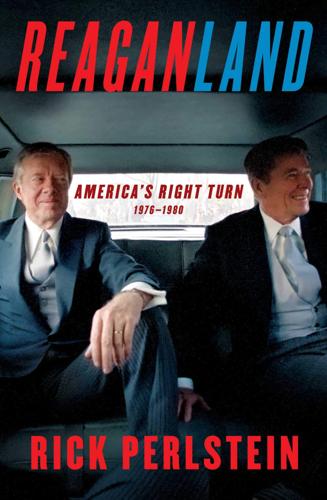
Reaganland: America's Right Turn 1976-1980
by Rick Perlstein · 17 Aug 2020
the holy city of Qom, which consisted almost entirely of mosques and seminaries, protested the death of the son of their exiled spiritual leader the Ayatollah Khomeini, at what they presumed was the hands of SAVAK. Police shot into the crowd, killing as many as seventy-two. The United States did
…
not a bunch of kids playing around,” said an anonymous source. It had something to do, Americans began learning, with a mysterious figure called Ayatollah Ruhollah Khomeini, the exiled spiritual leader of Iran’s Shi’ite Muslims, who lived in a residential neighborhood of Paris, subsisting on the simplest of meals, receiving
…
worshipful visitors all day. The New York Times profiled him: “Dressed in a black turban and a black robe and white shirt, the Ayatollah sat
…
threatening a trucking strike. On January 17, the shah fled Iran, which once again fell to chaos, as the world awaited news of whether the Ayatollah Ruhollah Khomeini would return. The president handed off his 1979 spending proposal to Congress. “The budget commitment will be to control inflation,” he said. “It will
…
beaten. Some of the country’s worst slums were just out of view. Estimates of the cost ranged from $100 million to $200 million. Ayatollah Ruhollah Khomeini protested from afar. In 1964, he had been exiled to Iraq after criticizing a treaty granting U.S. military personnel immunity from Iranian law. But
…
awed students greeted his arrest with riots. The shah pondered whether to execute him—until one of Khomeini’s quietist rivals reached out to save his life by awarding him the title of “grand ayatollah.” The Iranian constitution forbade executing anyone with that exalted title—and even the shah dared not
…
violate that. Soon Khomeini earned another honorific: marja-e taqlid, one of about a half dozen “models of emulation”
…
S. armaments like a kid in a candy store. One effect was to make him seem even more the American puppet to his simmering critics. Ayatollah Khomeini, sitting serenely on his prayer rug in Iraq, began issuing taped denunciations of the shah that Iranians around the world inhaled—responding, Oriana Fallaci wrote
…
the world.” * * * THE INSURGENTS ORGANIZED UNDERGROUND, USING the cell structure they had learned from the Communists with whom they were jailed. Iraq expelled the Ayatollah, who removed himself to a small country town outside Paris called Neauphle-le-Château; his red-shingled plaster house became a pilgrimage site. In August
…
Islamic mourning that would begin in December. He asked why so many Iranians who had prospered so much from the White Revolution were nevertheless following Ayatollah Khomeini. The shah tried one more time. Didn’t they understand that 70 percent of Europe’s oil supply and 90 percent of Japan’s passed
…
hunted down for assassination. In Tabriz, Iran’s ancient capital, the local prison was “liberated,” the main military base attacked, its armory looted. The Ayatollah established a command post in a former Tehran elementary school; on its roof, a firing squad methodically executed SAVAK agents, military officers, and those associated
…
depicted with touching affection. Two years later, these same qualities just seemed creepy. * * * THE ADMINISTRATION HAD BEEN WARNING of an impending energy shortage since the Ayatollah Khomeini took control of Iran. By the time of Three Mile Island, oil companies had announced between 5 and 15 percent less in projected fuel deliveries
…
the Georgia mafia, the better”—turned over the White House “to the real thing—the Mafia Mafia.” America’s energy concerns immediately abated, once “the Ayatollah Khomeini and Muammar Qaddafi each woke up with a sacred ram’s head at the foot of their beds.” The new president’s first State of
…
She found herself less welcome when she revealed the purpose of her visit: to “interview this Khomeini, to ask him how he dared to call his bloodbath a revolution.” Khomeini had installed as chief jurist Ayatollah Mohammed Sadeq Givi Khalkhali, who had spent time as a youth in a mental hospital for strangling
…
he could think of: he fetched an official, and Oriana Fallaci became the man’s second wife. She searched in vain in The Commandments of Ayatollah Khomeini, the guidebook to daily living sold in every Tehran street stall, to learn how she might gain an annulment. Given that she suffered neither from
…
of a government of God.” This was followed two weeks later by protests from thousands shouting “Down with Khomeini,” carrying portraits of Tehran’s most popular liberal clerk, Ayatollah Mahmoud Taleghani, who said that Khomeini was worse than the shah. His sons were then kidnapped and tortured. The following week a general
…
fatwas pronounced against regime enemies. And scapegoats, many, many scapegoats—like the United States, which Khomeini labeled the “Great Satan.” And the Kurds seeking autonomy in the northern territories, against whom Khomeini declared a holy war. The Ayatollah Khalkhali set up itinerant kangaroo courts in the Kurdish regions, which inaugurated nearly random executions
…
heating oil. Diplomacy: this was how normal states behaved with one another, after all. But in Iran, normal was nowhere to be found. In July, Ayatollah Khomeini banned music on radio and TV. A new press code prescribed three years in jail for journalists spreading “insults, calumny, or falsehoods” against religious leaders
…
they won an audience with a top cleric they admired, asking him to inform Khomeini of their plans; perhaps the imam might even pronounce his blessing. A few hours later, they gathered around their radios for the Ayatollah’s National Student Day speech, and heard him say, “All our problems come
…
. Carter announced that Ramsey Clark, a former attorney general who had paid a sympathetic visit to Khomeini during his Paris exile, would travel to Iran bearing a personal letter from Carter appealing to the Ayatollah to free the hostages. (When Clark arrived in Turkey, the regime announced it would not receive
…
him. “Humanitarian appeals to Khomeini,” he reported back, “are unlikely to be productive.”) Carter announced that he was canceling
…
the past twenty-four hours, Sunni militants in Saudi Arabia had taken thousands of pilgrims hostage at the Grand Mosque in Mecca; on the radio, Ayatollah Khomeini blamed the U.S. “and its stooge Israel,” which was why, in Karachi, Pakistan, mobs overran the American consulate, and in Islamabad, mobs screaming “
…
one in the middle of class, and on the reception desk at the biggest daily newspaper in Oklahoma, red, white, and blue stickpins impaled an Ayatollah Khomeini voodoo doll. “Nuke ’em Till They Glow. It worked in Japan. It’ll work in Iran” posters were popular at the University of North Carolina
…
had regularly used the crisis to flay the president. Connally nonetheless now weighed in with relish about this supposedly shattered taboo: “I am sure the Ayatollah Khomeini is pleased to hear Senator Kennedy’s remarks.” Henry Hyde cried on the House floor, “Mr. Speaker, I wonder if the senator from Massachusetts
…
by the students as “filthy and satanic ways”; and some of the clerics who opposed the Ayatollah so aggressively that they had been snatched up and tortured. That even Khomeini’s hanging judge the Ayatollah Khalkhali said that to put the hostages on trial as spies was ridiculous because every nation has
…
spies—and that, far from pulling the strings, Khomeini himself did little else but pray on his rug on
…
ve been there—not lecturing on the Republican free enterprise circuit”). He fetishized rule-following. (“Absolute international anarchy out there. Dealing with people like the Ayatollah, who has absolutely no concept of order.” Sentence fragments were another Bush verbal tic.) Right-wing positions he could adopt—no problem. Organizations he
…
victory, free the hostages, and ride off into the sunset as revolutionary heroes. Ghotbzadeh told Jordan that he had outlined the plan to the Ayatollah. Jordan asked about Khomeini’s response. “The imam does not often respond,” Ghotbzadeh said. “He listened to our explanation and nodded.… If he had objected to our
…
were preparing to retreat after he had called off the mission because of an equipment failure. The Ayatollah Khomeini attributed the collision to God, who had sent forth a miraculous sandstorm. Then he dispatched the Ayatollah Khalkhali to the crash site, where he posed for cameras poking at eight Americans’ charred remains with
…
and Boy Scouts still wore their uniforms, the annual woodpile erected by the fire department was topped by a four-foot-tall drawing of the Ayatollah Khomeini by a local eighth-grade girl. “I wish the real one was up there,” the fire chief said after the ceremonial bonfire was touched
…
Liberals poured out rage at what they were witnessing. HHS Secretary Patricia Harris said that she was “beginning to fear that we could have an Ayatollah Khomeini in this country.” The president of Yale University decried the “radical assault on pluralism.” The Reverend William Sloane Coffin opened his sanctuary to TV cameras
…
Carter said ‘Why not the best?’ Now let’s look at what he gave us. Andrew Young, Carter’s UN ambassador, who called Iran’s Ayatollah Khomeini a saint, forced to resign after lying to the president. Bert Lance, also forced to resign. Dr. Peter Bourne, the Carter drug expert, forced
…
‘The smoothest of Iran’s diplomatic criminals was shown on American TV this weekend warning American voters that they had better not elect Ronald Reagan. Ayatollah Khomeini and his men prefer a weak and manageable U.S. president and have decided to do everything in their power to determine our election results
…
Farber, Taken Hostage, 129. National Student Day speech Ibid., 130. The next morning My account of the embassy seizure comes from Bowden, Guests of the Ayatollah, 17–110. “Good evening” MFTVE, 19:37. all three network newscasts VTVNA. “grisly cavalcade” “STARVATION: Deathwatch in Cambodia,” Time, November 11, 1979. USS Pueblo
…
South Africa story. The governor ushered Deaver, A Different Drummer, 195; Von Damm, At Reagan’s Side, 110–11, tells the story differently. CHAPTER THIRTY Ayatollah Khomeini blamed Laura Kalman, Right Star Rising: A New Politics, 1974–1980 (New York: Norton, 2010), 338. “kill the American dogs” KXAS Action News, Dallas-
…
Zbigniew Brzezinski, Power and Principle: Memoirs of the National Security Adviser, 1977–1981 (New York: Farrar, Straus & Giroux), 365. Lawrence, Massachusetts Bowden, Guests of the Ayatollah, 24, which is also source for cabdrivers. Charleston, South Carolina NBC News, December 2, 1979, VTVNA. Lincoln Memorial ABC News, December 16, 1979, VTVNA. sister
…
Doubleday, 2007), 431. rumbled into Herat Issues and Answers, December 30, 1979, transcript in RRPL, Box 51. tactical nuclear weapons Mark Bowden, Guests of the Ayatollah: The First Battle in America’s War with Militant Islam (New York: Atlantic Monthly Press, 2006), 287. pressed by Zbigniew Brzezinski Interview with Brzezinski, La
…
on the Soviet Invasion of Afghanistan,” January 4, 1980, APP. approaching 100 percent Carter, White House Diary, 389. Kurt Waldheim Bowden, Guests of the Ayatollah, 288–89. He reported back Carter, White House Diary, 389. Foreign Minister Ghotbzadeh For the emergence of these back-channel negotiations see Bowden, Guests of
…
ABC News, January 22, 1980, VTVNA. in Salem, Oregon “They Shall Not Forget,” Oregon Statesman, January 30, 1980. pen pals Bowden, Guests of the Ayatollah, 353. yellow ribbon Penne Laingen oral history interview, March 27, Association for Diplomatic Studies and Training Foreign Affairs, Oral History Program, Foreign Service Spouse Series
…
Snow: first on scene at Iran hostage crisis crash,” Channel 4 News, YouTube.com, accessed April 21, 2020. Operation Eagle Claw Bowden, Guests of the Ayatollah, passim. Brzezinski had been Blake Jones, A Battle for Righteousness: Jimmy Carter and Religious Nationalism (PhD dissertation, Department of History, Arizona State University, 2013),
…
July 28, 1980, Austin American-Statesman. Song on YouTube.com, accessed April 22, 2020. Clarksburg, Massachusetts “Celebrations Honor Hostages,” Hartford Courant, July 5, 1980; “Ayatollah to Burn in Effigy,” Cincinnati Enquirer, July 3, 1980; AP, July 4, 1980. Family Protection Act Washington Post Service, July 26, 1980. Rosemary Thomson attended
…
Jamieson, Packaging the Presidency, 409. “world heavyweight championship” Sick, October Surprise, 170. Reagan’s cornerman ABCIA, October 27, 1980. president took a jog Ibid. The Ayatollah had ABCIA, October 27, 1980. “more clever stories” Alan Greenspan, The Age of Turbulence: Adventures in a New World (New York: Penguin, 2008), 88.
…
” Jack J. Honomichl, Honomichl on Marketing Research (Lincolnwood, IL: NTC Business Books, 1986), 41. In Iran Handwritten “10/28” note, AA, “Notes/Clippings” folder. Ayatollah Khalkhali ABCIA, October 29, 1980. CBS reported Handwritten news summary, “CBS News 10/31 1 pm EST,” AA, “Notes/Clippings” folder. Senator John Tower Reagan
…
Khalid (King of Saudi Arabia), 212 Khalkhali, Mohammed Sadeq Givi, 637, 639, 641, 691, 767, 902 Khalq (Afghanistan Communist Party), 697, 699 Khmer Rouge, 427 Khomeini, Ahmed, 646 Khomeini, Ayatollah, 212, 405–406, 423, 434–436, 440, 441, 442, 637–652, 682, 683, 688, 691, 712, 759, 760, 866, 903
…
“Khomeini Summit,” 567 Khrushchev, Nikita, 137, 291, 438 “kiddie porn,” 356 Kilgore, Joe, 450 “Killer Bees” (Democrats), 622 Kilpatrick, James J., 158, 294, 295, 304, 461
…
Eugene, 44, 392, 426, 450, 509, 836, 838 Roth, William, 171, 289, 365, 398 Rowan, Carl, 713 Royko, Mike, 199, 688 Rubell, Steve, 593 Ruhollah Khomeini, Ayatollah, 212, 405–406, 423, 434–436, 440, 441, 442 Rukeyser, Louis, 522 Rule F-3C, 812, 813, 816 Rumsfeld, Donald, 43, 282, 752, 793 “Running
…
Teeley, Pete, 765 Teeter, Robert, 4, 9, 21, 22, 23, 403, 811, 812 television, 263, 355, 356, 466 television preachers, 160 The Ten Commandments of Ayatollah Khomeini, 638 Tennessee, 349, 831 Texaco, 535 Texas about, 17–18, 82, 120, 158, 303, 397, 559, 622, 759, 906–907 Bush-Regan debate (1980), 774
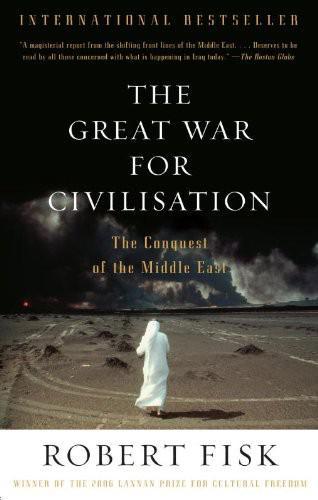
The Great War for Civilisation: The Conquest of the Middle East
by Robert Fisk · 2 Jan 2005 · 1,800pp · 596,972 words
where America had just lost its very own “policeman of the Gulf,” Shah Mohamed Pahlavi, in favour of that most powerful of Islamic leaders, Ayatollah Ruhollah Khomeini. Within nine months, I would be running for my life under shellfire with Saddam Hussein’s Iraqi Army as it invaded the Islamic republic. America
…
new regime had come from Syria, Kampuchea and India as well as the Soviet Union and its east European satellites. In a long letter to Ayatollah Khomeini, whose Islamic revolution in Iran the previous year had so frightened the Soviets, Karmal criticised the adverse Iranian response to his coup—it had been
…
martyrdom had done so much to destroy the Shah’s regime, were a minority in Afghanistan. In the western city of Herat, posters of Khomeini and Ayatollah Kazem Shariatmadari could be found on the walls, but the Sunnis formed the majority community and there was a fundamental suspicion in Afghanistan of the
…
Woodhouse looked at me with his penetrating, unwavering eyes. “I’ve sometimes been told that I was responsible for opening the doors for the Ayatollah—for Khomeini and the others,” he said. “But it’s quite remarkable that a quarter of a century elapsed between Operation Boot and the fall of the
…
I suspect, viewed the Iranian coup with the same coldness of heart. He certainly had as little time for Ayatollah Abul Qassim Kashani as he did for Mossadeq. Kashani was one of Khomeini’s precursors, a divine—albeit of a slightly gentler kind—whose opposition to the British gave him nationalist credentials
…
would have the world believe. There was rioting against the regime throughout the 1960s and four hundred bombings between 1971 and 1975. In early 1963, Ayatollah Khomeini repeatedly condemned the Shah’s rule. On 3 June, the day marking the martyrdom at Kerbala of Imam Hussein, the grandson of the Prophet, he
…
a million strong. Revolutionary literature still claims that the Shah’s army killed 4,000 demonstrators in Jaleh Square in Tehran on 8 September. When Ayatollah Khomeini arrived back in Iran from Paris—the French, who had provided the wine for the Shah at Persepolis, provided
…
them. They sat at two iron desks and behind them, fixed on to a starlike design of strip lights, was a crude oil painting of Ayatollah Khomeini. There was no doubt under whose authority this court was sitting. The mullah made a brief address to the crowd, stating that the trial would
…
and Rustomi’s brother walked off, the gunmen mincing after him. That same afternoon, I asked Ayatollah Kazem Shariatmadari, one of Khomeini’s closest advisers, why Rustomi was allowed no defence counsel. The white-bearded Ayatollah sat cross-legged on rich ornamental carpets. “A prisoner at an Islamic court should be allowed a
…
end, it cost the equivalent of 40 cents to sit at the feet of the King of Kings. The Islamic revolutionaries who now emerged behind Ayatollah Khomeini were oddly middle-class. Men like Sadeq Qotbzadeh, the head of the television service, later foreign minister—and later still, executed for allegedly plotting against
…
demonstrators reached the French embassy—the country in which Bakhtiar had been given temporary residence—they expressed their appreciation at the sanctuary France had given Ayatollah Khomeini before the revolution. But no political démarche could unscramble the U.S. embassy siege. The Europeans, the Papal Nuncio, Sean MacBride—a founder of Amnesty
…
not even visit Bruce Laingen, who was in the Iranian Foreign Ministry when the embassy was taken and remained there until his release in 1981. Ayatollah Khomeini sternly informed the Pope that “Jesus Christ would have punished the Shah.” Iranian television broke into a showing of The Third Man to announce that
…
”— would become guardian of the nation. It was obvious that this arduous, not to say spiritually wearying role, would be given to none other than Ayatollah Khomeini. In this new theocracy, there was going to be no place for the communist Tudeh party. After the overthrow of Mossadeq in 1953, the Shah
…
the country. Soon it would be the party’s fate to be crushed all over again, this time by Khomeini. But in the winter of 1979, it was still officially supporting the Ayatollah—even if Nouredin Kianouri’s office walls were the only ones in Tehran without a picture of the Imam
…
variety so popular in the West. And in so far as it was possible, Tudeh, Iran’s oldest political party, wanted the same things as Ayatollah Khomeini. This was the theory and Kianouri held to it bravely. The truth was that Tudeh’s views on the new Iran were almost exactly the
…
of women. We have criticised Islamic fanaticism—we are against the non-progressive ideas of those conservative elements. But for us, the positive side of Ayatollah Khomeini is so important that the so-called negative side means nothing. We think he is an obstacle to fanaticism: he is more progressive than other
…
arriving at the oriental court, waiting to hear the word of the oracle. Qotbzadeh sat on Khomeini’s right, gazing obsequiously at the man who would later condemn him to death, his head leaning towards the Ayatollah, anxious not to miss a single word. He, after all, would be the interpreter. So
…
what of the embassy hostages? we wanted to know. Khomeini knew we would ask this. He understood the networks. His last, cynical
…
of his departure. One of our drivers stepped forward—our own translator bent towards Khomeini and whispered that it would be the greatest moment in the driver’s existence on earth if he could shake the Ayatollah’s hand—and our driver held the Imam’s right hand and kissed it and
…
stuff that we wouldn’t understand; just goes straight to the point and gives us our bloody headlines.” In his own cynical way, Harvey respected Khomeini. The Ayatollah knew how to talk to us and he knew how to talk to Iranians. And when they read out his “Last Message” after his
…
now threatening military action against Iran. Here was Ambassador William Sullivan in September 1978, contemptuously referring to “the extremist coalition of fanatic Moslems led by Ayatollah Khomeini in Iraq (which has reportedly been penetrated and is assisted by a variety of terrorist, crypto-communist, and other far left elements) . . . ” or listening to
…
the Soviet hand in all the demonstrations and disturbances that have taken place.” Some of the diplomatic analyses were just plain wrong. “Such figures as Ayatollahs Khomeini and Shariatmadari . . . have little chance of capitalizing on their wide following to win control of the government for themselves,” one secret cable confides. Other documents
…
as a symbol that the revolution had arrived in Kahak. Above the blackboard in the village’s tiny clay-walled schoolhouse was a poster of Ayatollah Khomeini. It depicted the Imam bending over the bars of a jail while behind him thousands of Iranian prisoners wait patiently for their freedom. One after
…
neighbours—and agreed that the Iraqi–Iranian frontier should run down the centre of the Shatt al-Arab River. He had been prepared to allow Ayatollah Khomeini to remain in residence in Najaf where he had moved after his expulsion from Iran. The prelate was forbidden from undertaking any political activity, a
…
Iranian ambassador to Syria who sent Iranian Revolutionary Guards to Lebanon in 1982—who was imprisoned three times by the Iraqi authorities.44 Khomeini’s theological ambassador was Ayatollah Sayed Mohamed Bakr Sadr, one of the most influential and intellectual of the Shia clergy in Najaf, who had written a number
…
Ministry functionary insisted—and in one road there hung a small red flag bearing the words: “May the regime of Khomeini, the liar and traitor, fall to pieces.” The elderly Grand Ayatollah Abulqassem al-Khoi, the rightful heir to the Shiite leadership in Najaf but a man who believed that the people
…
could see was a monochrome of streets and shuttered houses, the fragile negative of a city dedicated to the linked identities of worship and death. Ayatollah Khomeini must have loved it here. But the city was changing. The roads had been resurfaced, a construction project had erased one of
…
the true feelings of the people of Najaf. Khadi had never met Khomeini but confidently asserted that the imam had been a CIA agent, that even Grand Ayatollah Abolqassem al-Khoi of Najaf had sent a telegram to Qom, blaming Khomeini for killing the Muslim Kurds of northern Iran. Al-Khoi may have
…
that Western governments and journalists have helped to stage in the Middle East—peopled by Nasser, Ghadafi, Abu Nidal and, at one point, Yassir Arafat—Ayatollah Khomeini was our bogeyman of the early 1980s, the troublesome priest who wanted to Islamicise the world, whose stated intention was to spread his revolution. Saddam
…
rooms, the perspiration crawling through my hair—if they could see me crossing their borders without their wretched, indecipherable stamps in my passport. Pictures of Ayatollah Khomeini had been ritually defaced on the walls of the Shalamcheh frontier station and a large pile of handwritten ledgers were strewn over the floor. I
…
of our soldiers is not what it used to be.” And what, the world’s press wanted to know, did the two prisoners think of Ayatollah Khomeini? The major mistranslated the question thus: “Now that things have gone so badly for you, what do you think of
…
not be the same after the war. But the wounded man glanced quickly at us and said that “if Ayatollah Khomeini brought on a war between two Muslim countries, this was wrong.” The conditional clause in this reply was lost on the Iraqi major who then
…
tearing apart seventy-one party leaders as they were listening to a speech by Ayatollah Mohamed Beheshti, chief justice of the supreme court, secretary of the Revolutionary Council, head of the IRP and a potential successor to Khomeini. When the bomb destroyed the iron beams of the building and 40-centimetre-thick
…
who had just replaced Bani-Sadr, and the new Iranian prime minister, Mohamed Javad Bahonar. The prosecutor general, Ayatollah Ali Quddusi, was murdered on 5 September and Khomeini’s personal representative in Tabriz, Ayatollah Asadollah Madani, six days later. The regime hit back with ferocious repression. Schoolchildren and students figured prominently among the
…
lines a quarter of a mile deep, many of them with well-trimmed beards, all of them wearing around their necks a coloured portrait of Ayatollah Khomeini. Their eyes moved in a way that only captivity can control, studying each other nervously and then staring at their prison guards, awed by the
…
prison libraries. Perhaps, too, the inmates of the other camps did not speak in quite such scathing tones of Ayatollah Khomeini. For the boy soldiers in Major Ali’s Ramadi Two condemned Khomeini’s regime with an enthusiasm that had the Baath party officials nodding sagely and the military police guards grinning with
…
“bulletin” story. “I imagine you know, Fisky, that old AK has bitten the dust at last,” he told me over the phone in 1989 when Ayatollah Khomeini died. “I guess that means no more war.” But on that hot and blasted morning in Ahwaz, after the mosquitoes and the sleepless night, I
…
in Beirut. The Oliver North that the Middle East got was the thug.60 Rafsanjani had only told Khomeini of the McFarlane–North visit after they had arrived in Tehran. Khomeini’s designated successor, Ayatollah Hussein Ali Montazeri, was kept in total ignorance—which he seemed to resent more than the actual arms
…
screen. So did the only country with a conceivable motive: Iran. In the aftermath of the shooting down of the Airbus, Ayatollah Hussein Ali Montazeri, who was intended to be Khomeini’s successor, said that he was “sure that if the Imam orders, all the revolutionary forces and resistance cells, both inside
…
the tavvab—and between those who prayed and those who refused to pray. At some point, Khomeini ordered that political prisoners should be liquidated en masse. Although this order was kept secret, we know that Ayatollah Montazeri protested vehemently against the massacres, an act that ensured his dismissal as the future Imam
…
moment I believed the Iranians had preserved a real soldier’s remains. Next to the sand pit with its “martyr” stood a large portrait of Ayatollah Khomeini beneath the legend: “Martyrdom Is the Highest Point in Human Life.” The photographs were of splintered trees and smashed railway yards, of ruined mosques and
…
its own path. It would be neither Sunni nor Shia but for all Iraqis. Where Saddam’s portrait had been defaced, Dowden found posters of Ayatollah Khomeini and a leading Shiite cleric. But he was also given a printed announcement by Nasiriyah’s “revolutionary committee” which said the aims of the new
…
. He might have been Sergeant Franks’s age. The British government had approved the Chieftains’ sale to Iran. They ended up in the hands of Ayatollah Khomeini’s soldiers—and then in Saddam’s. But arms fairs are about buying, not dying. A few metres from Turnbull and Franks, I come across
…
almost exactly equal measure, intense loyalty married to absolute rage. When I rolled over, I found the soldier lying beside me. At the funeral of Ayatollah Khomeini almost ten years earlier, the crowds tore at his shroud. And if the Arab Legion’s descendants had not shouted in the name of their
…
Qom in Iran were waiting for him—Al-Naini and al-Asfahani, Sheikh Abdulhalim al-Hoeri al-Yezdi, who was the professor of the future Ayatollah Khomeini—and then King Feisal, whom the British had set up in Baghdad, announced that exiled religious leaders could return to Iraq—providing they promised not
…
wartime career that was remembered. His obituary in The Independent (26 February 2001) made no mention of his Persian skulduggery. 21 Not that the future Ayatollah Khomeini at this stage was opposing the Shah. The American academic James A. Bill wrote of rumours that the future leader of Iran’s Islamic revolution
…
was one of those who urged the preeminent Shia cleric of the day, Ayatollah Sayed Mohamed Hussein Burujirdi, to support the Shah’s political system. Iranian newspaper biographies of Khomeini in 1979 intriguingly left out any reference to his activities more than a quarter of a century earlier
…
U.S. chargé in Tehran Bruce Laingen (then head of U.S. War College), Amman, 17 April 1983. 199 “Suppose you were an inveterate enemy”: Ayatollah Khomeini, 1 July 1981, quoted in full in Mahjoubah: The Magazine for Muslim Women , Tehran: Ministry of Islamic Guidance, July 1981. 199 One estimate—that 10
…
Egypt makes peace with Israel 1978 First Israeli invasion of Lebanon Saddam Hussein takes over Baath Party in Iraq 1979 Shah of Iran overthrown by Ayatollah Khomeini’s Islamic Revolution Soviet Union invades Afghanistan; the start of a ten-year occupation by Russian troops Assassination of Egyptian President Anwar Sadat 1980 Osama
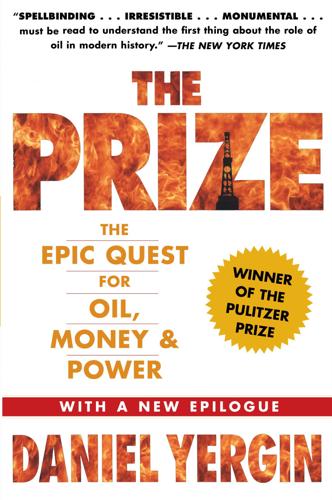
The Prize: The Epic Quest for Oil, Money & Power
by Daniel Yergin · 23 Dec 2008 · 1,445pp · 469,426 words
26 ("over-production," "every action" and "Hottentots"); Ferrier, British Petroleum, pp. 372-80 ("whole revenue" and "did not go"); Shaul Bakhash, The Reign of the Ayatollahs: Iran and the Islamic Revolution (New York: Basic Books, 1984), pp. 20-23. [9] Martin Gilbert, Winston S. Churchill, vol. 5, The Prophet of
…
He was spending money on public health services and was widening educational opportunities. But he would not be stayed. He once even personally beat an ayatollah who had questioned the appropriateness of the dress of female members of his family as they entered a shrine. The mullahs as a group were
…
riven by every kind of division—class, regional, religious, and modern versus traditional. On one side were the Islamic fundamentalists, led by the fiery Ayatollah Seyed Kashani, who were outraged by every intrusion of the modern world—be it the presence of foreign advisers or the fact that Reza Shah
…
a few months since General Razmara had been assassinated by a Moslem fundamentalist. Harriman, sensing how greatly this fear constrained Mossadegh, went to see the Ayatollah Kashani, the leader of the religious right, who had been imprisoned during World War II for his Axis sympathies. The mullah declared that, though
…
know was that they were the most evil people in the world. In fact, all foreigners were evil, to be dealt with accordingly. The ayatollah then went on to tell the story of an American who had come to Iran some decades earlier and had involved himself in oil. He
…
mob, searching for the American, broke into the hospital and found him on the operating table, where they butchered him. "Do you understand?" asked the ayatollah. Harriman immediately recognized that he was being threatened. His lips tightening, he struggled to keep his anger under control. "Your Eminence," he replied in
…
East. On September 25, 1951, Mossadegh gave the last remaining British employees at Abadan exactly one week to clear out. A few days later, Ayatollah Kashani declared a special national holiday—"a day of hatred against the British Government." At the refinery complex at Abadan, the British oil men and
…
Carter's departure from Iran, a Tehran newspaper published a savage attack on an implacable opponent of the Shah's, an elderly Shiite cleric named Ayatollah Ruhollah Khomeini, who was then living in exile in Iraq. The article, though anonymous, appeared to be the work of an official of the Shah'
…
s regime. Perhaps the Carter visit had bolstered flagging confidence. Certainly the article was already in the works, for exasperation was increasing with Khomeini's own harsh attacks on the Shah's government, which were being circulated clandestinely in cassettes throughout Iran. Animosity between the royal house of Iran
…
some certitude in the melee, they increasingly heeded the call of traditional Islam and of an ever more fervent fundamentalism. The beneficiary was the Ayatollah Khomeini, whose religious rectitude and unyielding resistance made him the embodiment of opposition to the Shah and his regime and indeed to the very character and
…
popular lecturer on Islamic philosophy and law, promulgating the concept of an Islamic Republic under the stern control of the clergy. For many years, Khomeini had regarded the Pahlavi regime as both corrupt and illegitimate. But he did not become politically active until about the age of sixty, when he
…
to male Moslems. When, under the rubric of the White Revolution, the government redistributed large estates, including the vast holdings of the Shiite clergy, Khomeini came forward as one of the most unyielding opponents, landing in jail more than once and eventually ending up in exile in Iraq. His hatred
…
by an unadulterated anger of extraordinary intensity, and he himself became the rallying point for the growing discontent. The words of other, more moderate ayatollahs were overwhelmed by the exile's harsh and uncompromising voice. Another dimension of opposition had emerged. With Jimmy Carter's capture of the Democratic nomination
…
his eldest son was murdered under mysterious circumstances. The murder was attributed to Savak. Then came that newspaper article of January 7, 1978. It ridiculed Khomeini, questioned his religious credentials and concerns, challenged his Iranian nationality, and luridly accused him of various acts of immorality, including the authorship of risque
…
love sonnets as a young man. This journalistic assault on Khomeini set off riots in the holy city of Qom, which remained his spiritual home. Troops were called in and demonstrators were killed. The disturbance
…
As the weeks passed, more and more of the country went on strike, including oil industry technicians. In early October 1978, at Iran's urging, Ayatollah Khomeini was expelled from Iraq; after all, the Ba'thist regime in Baghdad had to worry about its own Shiite population. Denied refuge in Kuwait
…
entourage in a suburb of Paris. The Iranian government may have thought, out of sight, out of mind, but it was mistaken. France provided Khomeini and his followers with access to the direct-dial international phone service that the Shah had installed in Tehran, greatly facilitating communication. The elderly, irate
…
his regime, which meant that they lacked channels of communication to the emerging opposition. There was not even any reporting to Washington on what the Ayatollah was actually saying on those by-now-famous tapes. Some in Washington insisted that the unrest in Iran was a secret, Soviet-orchestrated plot.
…
criticism of U.S. policy combined with the projection by some of a romantic and unrealistic view of the Ayatollah Khomeini and his objectives. A prominent professor wrote in the New York Times of Khomeini's tolerance, of how "his entourage of close advisers is uniformly composed of moderate, progressive individuals," and
…
provide "a desperately-needed model of humane governance for a third-world country." The American ambassador to the United Nations, Andrew Young, went even further; Khomeini, he said, would eventually be hailed as "a saint." An embarrassed President Carter immediately felt the need to make clear "that the United States
…
creed. The high point was the holiday of Ashura, marking the martyrdom of the iman Hussein and symbolizing unremitting resistance to a tyrant without legitimacy. Khomeini promised that it would be a month of vengeance and "torrents of blood." He called for new martyrs. "Let them kill five thousand, ten
…
Persian monarchy was gone. So was the power. Alexander the Great had captured Persepolis in 330 b.c. and burned the royal palace; now the Ayatollah Khomeini was making a mockery of the self-proclaimed heir to Persepolis. Like the Wizard of Oz, Mohammed Pahlavi was revealed to be, after all,
…
been seen since the Shah's own return in triumph in 1953. Car horns blared, headlights were flashed, windshield wipers decorated with pictures of Khomeini swished back and forth, crowds shouted and cheered and danced in the streets, and newspapers were handed out rapid-fire with the unforgettable banner headline
…
Company." Subsequently, he had served his time in jail under the Shah. And now, despite Khomeini's lasting hatred of Mossadegh as a secularist nationalist, Bazargan was, given the conjunction of political forces, the Ayatollah's candidate to lead the new Iran. So, for a brief time, there were two rival
…
collapsed, and Mehdi Bazargan was in. The American defense attache provided a succinct summary of the situation in a message to Washington: "Army surrenders; Khomeini wins. Destroying all classified."[4] The Last Man Out Not quite all the oil men had departed from The Fields. Twenty or so were asked
…
feverish competition in the marketplace now had a momentum of their own. Who could be confident that Iranian oil would maintain its new availability? Though Khomeini had asserted control over the petroleum industry, The Fields in Iran, as far as the outside world could determine at the time, were controlled
…
soaring. A variety of reasons were proffered. Were the Saudis trying to send a conciliatory and neighborly signal to the new Islamic regime of Ayatollah Khomeini by making room in the market for the returning Iranian production and thus avoiding a regional confrontation? Or were they seeking to express their dissatisfaction
…
), 132; Parsons, Pride and Fall, pp. 85 ("snow"); Interviews with Jeremy Gilbert ("The Fields"), James Schlesinger and Harold Saunders ("first systematic meeting"); Richard Falk, "Trusting Khomeini," New York Times, February 16, 1979, p. A27 ("entourage"); New York Times, February 8, 1979, p. A13; February 9, 1979, p. A17 ("saint"); William
…
Consequences for the Future (New York: Pantheon, 1982), pp. 145-46; Sick, All Fall Down, pp. 123 ("torrents of blood"), 108 (prank), 182-83 ("Khomeini wins"); Parsons, Pride and Fall, pp. 114 ("dictator"), 124-26 ("I would leave"); Interview with Jeremy Gilbert and Jeremy Gilbert to author, Nov. 15,1989
…
cassettes, shoes, sweatshirts, hats, and boiled sugar beets. The occupiers even took to answering the embassy phone, "Nest of spies." It appeared that the Ayatollah Khomeini and his immediate circle had some idea of the planned assault and encouraged it. That they took advantage of it, seizing on the event for
…
ensuing crisis to dispose of Bazargan and all others with Western and secular taints, to consolidate their own power, to eliminate their opponents, including what Khomeini called "American-loving rotten brains," and to put in place the elements of the theocratic regime. Until all of that was done, the hostage
…
. Three years later, in 1978, Iraq returned the favor, in what seemed a relatively minor way. At the Shah's request, Iraq expelled the Ayatollah Khomeini, who had been living in exile in Iraq for fourteen years. In light of what later happened, that hardly turned out to be a favor
…
of his political thought: Three Whom God Should Not Have Invented: Persians, Jews, and Flies. Though the Ayatollah Khomeini was expelled from Iraq in 1978, before Hussein's complete acquisition of power, the Ayatollah held Hussein personally responsible for his troubles and ranked him among his preeminent opponents. Once asked to list
…
his enemies, Khomeini replied: "First, the Shah, then the American Satan, then Saddam Hussein and his infidel Ba'th
…
his Deputy Prime Minister in April 1980, Hussein ordered the execution of the most prominent Shia ayatollah in Iraq and, for good measure, the ayatollah's sister, and took to denouncing Iran's religious leader as "Khomeini the rotten" and as "a Shah dressed in religious garb." As incidents and recriminations mounted
…
were irresistible. From the beginning, Hussein clothed himself in the mantle of Arab leadership, which accorded with the pan-Arabic Ba'thist ideology. If Khomeini was going to base the symbols of his legitimacy on events that had taken place in the seventh century, so would Hussein. He billed the
…
upon grave miscalculation, for the Iranians withstood the first blow and struck back immediately, and no less hard, at Iraqi targets. The assault enabled Ayatollah Khomeini to further consolidate his power, silence his critics, dispose of the nonclerics in his government, and proceed in the fashioning of the Islamic Republic—meanwhile
…
dwarf Pharaoh"); R. K. Ramazani, Revolutionary Iran: Challenge and Response in the Middle East (Baltimore: Johns Hopkins University Press, 1986), p. 60 ("Khomeini the rotten"); Bakhash, Reign of the Ayatollahs, p. 126; Interview with Rene Ortiz; R. M. Grye, ed., The Cambridge History of Iran, vol. 4, The Period from the Arab
…
counter to the fundamental precepts of the kingdom's security policy, at a time when the Iran-Iraq War was threatening the region and the Ayatollah Khomeini continued to pursue his vendetta against Saudi Arabia. The dramatic market loss also reduced Saudi influence on Middle Eastern politics and the Arab-Israeli
…
phase. The Iraqi air war against tankers and facilities was taking a rising toll on Iranian export capabilities. How could Iran continue to fight the Ayatollah Khomeini's holy war against Iraq and Saddam Hussein without money? Something would have to be done soon. Saudi Arabia had been maintaining its output
…
Iran's ability and will to carry on the war were fading fast. Its economy was in shambles. The defeats were draining support for the Khomeini regime. Volunteers, fervent or otherwise, were no longer forthcoming. War weariness gripped the country; in one month, 140 Iraqi missiles fell on Tehran alone
…
. Among those maneuvering for position in post-Khomeini Iran—for the Ayatollah was old and known to be seriously ill—was Ali Akbar Hashemi Rafsanjani, the speaker of the Iranian Parliament and deputy commander of the
…
these factors added to the urgency to reconsider Iran's relentless commitment to the war. Yet Rafsanjani still had to cope with an implacable force: Ayatollah Khomeini, for whom vengeance, including Saddam Hussein's head, was the price of peace. But the facts of Iran's position were evident to the
…
On July 17, Iran informed the United Nations of its willingness to countenance a cease-fire. "Taking this decision was more deadly than taking poison," Khomeini declared. "I submitted myself to God's will and drank this drink for his satisfaction." But vengeance was still his ambition. "God willing," he
…
said, "we will empty our hearts' anguish at the appropriate time by taking revenge on the Al Saud and America," he added. The Ayatollah would not live to see such a day; within a year, he would be dead. After the Iranian message to the United Nations, another four
…
, Joe S. The Economics of the Pacific Coast Petroleum Industry. 3 parts. Berkeley: University of California Press, 1944-47. Bakhash, Shaul. The Reign of the Ayatollahs: Iran and the Islamic Revolution. New York: Basic Books, 1984. Bardou, Jean-Pierre, Jean-Jacques Chanaron, Patrick Fridenson, and James M. Laux. The Automobile
…
Insider's Account of America's Iranian Adventure and Its Consequences for the Future. New York: Pantheon, 1982. ---------. The Return of the Ayatollah: The Iranian Revolution from Mossadeq to Khomeini. London: Andre Deutsch, 1981. ---------. The Road to Ramadan. London: Collins, 1975. Heilbroner, Robert L. The Worldly Philosophers: The Lives, Times, and
…
Carter described the energy challenge facing the United States as the "moral equivalent of war." Clockwise: (1) With the fall of the Shah, the Ayatollah Ruhollah Khomeini was deliriously greeted in Tehran when he returned from exile in February 1979, (2) Just after midnight, on Good Friday, March 24, 1989, the
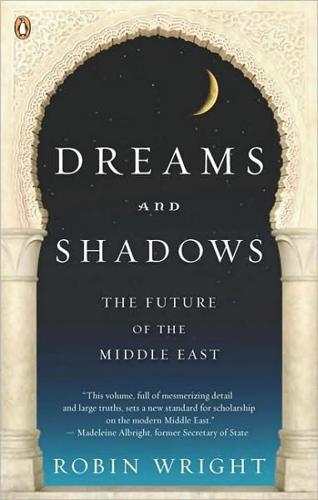
Dreams and Shadows: The Future of the Middle East
by Robin Wright · 28 Feb 2008 · 648pp · 165,654 words
ROBIN WRIGHT The Last Great Revolution: Turmoil and Transformation in Iran Sacred Rage: The Wrath of Militant Islam In the Name of God: The Khomeini Decade Flashpoints: Promise and Peril in a New World DREAMS AND SHADOWS The Future of the Middle East ROBIN WRIGHT THE PENGUIN PRESS New York
…
of Israel is also in Iran, which still has kosher butchers, Jewish schools, synagogues, and a first-rate hospital favored by many of the ayatollahs. In Tehran, I have attended a Hebrew class for children as well as a Catholic service at which wine was served—with government permission, in
…
His appeal crossed sectarian and ethnic lines as well as national borders. His thinking influenced Iran’s Ayatollah Ruhollah Khomeini in the 1960s and 1970s in the run-up to Iran’s Shiite revolution. Like Qutb, Khomeini warned against what he called “Westoxication,” or poisoning of the spirit by lax Western morality. After
…
Hezbollah and the most controversial leader in the Middle East. Nasrallah is a man of God, gun, and government, a cross between Iranian revolutionary leader Ayatollah Khomeini and Latin America’s Che Guevera, a mix of charismatic Islamic populist and a wily guerilla tactician. He took over the Shiite movement in 1992
…
regional champion. In newspaper editorials, political commentaries, and blogs, he was compared with almost mystical reverence to Egypt’s Gamal Abdel Nasser and Iran’s Ayatollah Khomeini, the two leaders who had redefined the region’s political direction. “Israel has just set Nasrallah on a trajectory to become the hero of the
…
with democracy. The same process is underway in Iran, the launching pad for the Middle East’s most zealous and novel revolution. In 1979, Ayatollah Ruhollah Khomeini, a spindly cleric with forbidding black eyebrows and a long white beard, combined an old faith with new technology to unite liberals and traditionalists, democrats
…
grew up were mud brick; most had only a couple of large rooms and often no bathroom. Soroush came of age in the 1960s as Ayatollah Khomeini began his campaign against the monarchy’s modernization plan—for failing the poor, deserting religious values, and corrupting a civilization dating back five millennia. Soroush
…
influence in the Middle East. “You see nothing but…self-interest, lechery, immodesty, criminality, treachery, and thousands of associated vices,” Khomeini railed in a little book called Secrets Exposed.1 The ayatollah, already in his sixties, was a rare voice willing to risk the dangers of speaking out. In 1963, after condemning
…
the shah as a “miserable wretch,” Khomeini was arrested and held for ten months. Soroush was only a high-school student
…
the dusty religious center an hour’s drive from Tehran, to celebrate his release. The final confrontation between king and cleric unfolded in 1964, when Khomeini attacked a new law granting immunity to thousands of U.S. military personnel—and all their dependents—for any crimes committed in Iran. To followers
…
assembled in front of his home, the ayatollah thundered that Iran’s dignity had been destroyed. He linked the law to a $200-million loan from the United States.2 The controversial legislation
…
go to the West, Soroush took a break from his studies in London to visit Khomeini in France in 1978, as the revolution was building up steam back home. The two men hit it off. When the ayatollah returned triumphantly to Tehran to install Islamic rule several weeks later, Soroush followed him
…
of seven men named to the Committee of the Cultural Revolution. Before Iran’s universities were allowed to reopen, the committee conformed curriculum to Khomeini’s version of Islam and purged hundreds of intellectuals sympathetic to the shah. But the turmoil of the revolution’s first decade took a toll
…
the monarchy. Squabbling among the theocrats forced them to disband their own revolutionary party. By the late 1980s, Soroush was deeply disillusioned, even with Khomeini. The charismatic ayatollah, he told me, had proven to be only a function of the political transition, and not the symbol of its ultimate goal. Soroush gradually
…
institute are named after him. The list goes on and on. Politically, the quest for empowerment also did not explode out of the blue with Ayatollah Khomeini in the 1960s. Twice before in the twentieth century, Iranians had tried to end dynastic rule—long before democracy was a word uttered in any
…
prison, followed by five years of internal exile. The sentence was later modified to six years in prison. But Ganji was not cowed by the ayatollahs. At his trial, he tore open his gray prison uniform to sit shirtless in court, showing what he said were the wounds of torture.
…
different ways, popes, dalai lamas, reverends, and rabbis have played pivotal roles in earlier political changes elsewhere—some peaceful, some not. Yet within Islam, the ayatollahs, imams, sheikhs, and sayyeds speak with many voices. The spectrum is as disparate among clerics as it is among the region’s politicians, and in
…
political subterfuge, physical sabotage, house arrest or imprisonment, and even conflicting fatwas. From his home in Tehran’s foothills of the snow-capped Elburz Mountains, Ayatollah Khomeini regularly reprimanded the theocracy’s squabbling clerics. “Stop biting one another like scorpions,” he rebuked them in 1981.1 When the clerics’ political party imploded
…
from internal divisions in 1987, Khomeini again scolded them. “Sowing discord,” he said, “is one of the worst sins.”2 The Islamic Republic’s raucous politics function much like Tehran’
…
“It’s like our traffic. It can be really frustrating—and really exhausting.” Khomeini’s heirs reflect the competing array of visions—even on the theocracy itself. The most powerful cleric in the Middle East is arguably Ayatollah Ali Khamenei, the supreme leader of Iran. He is only the second person to
…
has already held it twice as long as the revolution’s founder. To the great confusion of Westerners, Khamenei (with an a) was selected after Ayatollah Khomeini (with an o) died abruptly in 1989. The similarity in names was misleading; they were quite different men. The revolution’s founder was popularly known
…
them in all aspects of life; his successor was a midlevel mullah with marginal credentials, scholarly or otherise, who had to be hastily elevated to ayatollah over the objections of many peers. It was roughly equivalent to picking a pope from among archbishops or monsignors and quickly elevating him to cardinal
…
in the process. Born in 1939, Ayatollah Khamenei is a tall, lean man with full white whiskers and square, oversized glasses. He wears the black turban of a descendant of the Prophet
…
-seven members of parliament. In a four-month period in 1981, more than 1,000 government officials—including clerics, judges, politicians, and aides to Khomeini—were killed.5 The assassinations forced Iran to hold three presidential elections in a twenty-one-month period in 1980 and 1981, the last two
…
family. And it has still not been resolved three decades after the revolution. Since 1989, the symbol of dissent among Iran’s clergy has been Ayatollah Ali Montazeri. The Imam, who once called him “the fruit of my life,” appointed Montazeri as his successor. They had been lifelong colleagues. But
…
the idea that our business in Iran is just murdering people,” Montazeri warned his mentor.11 The Imam abruptly fired his protégé. Three months later, Khomeini suddenly died, leaving no designated successor. For his criticism and candor, Montazeri’s popularity only increased. Iranians have been attracted to strong, charismatic leadership
…
and credibility. And the simmering dispute over the supreme leader’s infallibility suddenly intensified into an existential challenge for the state. In the wake of Khomeini’s death, the clerics increasingly took sides. Mohsen Kadivar was one of the early rebels. I called on Kadivar at his modest, book-packed
…
Kadivar was not a lone voice. In 2006, dozens of Iranians were arrested for forming a human shield around the home of another rebel cleric, Ayatollah Hosein Kazemaini Boroujerdi. Many of his supporters had been there for more than ten weeks to offer protection. Buses rotated them in and out. Imprisoned
…
it also does not fit a stereotype. Among its members is the spiritual adviser to the students who seized the United States Embassy in 1979, Ayatollah Mohammed Khoeiniha. And those are just two of the parties. Few societies are as complex or nuanced as Iran. But understanding the diversity within political
…
soap opera Santa Barbara and Asia’s equivalent of MTV. Social restrictions were relaxed. As president, Khatami was outgoing compared with the regime’s aloof ayatollahs. He doffed his clerical robes on national television to give blood. In one of the world’s smoggiest cities, he took the bus to work
…
their frustration with almost two decades of autocratic and abusive rule by rallying around Khatami. As the reform movement picked up momentum, Khatami was nicknamed Ayatollah Gorbachev, after the Russian leader whose policies introduced change at home and outreach abroad. Unlike Soroush and Ganji, however, Khatami was still an insider.
…
the government clamped down on others. After Israel, Iran has spawned the largest number of Web sites in the Middle East. Iranians love technology. Several ayatollahs have their own sites, on which they issue fatwas in answer to followers’ questions. I once interviewed a senior cleric in the dusty religious city
…
oil revenues at an all-time high, he crisscrossed the country pledging wider distribution of Iran’s petro-wealth—sometimes to the horror of the ayatollahs and the Central Bank back in Tehran. “National resources must be freed from the state and given to people to use them for the
…
highest. The average Iranian woman was bearing around seven children. “We’d just had a revolution that faced threats from both internal and external enemies,” Ayatollah Nasser Makaram-Shirazi told The New York Times. “We wanted to increase the number of people who believed in the revolution in order to preserve
…
nonviolent but refuses to participate in politics.34 It was founded by Sheikh Abdesalam Yassine, a charismatic cleric, who is widely compared to Iran’s Ayatollah Khomeini. Both led campaigns against powerful monarchies in the 1960s and 1970s. Both called for a monarchy to be replaced by a republic. Both men also
…
, “Syria Cracks Down on Dissidents,” Newsday, May 19, 2006. CHAPTER SEVEN: IRAN: THE REVOLUTIONARIES 1.Hamid Algar, Islam and Revolution: Writings and Declarations of Imam Khomeini (Berkeley, CA: Mizan Press, 1981) , pp. 169–173. 2.Ironically, the loan was largely to buy American arms. 3.Hamid Algar, Islam and Revolution,
…
Akbar Ganji, “Letter to America,” The Washington Post, Sept. 21, 2006. CHAPTER EIGHT: IRAN: THE REACTIONARIES 1.Robin Wright, In the Name of God: The Khomeini Decade (New York: Simon & Schuster, 1989), p. 227. 2.“Abolishing the Ruling Islamic Party: Why and for Whose Sake? The Middle East Reporter, July
…
Zalmay Khalilzad, The Government of God: Iran’s Islamic Republic (New York: Columbia University Press, 1984), p. 110. 4.Shaul Bakhash, The Reign of the Ayatollahs: Iran and the Islamic Revolution (New York: Basic Books 1989), p. 75. 5.“Chronology,” Middle East Journal, vol. 36, no. 1, Winter 1982, p.
…
New York Times, Apr. 2, 1989. 8.Patrick E. Tyler, “Ten Days of Dawn, Ten Years of Struggle,” The Washington Post, Feb. 2, 1989. 9.“Ayatollah Khomeini’s Criticism of the Government,” The Echo of Iran, Oct. 18, 1988, p. 9. 10.The fatwa, read on Tehran Radio afternoon news, also called
…
no one else will dare to blaspheme Muslim sanctities,” his fatwa declared. 11.Elaine Sciolino, “Montazeri, Khomeini’s Designated Successor in Iran, Quits Under Pressure,” The New York Times, Mar. 29, 1989. 12.Nazenin Ansari, “An Ayatollah Under Siege in Tehran,” Open Democracy, Oct. 4, 2006; and Nazila Fathi, “Iran Arrests Outspoken
…
Gift: The Americans, the Arabs and the Iraqis in Iraq. New York: Free Press, 2006. Algar, Hamid. Islam and Revolution: Writings and Declarations of Imam Khomeini. Berkeley, Cal.: Mizen Press, 1981. Allawi, Ali A. The Occupation of Iraq: Winning the War, Losing the Peace. New Haven, Conn.: Yale University Press,
…
. Wieland, Carsten. Syria—Ballots or Bullets? Democracy, Islamism and Secularism in the Levant. Seattle: Cune Press, 2006. Wright, Robin. In the Name of God: The Khomeini Decade. New York: Simon & Schuster, 1989. ———. The Last Great Revolution: Turmoil and Transformation in Iran. New York: Knopf, 2000. ———. Sacred Rage: The Wrath of
…
2006 and factions of Hamas and, rivalry between power base of West Bank control by Father of Light Mosque (Syria) Fatima fatwas of Khamenei of Khomeini Fawwaz, Zaynab feminism Fez, Morocco Fighting Vanguard Financial Times, The Fiqi, Mustafa Fist of God, The foreign encroachment, fear of Forgotten Queen of Islam,
…
Hezbollah soft hostages, Iranian at U.S. Embassy in Tehran hudna hudud Human Rights Watch Hussein Hussein, Qusay Hussein, Saddam birthplace of international sanctions against Khomeini and Kurds and ouster of statue, toppling of successorship Hussein, Uday Ibrahim, Hussein Ibrahim, Saad Eddin ijtihad Ikhwan. See Muslim Brotherhood illiteracy Independence Party
…
Mohammed clothing of election of end of presidency inaugural addresses of parliament and reelection of Soroush and United Nations address of Khattib, Ghassan Khoeiniha, Mohammed Khomeini, Ruhollah death of exile of fatwas of hostage crisis and imprisonment of origin of name return to Iran of Saddam Hussein and successorship to Khouri
…
’s hold on power Iran and Iran-Iraq war and Lebanon and Palestinian intervention by television in 2006 war and Scheherazade Sebbar, Mohamed Secrets Exposed (Khomeini) Seif, Riad Semati, Hadi Serat Institute (Iran) Shaaban, Bouthaina Shaarawi, Hoda Shahbender, Ghada Shakeri, Ali Shalit, Gilad Sham, Jund al Sharia. See Islamic law
…
Libya, and Yemen. * Fatah’s Palestine Liberation Movement should not to be confused with the Palestine Liberation Organization, the larger umbrella group for many factions. * Khomeini never forgot that he was deported from his own country because of the shah’s preference for strong ties to America. The date would also
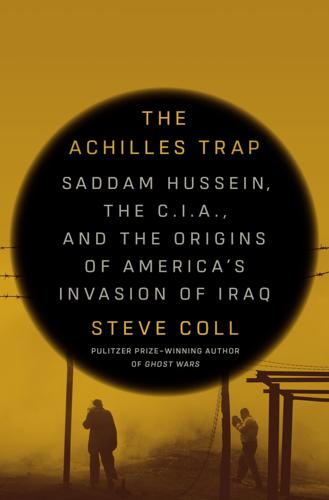
The Achilles Trap: Saddam Hussein, the C.I.A., and the Origins of America's Invasion of Iraq
by Steve Coll · 27 Feb 2024 · 738pp · 196,803 words
Group’s leader. He was exploring a theory that Saddam had been bluffing—pretending that he might have WMD in order to deter the radical ayatollahs of Iran from attacking Iraq. And yet the matter seemed uncertain, Kay told me, since Saddam did not appear to have been particularly afraid
…
Jafar and other colleagues, but the climate in Iraq around politics and Islam was shifting.[3] In neighboring Iran, Ayatollah Khomeini had announced a militant revolution in the name of Shia Islam. Khomeini despised Saddam Hussein. (Saddam and many Baath Party leaders were Sunni, the most prevalent branch of Islam worldwide but
…
in Baghdad would fall within six months because of a “revolution like ours.” An underground Shiite movement in Iraq, the Islamic Dawa Party, energized by Khomeini, had opened an office in Tehran and was planning assassination attempts against Baath Party leaders. Saddam’s intelligence services were on high alert for spies
…
and summer of 1980, as Jafar settled into his reading about the Manhattan Project, Saddam, by now Iraq’s president, became preoccupied with Iran. Khomeini’s incitement of uprisings against Baghdad provoked him. That summer, Saddam concluded that revolutionary Iran’s instability—the country was roiling in political and social
…
conflicts—offered an opportunity to overthrow Khomeini. That is, Saddam would do to Khomeini what Khomeini sought to do to him. Publicly, Saddam called the ayatollah a “mummy” and a “rotten man.” Privately, he reviewed military options.[24] Iran—historically Persia—interacted
…
with Arab nations across a complex landscape of history, language, ethnicity, and religion. Saddam believed he would enhance his prestige in Arab capitals by punishing Khomeini and checking his arrogant revolution
…
. He dismissed Iran’s smaller Sunni Arab neighbors and rivals—the oil-rich and thinly populated kingdoms of Saudi Arabia, Kuwait, and the United Arab Emirates—as “the Arabs of corruption, the Arabs of shame” who could not stand up to the ayatollahs. Iran
…
’s smaller neighbors feared that Khomeini’s revolution might stir their own Shia populations. These were oppressed minorities in nearly all of the emirates, except in Bahrain, where
…
blitzkrieg that Iraq could not fully see coming, agency analysts believed. If it succeeded, Iranian forces might capture Basra and drive on Baghdad to achieve Ayatollah Khomeini’s goal of replacing Saddam’s regime with a “fundamentalist Islamic one,” as a classified paper from the National Intelligence Council warned. President Reagan
…
National Security Decision Directive authorizing the United States to do “whatever was necessary and legal,” as one of the drafters put it, to prevent Khomeini from toppling Saddam. A radical Tehran-backed Shiite government in Baghdad would expand the Iranian revolution, threatening America’s oil-pumping allies in the conservative
…
shrunk from 210,000 to 150,000. Iran’s military atrophied, too, from casualties and purges of senior officers carried out during Khomeini’s revolution. But the ayatollahs could draw on a larger population, and they supplemented their professional forces with tens of thousands of Pasdaran conscripts and volunteers, many of
…
that America was the power behind Zionism; that Zionism was a blight upon the Arab world; that Israel was likely the secret driving force behind Ayatollah Khomeini’s revolution and his war against Iraq; and that the C.I.A. was an enabler of all these conspiracies. Barzan uncorked what Twetten later
…
he said.[8] * * * — Politics in Iraq turned on the outlook of just one man, of course. Barzan’s secret police provided a formidable defense against Khomeini’s incitements of popular revolution within Iraq, yet Saddam looked vulnerable. In July 1982, the same month when Twetten turned up, the president traveled to
…
them. Across the Arab world, newspapers carried speculation that Saddam might—or should—relinquish power to a Baath Party successor, to make a settlement with Khomeini easier. A story went around that Saddam’s minister for health, Riyadh Ibrahim Hussein, had suggested during a cabinet meeting that Saddam temporarily step
…
to obtain American-made spare parts. How? There was a commercial black market, but Saddam suspected that Israel might be covertly sending American parts to Khomeini. Iraqi intelligence picked up traces of this apparent Israeli trade and reported the evidence to Saddam. (The reporting was accurate, as the world would
…
hopes of those Reagan administration strategists who believed that Iraq under Saddam—with its vast oil wealth—could be not only saved from defeat by Ayatollah Khomeini but also coaxed closer to America’s “moderate” Arab allies, led by Egypt, Jordan, and Saudi Arabia. The Reagan team hoped Saddam might cease
…
a nerve agent: tabun. The Iranian charge faltered as the soldiers’ skin blistered and burned, their lungs seared, and they temporarily lost sight.[14] Ayatollah Khomeini’s government protested Iraq’s use of gas publicly. Credible reports reached international journalists. Iqbal Riza, a U.N. official, visited a Tehran hospital in
…
the U.S. was trying hard to block Iran from obtaining weapons. Yet Saddam still suspected that Washington was allowing Israel to supply arms to Ayatollah Khomeini’s regime. The evidence about this remained fragmentary, but Saddam mainly seemed to think that the Americans were congenital double-dealers and that, in
…
war going. Saddam’s thinking reflected a common belief in salons, coffee shops, and ministries across the Arab world: that America must have installed Ayatollah Khomeini in power to gain leverage over oil kingdoms such as Saudi Arabia and Kuwait or to sow instability in a region that the U.S
…
possibly known. In early November 1986, a Lebanese magazine published a jaw-dropping story reporting that the Reagan administration had been secretly selling weapons to Khomeini’s Iran, in collaboration with Israel, apparently to secure the release of American hostages held by Iranian proxies in Lebanon. Then, on the evening
…
at least fifteen centuries before. By the time of the 1979 revolution, about eighty thousand to one hundred thousand Jews remained in the country. Khomeini’s hostility ignited an exodus of about two-thirds of that population—between thirty thousand and forty thousand to the U.S., twenty thousand to
…
Israel, and another ten thousand to, mostly, Europe. Tel Aviv sought to ease the plight of those fleeing by buying favor with Khomeini’s regime. At the same time, some in the Israeli establishment hoped that pragmatists in Tehran might yet see the benefits of renewed collaboration, as
…
Benjamin Weir’s captors in Lebanon released him. The seductive idea that the Reagan administration could free American kidnapping victims by secretly supplying arms to Khomeini had now been established.[2] Tom Twetten was by now head of the C.I.A.’s Near East Division, supervising espionage and covert-action
…
. He was an ardent anti-communist who had never paid much attention to rulebooks. Twetten and McMahon were especially exercised in providing satellite intelligence to Ayatollah Khomeini’s military, which “could cause the Iranians to have a successful offense against the Iraqis with cataclysmic results. . . . We are giving the Iranians the
…
wherewithal for offensive action.” The C.I.A. had shared intelligence with Saddam precisely to prevent Ayatollah Khomeini from deposing him. Now they were risking that very outcome. McMahon told Casey that he had raised these objections directly with the White House but
…
s wish list included one-to-fifty-thousand-scale maps of Iraqi battlefield positions—maps of the precision sometimes used by the U.S. military. Khomeini’s regime also sought the locations of Iraqi division and corps headquarters; locations of logistics depots and supply routes; and information “on Iraqi troop
…
the truth about all of this.”[8] * * * — After the scandal broke, Ronald Reagan hoped to quell the “irresponsible press bilge” about his dealings with Ayatollah Khomeini’s regime. The president told the American people that his main motives had been to renew relations with Iran, help end the Iran-Iraq War
…
willing to accept American aid and exports to bolster his cash-strapped war economy. Nor had American goals changed. The Reagan administration did not want Ayatollah Khomeini to conquer Baghdad. Reagan’s aides worked assiduously during the winter and spring of 1987 to bring Saddam back onside. They revived Operation Staunch
…
, traveled to Baghdad. He delivered a letter to Saddam noting the administration had been “very active” in seeking to deny Iran weapons and force Khomeini to withdraw his troops from Iraqi territory and enter negotiations.[17] Saddam received Murphy in person, signaling his openness to a restored if more cold
…
political officer in the Baghdad embassy. And, once again, the Reagan administration concluded “that Iraq must not be defeated, must not be overrun by Khomeini.”[8] The White House directed the D.I.A. to move forward. Francona and Lang soon had a new code name for their project: Druid
…
Iran to accept the war’s end—not an outright Iranian defeat but an armistice that restored prewar borders and left both Saddam Hussein and Ayatollah Khomeini in power. For Saddam, battlefield momentum seemed to breed greater aggression. More than ever before, he now embraced gas as a winning weapon. According
…
major artillery and tank battles took place across flatter borderlands and deserts to the south.) Iraqi Kurdish rebel groups opposed to Saddam sometimes collaborated with Khomeini’s Iran. The rebels were a political and military wild card—an independent but fractious Iraqi movement fighting for autonomy and the possibility of
…
the Kurdistan Democratic Party revived itself during the 1980s. For Saddam, the ongoing rebellion by Iraqi Kurds, in the midst of an existential war against Ayatollah Khomeini, offered a glaring sign that his grip on the nation was weak, at least in the north. He regarded Kurdish rebels who collaborated with
…
“peaceful and prosperous circumstances with autonomy and real governance.”[23] * * * — To Saddam, the summer of 1988 seemed a season of great victory. On July 20, Ayatollah Khomeini, who was nearing his eighty-sixth birthday and in failing health, at last capitulated and announced a cease-fire, a decision that effectively ended the
…
War. It was the outcome Saddam had long sought—an armistice and a return to prewar borders. “Taking this decision was more deadly than poison,” Khomeini admitted. By September, Saddam had terminated cooperation with the D.I.A. and no longer welcomed American spies to Baghdad.[24] The Iraqi leader
…
than half the size of Iraq’s economy. Saddam demanded that his royal creditors convert the loans to gifts, in recognition of his sacrifices keeping Ayatollah Khomeini at bay. King Fahd of Saudi Arabia decided to avoid trouble, and in March 1989, Saudi Arabia signed a military nonaggression and aid pact
…
the Supreme Council for the Islamic Revolution in Iraq (SCIRI). This was an Iraqi organization founded in Tehran in November 1982 with the blessing of Ayatollah Khomeini. Led by Iraqis, SCIRI promoted Iran’s goal of replacing Saddam Hussein’s regime with clerical rule. Saddam’s security services imprisoned Hakim family
…
less observant Muslims, like Albrisem. Others cried out “Allahu Akbar” and the slogans of Shiite political parties. Some held up pictures of Iran’s Ayatollah Khomeini. Iraqi exiles from the Badr Brigade—the armed wing of the Tehran-based Supreme Council for the Islamic Revolution in Iraq—immediately saw a chance
…
to be contained, and they preferred a united, militarily capable Iraq to achieve this. The Badr Brigade’s presence among the rebels, waving photos of Khomeini, only reinforced this outlook.[21] * * * — Saddam kept up a calm and confident front in private as the rebellion spread, but gradually, he confronted the
…
Iraq unsettled some American policymakers, since most Iraqis were Shia, the faith of revolutionary Iran. But Chalabi dressed like a banker, not an aspiring ayatollah. When the C.I.A.’s Iraq Operations Group started to covertly organize opposition-in-exile to Saddam, Chalabi was an obvious recruit—visible, mouthing
…
together. Their focus was not on bringing down the regime. There was just political rivalry among them.”[28] He decided not to get involved. Ayatollah Ali Akbar Hashemi Rafsanjani, the reformist president of Iran, sought to revive the country’s science and technology sectors. His government provided the Shahristani family
…
winter. The Bush administration’s plan was riddled with bad assumptions, but one of the largest blind spots involved Iran. Even though Tehran’s ayatollahs had been seeking Saddam’s overthrow for more than two decades, the president and his advisers failed to think through how Iran would exploit this
…
Escape to Freedom) and, more recently, an English-language memoir, Free of Fear (Bloomington, Ind.: AuthorHouse, 2021). BACK TO NOTE REFERENCE 3 Interview with Shahristani; Khomeini’s quotations (“that pig,” “revolution like ours”) from Nigel Ashton and Bryan Gibson, eds., The Iran-Iraq War: New International Perspectives (Abingdon, U.K.: Routledge
…
BACK TO NOTE REFERENCE 21 CCRC SH-SHTP-0000-788. BACK TO NOTE REFERENCE 22 CCRC SH-SHTP-0000-788. BACK TO NOTE REFERENCE 23 Khomeini quotation from Murray and Woods, Iran-Iraq War, 337; Saddam’s termination of cooperation with the D.I.A from an interview with Francona.
…
Zalmay, 366–67 Khaliq, Humam Abdul, 12, 15, 81–82, 90 Khan, A. Q., 84–85, 183–84 Khoei, Abu al-Qasim al-, 224, 229 Khomeini, Ayatollah, 39 and 1991 uprisings, 222, 226 announces ceasefire, 132 arms supplied to, 94–97 C.I.A. shares intelligence with, 97–100 and founding of
…
with Saddam, 166, 174, 474 and Iran-Contra scandal, 95–105, 462 letters to Saddam, 65, 69, 103–4 meets with Aziz, 78–79 opposes Khomeini, 39, 105–6 and reconciling with Saddam, 105–6, 109–10 Rumsfeld’s mission for, 64–71, 381 on Saddam as threat, 39–40
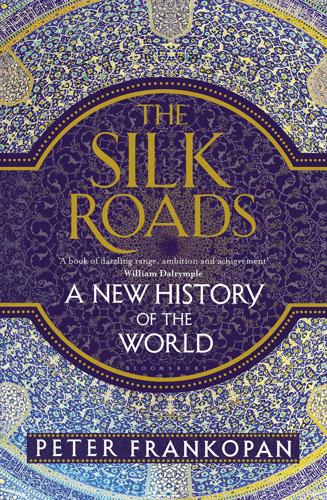
The Silk Roads: A New History of the World
by Peter Frankopan · 26 Aug 2015 · 1,042pp · 273,092 words
or with anyone else, but rather ‘that the oil industry of Iran be declared as nationalised throughout all regions of the country, without exception’.67 Ayatollah Kashani, a populist cleric who had only recently returned from exile and was already a well-known and vocal critic of the west, gave his
…
the screw, giving British employees of Anglo-Iranian a week to pack and to get out of Iran in September 1951. To top it off, Ayatollah Kashani declared a national day of ‘hatred against the British government’. Britain had become a byword for all that was wrong in Iran, one that
…
on the streets of the capital, organised by the CIA’s two main local operatives. There were other notable recipients too – above all mullahs like Ayatollah Kashani, whose interests were judged to be mutually compatible with the aims of the plotters.79 Muslim scholars had concluded that the precepts and anti
…
was the spiritual father of a great many heirs across this region. For while the methods, aims and ambitions of a group as diverse as Ayatollah Khomeini, Saddam Hussein, Osama bin Laden and the Taliban varied widely, all were united by a core tenet that the west was duplicitous and malign and
…
US in particular. They also provided fertile ground for critics to exploit. None was more adept at doing so than a Shīa scholar, Ruhollah Moosavi Khomeini, who caught the mood of a population that was increasingly disgruntled by low wages, the lack of economic progress and the conspicuous absence of social
…
justice. ‘Your Excellency, Mr Shah, let me give you a piece of advice,’ the ayatollah declared in one particularly fiery speech in the early 1960s. ‘You miserable wretch, isn’t it time for you to think and reflect a little
…
you out of Iran?’55 It was enough to get him arrested, upon which riots broke out in the centre of Teheran, with crowds chanting ‘Khomeini or death’. As CIA intelligence reports noted, even government employees joined demonstrations against the regime.56 Rather than heeding the warnings, the Shah responded by
…
men whose minds have not been stirred in centuries’.57 Instead of offering concessions or instigating whole-hearted reforms, energy was focused on tightening controls. Khomeini was forced into exile, settling for more than a decade in Najaf in neighbouring Iraq, where his passionate denunciations of the Shah and his regime
…
characters made up of defiant leaders like Mossadegh, the populist demagogue Nasser, the hardliner Qasim and increasingly anti-western figures in Iran typified by the Ayatollah Khomeini. All were linked by their concerted attempts to detach their states from overpowering outside attention. OPEC was not a political movement; but aligning a range
…
worsened, there was a flurry of activity as Moscow sought to take advantage of the growing disenchantment with the US, which was so strong that Ayatollah Khomeini could declare in 1964: ‘Let the American President know that in the eyes of the Iranian people he is the most repellent member of the
…
rising cost of living on the back of plunging oil prices as global supplies began to exceed demand. Growing dissent played into the hands of Ayatollah Khomeini, by now exiled in Paris after being removed from Iraq as part of the deal struck with the Shah in 1975
…
earlier. In a move that appealed to left-wing revolutionaries, Islamic hardliners and almost all those who were outside the golden loop of gilded rewards, Khomeini declared that the time had come for the Shah to step aside. The beneficiaries of good leadership should be the Iranian public and Islam – and
…
not the Shah. To allay fears that Iran would become a religious state, Khomeini promised that clerics, preachers and zealots would not rule the country directly, but would provide guidance. He set out four tenets that underpinned the future
…
the situation, maintaining support for the Shah and backing a proposal made at the end of January 1979 by the Prime Minister, Shapur Bakhtiar, that Ayatollah Khomeini should be arrested if he flew into Iran.5 The blinkered futility of this thinking became apparent within a matter of days. On 1 February
…
1979, Ayatollah Khomeini touched down in Teheran fourteen years after being forced into exile. Enormous crowds gathered to greet him at the airport, following him as he made
…
build steel mills, upgrade airport terminals and develop ports that were scrapped overnight, and the arms contracts that were annulled and torn up. In 1979, Khomeini cancelled $9 billion of purchases from the US, which left manufacturers with a painful hole in their accounts and sizeable amounts of stock to try
…
the future would withhold. For the US, however, the stakes went beyond the economic and political fall-out at home. It was some consolation that Khomeini and his fellow clerics had little time for the atheist politics of the Soviet Union, and little sympathy with – or affinity for – left-wing groups
…
, the US was nevertheless pushed decisively on to the defensive; a series of footholds that had previously been secure became precarious or lost altogether. After Khomeini had taken power, he immediately shut down the US intelligence facilities located in Iran that served as early-warning systems for Soviet nuclear attacks, and
…
looked very different. The US had been keeping a watchful eye on the situation in Afghanistan, whose strategic importance rose further in the wake of Khomeini’s Revolution. In the spring of 1979, for example, a CIA team conducted a survey to assess the country as a possible replacement location for
…
The uncertainty of what would happen next was made clear with the murder of the US ambassador to Kabul in February 1979. Just days after Khomeini had returned home, Ambassador Adolph Dubs’s armoured vehicle was car-jacked in broad daylight on the streets of the Afghan capital, at what appeared
…
same thing. Events in Iran had produced no benefit, and in fact were assessed by Moscow as being detrimental to the USSR’s interests as Khomeini’s seizure of power had reduced opportunities, rather than opened them up. Contingency plans were therefore drawn up by the Soviet military for a major
…
have been to make a short, sharp protest about the decision to admit the Shah to the US, things escalated rapidly.50 On 5 November, Ayatollah Khomeini commented on the situation at the embassy. He did not mince his words, let alone appeal for calm. The embassies of Teheran, he declared, were
…
to defuse the situation ranged from the inept to the shambolic. One envoy, carrying a personal appeal from the President to Khomeini, was flatly denied an audience with the ayatollah and was unable to deliver his letter; it emerged that another envoy had been authorised to open discussions with the Palestinian Liberation
…
poll was invented.54 The sabre-rattling had little effect, however. The oil embargo was dismissed by Teheran as irrelevant. ‘The world needs oil,’ said Ayatollah Khomeini in a speech a week after Carter’s announcement. ‘The world does not need America. Other countries will turn to those of us who have
…
, President Carter and his advisers had been contemplating plans to seize Iran’s offshore islands, and to look at military and covert operations to overthrow Khomeini. An ominous situation had turned critical.61 Already facing a disastrous hostage situation, the US was now forced to contemplate a major extension of Soviet
…
representatives of Teheran and a presidential aide who wore a wig, false moustache and glasses to some meetings; but, as these discussions were going on, Ayatollah Khomeini kept giving speeches about the ‘world-devouring USA’ and about how the ‘great Satan’ should be taught a lesson.64 Eventually, in April 1980, President
…
to a C-130 refuelling aircraft, resulting in an explosion that brought down both – and killed eight American servicemen.65 It was a propaganda disaster. Khomeini, not surprisingly, portrayed it as an act of divine intervention.66 Others looked on with bemusement at the ineptitude of the failed mission. The fact
…
and the cities of Ābādān and Khurramshahr. There were no doubts in Iranian minds about who lay behind these attacks. ‘The hands of America’, thundered Khomeini, had ‘emerged from Saddam’s sleeve’.68 The attack, claimed President Bani-Sadr, was the result of an American–Iraqi–Israeli master plan whose aims
…
exception of Kaddafi’.74 Saddam had also been ruffled by the Revolution in Iran, muttering that the removal of the Shah and the rise of Ayatollah Khomeini was ‘completely an American decision’. The unrest was the start of a master plan, he declared, that would use Muslim clerics ‘to scare the Gulf
…
Iran to release the hostages’, according to a senior advisor involved in the crisis meetings that took place in this period.81 The pressure on Khomeini’s regime was amplified by the knowledge that, in order to respond to the attack, it desperately needed spare parts for military hardware that had
…
The willingness of the Iranians and the Israelis to do business with each other was in many ways surprising, especially given the derogatory way that Khomeini in particular regularly talked about Jews and about Israel. ‘Islam and the Islamic people met their first saboteur in the Jewish people who are at
…
1970.84 Iran and Israel were now cast as unlikely bedfellows thanks to Saddam Hussein’s intervention in the Gulf. This was one reason why Khomeini’s rhetoric towards minorities and to other religions softened in the early 1980s, by which point he was referring to Judaism as ‘an honourable religion
…
behind the scenes, the end of the stalemate had not marked an improvement in US relations with Iran. In contrast, the Soviets continued to court Khomeini – as the CIA noted with alarm. Momentum seemed to be behind the USSR, especially given its apparent success in Afghanistan where troops had occupied the
…
Iran; perhaps it was worth considering a ‘bolder – and perhaps riskier policy’, suggested the author.118 There was much to gain – for both sides. With Khomeini now old and ailing, Washington was keen to identify the next generation of leaders who would rise to positions of power. According to some reports
…
hardly unfounded. The Americans had been prepared to make friends with the Shah; now they were trying to cement ties with the regime of the Ayatollah Khomeini. Substantial military and economic support was given to an unsavoury group of characters in Afghanistan solely on the basis of long-standing US rivalry with
…
. Carey, ‘Iranian Agriculture and its Development: 1952–1973’, International Journal of Middle East Studies 7.3 (1976), 359–82. 55H. Ruhani, Nehzat-e Imam-e Khomeini, 2 vols (Teheran, 1979), 1, p. 25. 56CIA Bulletin, 5 May 1961, cited by Nemchenok, ‘In Search of Stability’, 348. 57Gahnamye panjah sal Shahanshahiye Pahlavi
…
(Paris, 1964), 24 January 1963. 58See D. Brumberg, Reinventing Khomeini: The Struggle for Reform in Iran (Chicago, 2001). 59D. Zahedi, The Iranian Revolution: Then and Now (Boulder, CO, 2000), p. 156. 60‘United States Support
…
Science Quarterly 106.2 (1991), 244. 5Z. Brzezinski, Power and Principle: Memoirs of the National Security Adviser, 1977–1981 (London, 1983), p. 38. 6‘Exiled Ayatollah Khomeini returns to Iran’, BBC News, 1 February 1979. 7Sick, All Fall Down, pp. 154–6; D. Farber, Taken Hostage: The Iran Hostage Crisis and America
…
(eds), Neither East nor West: Iran, the Soviet Union and the United States (New Haven, 1990), 279; A. Rubinstein, ‘The Soviet Union and Iran under Khomeini’, International Affairs 57.4 (1981), 599. 15Turner’s testimony was leaked to the press, ‘Turner Sees a Gap in Verifying Treaty: Says Iran Bases Can
…
. Jeffreys-Jones and C. Andrew (eds), Eternal Vigilance? 50 Years of the CIA (London, 1997), pp. 94–5. 18Rubinstein, ‘The Soviet Union and Iran under Khomeini’, 599, 601. 19Gates, From the Shadows, p. 132. 20R. Braithwaite, Afgantsy: The Russians in Afghanistan, 1979–89 (London, 2011), pp. 37–44. 21‘Main
…
here C. Emery, ‘The Transatlantic and Cold War Dynamics of Iran Sanctions, 1979–80’, Cold War History 10.3 (2010), 374–6. 55‘Text of Khomeini speech’, 20 November 1979, NSC memo to President Carter, cited by Emery, ‘Iran Sanctions’, 374. 56Ibid. 57Ibid., 375. 58‘The Hostage Situation’, Memo from
…
. 63‘The State of the Union. Address Delivered Before a Joint Session of the Congress’, 23 January 1980, p. 197. 64M. Bowden, Guests of the Ayatollah: The First Battle in America’s War with Militant Islam (2006), pp. 359–61. 65J. Kyle and J. Eidson, The Guts to Try: The Untold
…
Re-Evaluation (Manchester, 2005), p. 171. 83Brzezinski, Power and Principle, p. 504. 84J.-M. Xaviere (tr.), Sayings of the Ayatollah Khomeini: Political, Philosophical, Social and Religious: Extracts from Three Major Works by the Ayatollah (New York, 1980), pp. 8–9. 85E. Abrahamian, Khomeinism: Essays on the Islamic Republic (London, 1989), p. 51. 86T
…
State Records’, 100. 128K. Woods, Mother of All Battles: Saddam Hussein’s Strategic Plan for the Persian Gulf War (Annapolis, 2008), p. 50. 129B. Souresrafil, Khomeini and Israel (London, 1988), p. 114. 130Report of the Congressional Committees Investigating the Iran–Contra Affair, with Supplemental, Minority, and Additional Views (Washington, DC, 1987
…
, here Karachaganak gas field, here Karachi, here, here, here Karaj dam, here, here Karakorum, here, here, here, here Karakum desert, here Karzai, Hamid, here Kashani, Ayatollah, here, here Kashgar, here, here, here, here, here al-Kāshgharī, Mamūd, here Kavad, Shah, here Kavanagh, Corporal Charles, here Kavtaradze, Sergei, here Kazakhs, here, here
…
ājib, Yūsuf, here Khatami, Mohammad, here Khazars, here, here, here, here conversion to Judaism, here, here, here Kherson, here Khiva, here, here Khokand, here, here Khomeini, Ayatollah, here, here, here, here, here, here, here and export of Islamic revolution, here, here and hostage crisis, here and Iran–Iraq War, here rapprochement with
…
Tatars, see Mongols Taxila, here tea, here, here, here, here Teheran, here, here, here, here, here, here, here, here, here anti-American demonstrations, here pro-Khomeini protests, here, here US embassy and hostage crisis, here, here, here, here Teheran Conference, here, here Telefunken, here Tengri (nomad deity), here, here, here Tenochtitlán
…
. RIGHT: The Shah of Iran, Reza Pahlavi and his wife. ‘My visions were miracles that saved the country’, he told one interviewer. The return of Ayatollah Khomeini to Iran in 1979 was greeted with wild celebrations in Teheran. The BBC estimated that 5 million people took to the streets. Saddam Hussein, wearing
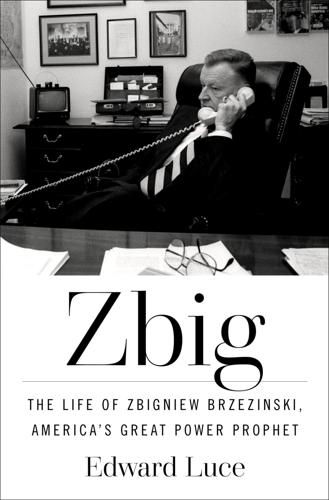
Zbig: The Life of Zbigniew Brzezinski, America's Great Power Prophet
by Edward Luce · 13 May 2025 · 612pp · 235,188 words
reviewed a range of possible responses. State wanted the shah to enter into a coalition with the opposition parties, including Shiite radicals representing the exiled Ayatollah Ruhollah Khomeini. Brzezinski saw the project as a pipe dream. His knowledge of revolutions, especially the Bolshevik one, convinced him that reform in the midst of
…
would leave the country along with his senior generals. After that, the younger pro-Western Iranian military officers would form an alliance with the repatriated Ayatollah Khomeini. The ayatollah would play a “Gandhi-like” role as the spiritual leader of Iran’s new arrangement without involving himself in day-to-day politics. The
…
figures had been exiled or jailed. The notion of a civilian national front was thus also based on fantasy. Sullivan, meanwhile, had convinced himself that Ayatollah Khomeini’s return would have a benevolent impact; the Shiite leader would provide a calming influence as Iran’s spiritual guide. Only Carter could cut through
…
did not feature in anyone’s playbook. Neither Carter nor Brzezinski yet understood the difference between Shia and Sunni Islam. If intelligence operatives had read Khomeini’s freely available tomes or listened to his recorded messages distributed on cassette tapes via Iran’s mosques, they would never have mistaken him for
…
a nonviolent Shiite version of Mohandas Gandhi. Few of them took Khomeini’s words seriously. The shah was also ignorant of the mullahs’ appeal. He had swallowed his own propaganda that Iran was a modernizing society in
…
of the Soviet nuclear tests were carried out. By one of those odd quirks of fate, Ayatollah Khomeini had made his dramatic flight back to Tehran on the same day that Deng Xiaoping left Washington. The ayatollah’s return led to the CIA’s flurried departure from Iran. The agency quickly fled the
…
s line was that the United States stood behind Bakhtiar. He was urging the Iranian army to do what was necessary to shore him up. Ayatollah Khomeini had been greeted by millions as a prophet and savior on his return to Tehran the previous week. Brzezinski had hurriedly left the state dinner
…
with Deng Xiaoping to call William Seawell, chief executive officer of Pan American World Airways, to ensure the ayatollah would not go back on an American plane.8 The shah had fled to Egypt two weeks before that. With each shift in the dynamics
…
aware of Sullivan’s freelancing. In early January, Sullivan persuaded Vance that the US should send an emissary to Paris to open a dialogue with Khomeini.9 At a meeting on January 10, Brzezinski convinced Carter and Vance that such an outreach could blow up in their faces. Carter was
…
Bakhtiar, an opposition moderate who had been appointed prime minister by the shah. They agreed instead to ask the French to act as emissaries to Khomeini on America’s behalf. On hearing that his advice had been ignored, Sullivan sent an explosive rebuke to Washington deploring Carter’s decision as “a
…
Washington now had two ambassadors. The first, Sullivan, seemed to answer only to himself and was on a solo mission to forge an alliance with Khomeini’s forces. The other, Huyser, reported to Harold Brown. His role was to stiffen the Iranian military’s spine. Each night Sullivan and Huyser headed
…
the postrevolutionary situation with a moderate coalition. After a few months, the Bolsheviks got rid of him. The implication was that Bakhtiar was Kerensky and Khomeini was Lenin. Another example was Georges-Jacques Danton, a relative moderate of the 1789 French Revolution, who had been executed in Maximilien Robespierre’s reign
…
of terror. Revolutions do not stop halfway, said Brzezinski. Neither would Iran’s. A few days after Khomeini’s return, Huyser quit his post. Over a long meeting in the Oval Office, the general spelled out his differences with Sullivan, who was still
…
s efforts were being stymied by his “badly informed superiors” (as he was quoted in the media as saying). “Sullivan thought we ought to permit Khomeini to take over, that it would lead to democracy,” the incredulous Carter recorded in his diary.17 Still the president would not remove him. Within
…
a few days, Khomeini won the standoff; Bakhtiar fled into exile. The revolution started to gather speed. The situation was neatly captured by the US defense attaché in Tehran
…
, who cabled, “Army surrenders; Khomeini wins. Destroying all classified.”18 Even had a coup been desirable, would it have been feasible? It is impossible to say. Huyser believed he was
…
was more like a world statesman. John Paul II threw back his head and laughed. * * * It was in Qom, a Shia holy city from which Ayatollah Khomeini was directing Iran’s revolution, not in Rome, that Carter’s fate was being written. Since the shah had fled to Egypt in January, Carter
…
White House. To Carter’s growing annoyance, Brzezinski raised the shah’s fate with him at regular intervals. Carter knew that a key element of Khomeini’s street appeal was that Iranians saw him as their bulwark against the widely believed expectation that the Great Satan was plotting to reinstate the
…
arrival in America. Two million people turned out. Precht had led the White House and Vance to believe that Bazargan and his ministers had sidelined Khomeini. The moderates were in fact locked in a power struggle with the mullahs. The picture of Brzezinski shaking Bazargan’s hand was splashed on the
…
and took sixty-six Americans hostage. The storming of America’s Embassy was initially an internal power move against the moderates. It worked. An empowered Khomeini ousted Bazargan and his ministers a few weeks later. Iran’s Kerensky fled into exile. Brzezinski had been an unwitting catalyst of Bazargan’s demise
…
. Carter leaned towards the latter. At the NSC meetings in the wake of the occupation, there was unanimity on appointing envoys to reach out to Khomeini. No US emissary ever got near him. Over the coming weeks, a variety of intermediaries, including the UN secretary-general, Kurt Waldheim, an envoy
…
was to release the thirteen women and African Americans among the hostages, which reduced the total to fifty-three. But it was increasingly obvious that Khomeini did not have full control over the student radicals. Within days of the embassy takeover, Carter, Vance, and Mondale were persuaded that it would
…
no role in admitting the shah to the US. Carter thus gave him a longer rope, though not that much longer. In late November, Khomeini said he was considering putting the American hostages on trial for espionage. Given the escalating level of killing in Tehran and what Laingen had cabled
…
was an atmosphere of “dangerous emotional frenzy,” Khomeini’s threat was plausible. Executions of Americans could not be ruled out. The sight of apostates and other enemies of the revolution being hung from
…
the ends of cranes was not uncommon. At an NSC meeting, Carter’s team debated how best to talk the ayatollah off the ledge. One option was to threaten a disruption of Iranian commerce if the hostages were put on trial. Vance opposed that as too
…
provocative. Jordan, along with Brzezinski, was in favor of threatening unspecified military action. Carter tilted towards getting tougher. They issued a statement to that effect. Khomeini stopped mentioning the trials. To Brzezinski, here was evidence that the threat of force was effective. Carter remained conflicted. Again over Vance’s objections, the
…
, Brzezinski that same week had labeled his diplomacy “contractual-litigational.”81 Vance had thrived on Wall Street by being congenial; that would not work with Khomeini. “The American people, who have been supportive to date, will soon begin to sour on the situation,” Jordan wrote in the memo to Carter, “
…
America’s strategic calculus. The US government machinery was gearing towards a slow tightening of sanctions on Iran. Brzezinski argued that they would be useless. Khomeini would not bend to commercial threats. Devoted actors who believed in their cause could tolerate indefinite economic pain. Rhodesia’s racist white minority had withstood
…
big and immediate, as opposed to the incremental schedule that State was working on. Carter dismissed both ideas. Such actions would only rally Iranians around Khomeini, he said. Carter did allow work on a hostage rescue operation to get under way. As early as November 6, two days after the embassy
…
always comes out on both sides of every issue.”92 On the last Friday before Christmas, Brzezinski finally got Carter to agree that the grand ayatollah was “not interested in a compromise.”93 Action could now be contemplated. In tandem with economic pressure, the White House should start working on
…
a plan to remove Khomeini. Brzezinski created a subcommittee to pursue covert action against the ayatollah’s regime. Its decisions would be secret and its scope broad. Among the potential tools would be assistance to the
…
chance of success. The dress rehearsals at various mock urban warfare sites had gone well. As Carter contemplated the final months of his first term, Khomeini seemed to be the chief obstacle in the way of his second. As always, but especially now, Brzezinski’s goal was to convince Carter
…
that fortune favored the brave. 9 The Ayatollah and the Pope At around 3:00 a.m. on June 3, 1980, Brzezinski was startled awake by his and Muska’s bedside phone. “Sorry
…
bloodshed. That left two options. The ideal one would be their release by negotiation. The first hundred days of their captivity had made clear that Ayatollah Khomeini, now the supreme leader of Iran’s theocratic Council of Guardians, had no interest in parlaying with the American devil. One small ray of light
…
be a slight on the isthmus state’s medical competence. The shah wanted to return to Egypt and be treated there. That would provoke the ayatollahs, given Egypt’s proximity to Iran. America’s European allies were also resisting Carter’s package of sanctions. Even Britain was slow-walking Carter’s
…
the failed first attempt were put on macabre display in Tehran. The Stars and Stripes was again being burned on the streets of Iran. The ayatollah’s ubiquitous visage seemed to mock American impotence. Vance’s resignation only fueled chatter about Carter’s haplessness. In Carter’s defense, Operation Eagle Claw
…
sat in on the meeting.44 Brzezinski asked the ambassador to pass on a request to Libya’s strongman, Muammar Gaddafi, who had ties to Ayatollah Khomeini: Would Gaddafi press Iran’s leader to release the hostages? Gaddafi received Brzezinski’s message and relayed it to
…
the US hostages from Iran.65 John Paul II obligingly instructed Hilarion Capucci, a Syrian bishop and the papal nuncio in Tehran, to appeal to Ayatollah Khomeini. Capucci was highly popular with Iran’s Revolutionary Council since he had been convicted by Israel of smuggling arms to the Palestinians. The pleas of
…
hostages were approaching three hundred days in captivity. Yet there were precious few signs that State was making headway via its third-party probes to Khomeini. “My impression is not much is being done,” Brzezinski thought after Warren Christopher had given the National Security Council an overview of its desultory
…
caused Republican jitters; Reagan accused Carter of having fomented the Iran-Iraq War. A few days before the Iraqi invasion, Khomeini put out feelers to Carter on releasing the hostages. The ayatollah’s doctors had apparently given him months, possibly only weeks, to live (he actually survived another eight years), which lent
…
an added urgency to ending the hostage crisis. Khomeini had three conditions for their release: that the US would unfreeze Iran’
…
only in our relations with Iran but in the elections here,” wrote Brzezinski. “No wonder the president was absolutely elated.”79 After the Iraq invasion, Khomeini added a fourth condition: that the US supply Iran with the military spare parts for which it had already paid. The mesmerizing prospect of an
…
the Election of Ronald Reagan, provided strong circumstantial evidence of that theory. Carter was also convinced that Reagan’s campaign made such a deal with Khomeini, but he felt that it would be counterproductive to say so in public.80 After leaving office, Carter learned from PLO leader Yasser Arafat that
…
months of paralysis since then. Instead of showing the closing rallies of Carter’s and Reagan’s campaigns, the networks were dominated by reels of Khomeini addressing fanatical crowds chanting “Death to America!” The blanket coverage could not fail to remind voters of America’s unavenged humiliation. As late as the
…
,” Allen replied.115 Kissinger had about as much chance of being the next secretary of state as the pope had of becoming Iran’s next ayatollah, he said. “Kissinger would betray his mother to get a headline,” Allen later recalled.116 Reagan’s pick for Foggy Bottom was Alexander Haig,
…
Still they waited. And waited. The hostages finally got airborne at 12:05 p.m., five minutes after Carter’s presidency had ended. It was Ayatollah Khomeini’s final twist of the knife in Carter. One small consolation was that Reagan loaned Air Force One so that Carter could greet the hostages
…
1980. 138. Prince Turki Al-Faisal, interview with author, July 2023. 139. NSA diary, February 9, 1980. 140. NSA diary, February 9, 1980. 9: THE AYATOLLAH AND THE POPE 1. Charles Gati, “The World According to Zbig,” Politico, November 27, 2013, https://www.politico.com/magazine/story/2013/11/the-world
…
s departure from, 284 human rights abuses in, 310–11 Iraq’s invasion of, 354 Jaleh Square massacre (Tehran, 1978), 268–69, 271 under Khomeini (see Khomeini, Ayatollah Ruhollah) under martial law, 268–69, 272 military aid to Afghan rebels by, 330 oil revenues of, 270 protests against the shah’s asylum in
…
429–31, 453 Kertesz, Stephen D., 97 KGB (now FSB), 7, 301–2, 319, 321, 390, 403 Khan, Mohammad Daoud, 318 Kharkiv (Ukraine), 20–21 Khomeini, Ayatollah Ruhollah vs. Bakhtiar, 289 CV vs. ZB on, 287 in exile, 271 health of, 354 return to Iran, 272–73, 284, 286 revolution directed by
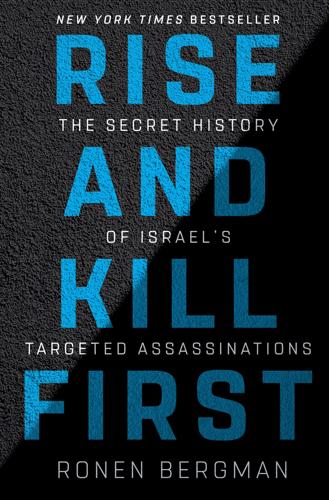
Rise and Kill First: The Secret History of Israel's Targeted Assassinations
by Ronen Bergman · 30 Jan 2018 · 1,071pp · 295,220 words
PLO in Lebanon—and the extremist Shiites, seemed to us to have significant potential dangers.” The most prominent leader of the religious opposition was Ruhollah Khomeini, who bore the hereditary title sayyid, meaning “lord,” used only by descendants of the Prophet Muhammad, and had earned the highest Shiite clerical rank,
…
Grand Ayatollah. As a young man in his family’s hometown of Khomein, the future revolutionary was a well-known preacher, acutely expert in the intricacies of
…
the faith, but lacking in charismatic oratory. In 1962, however, at age sixty, Khomeini underwent a dramatic change: After a period of seclusion, he emerged from his bedchamber convinced that he had been visited by the Archangel Gabriel, God
…
’s special messenger, who had told him that Allah had destined him for great things. To accomplish his mission, Khomeini transformed. He abandoned his hitherto complex style and began to speak simply, never using more than two thousand words, and repeating certain phrases over and
…
that had to be performed by the good, who were both judges and executioners. His followers among the poor found this persuasive. Later on, Khomeini reshaped Shiite Islam to conform with the leadership role he had designed for himself. He shook off the basic separation of civil and religious authority
…
power to execute its citizens. Take this sanction away, by changing death to a desired reward, and the state becomes powerless. “Please kill us,” Khomeini proclaimed and wrote. “For we, too, are going to kill you!” He would later instruct the bereaved families of martyrs and their neighbors to hold
…
joyous celebrations to mark the deaths of their sons in Iran’s holy war. Khomeini’s next step was to shatter the most important traditional custom of Shiite theology. He allowed the believers—even encouraged them—to call him “
…
an open campaign against the shah from Qom, Iran’s holiest city. The shah couldn’t risk killing the ayatollah, so instead he was exiled. Khomeini found refuge in Turkey, Iraq, and finally France. The lessons he taught there attracted more and more students. During the 1970s, he became, from afar
…
, by the watchful eyes of the SAVAK, the shah’s secret service. The organization’s leaders asked the shah for permission to raid the ayatollah’s distribution centers. But the request was refused, because of President Carter’s pressure to refrain from violating civil rights and the weakness and confusion
…
and that Iran would remain an ally of Israel and the United States forever. It was a grave mistake. From his latest headquarters in Paris, Khomeini directed the mass protests of thousands, which soon became tens and then hundreds of thousands, in cities throughout Iran. On January 16, the shah,
…
, Shapour Bakhtiar, turned to the new head of the Mossad station in Tehran, Eliezer Tsafrir, with a straightforward request: Would the Mossad please kill Khomeini in the Parisian suburb where he was living? The head of the agency, Yitzhak Hofi, called an urgent meeting of his senior staff at headquarters
…
the Jews quite clear, from seizing power in Iran. The attendees of the meeting discussed several points: Was the plan operationally feasible? Did the ayatollah actually represent such a grave danger? If so, would Israel be prepared to take upon itself the risks of eliminating a top clerical figure, and
…
of assassinations against political leaders.” Yossi Alpher, the senior research analyst dealing with Iran, told the meeting, “We do not have sufficient information about Khomeini’s positions or about his chances of realizing them, and therefore I cannot accurately evaluate whether the risk is justified.” Hofi accepted Alpher’s opinion
…
it with one short, sharp statement: “I will break their teeth.” The United States, the “Great Satan,” as Khomeini thundered, and Israel, “the Little Satan,” saw the ayatollah’s rise as a passing episode. After all, American and British intelligence services had restored the shah to power once before, after left
…
-wing rebels deposed him in 1953. But Khomeini’s rise was the culmination of years of foment, girded by enormous
…
popular support and protected by seasoned, sophisticated lieutenants who identified and crushed all attempts at counterrevolution. In November, a mob of angry student supporters of Khomeini broke into the U.S. embassy in Tehran, occupied it, and took the diplomats and other workers there hostage. They also seized a vast
…
the Middle East was now their bitterest enemy. It also soon became clear that Khomeini’s vision was not restricted to the Islamic republic that he declared in Iran. Rather than clinging tenuously to power, the ayatollah was determined to spread his Islamic revolution throughout the Middle East. He intended to
…
begin with Lebanon. — ONE OF KHOMEINI’S CLOSEST allies during his years in exile, a Shiite cleric named Ali Akbar Mohtashamipur,
…
was given the mission of spreading the revolution. He first met Khomeini when studying in Najaf, a city holy to Shiites in Iraq, where the ayatollah had found refuge after being expelled by the shah. He accompanied him throughout his years of exile both there
…
and in France. In 1973, Khomeini had sent him, together with a group of other loyal associates, to the
…
establish links with Muslim liberation movements in the region. It was Mohtashamipur who wove the alliance with the PLO that led to the acceptance of Khomeini’s men into the training bases of Force 17. At the training bases, PLO experts taught young men the arts of sabotage, intelligence operations,
…
and terror tactics. For Arafat, having Khomeini’s men train at his bases was a way to acquire support for the Palestinian cause and to make himself into an international figure. But
…
fomenting in Iran to Lebanon, a small country in the heart of the Middle East, with a large population of impoverished Shiites ripe for incitement. Khomeini wanted to stake out “a forward strategic position that brought us close to Jerusalem”—Lebanon’s border with Israel. By 1979, hundreds of Shiites
…
in Lebanon had become the lords of the land. Almost three years after the fall of the shah, with the revolution firmly established in Tehran, Khomeini named Mohtashamipur Iran’s ambassador to Syria. That post came with two roles. Overtly, he was an emissary of his country’s foreign ministry,
…
two. At the time, though, much of Lebanon was controlled by the Syrian military. In order for his revolutionary forces to operate effectively, then, Khomeini needed to broker a deal with Syrian president Hafez al-Assad. That was Mohtashamipur’s job: finessing the diplomacy that would allow a military alliance
…
involved a secret. Only later did the militia build a memorial monument to Qassir in his village, publish a letter of appreciation that Supreme Leader Khomeini had written to the family, and declare the date of his death the annual Martyrs’ Day. This secrecy was convenient for Israel’s defense
…
worse, no one at the time recognized the connection between the Iranians and Lebanon’s Shiites—that the balance of power was being tipped by Khomeini’s revolutionaries, allied with Assad. “For a long time,” said David Barkai, of Unit 504, “we never realized that the significant activity was
…
person, charismatic and uninhibited. Although they were Palestinian Sunnis and Mughniyeh was a Lebanese Shiite, the interests of both sides intersected. At the time, Khomeini’s followers—poor, exiled Iranians and their Lebanese allies—were grateful to the PLO for their hospitality and support. Mughniyeh was acting under the auspices
…
effort, patience, and sacrifice, and the spirit of willingness to sacrifice oneself.” By “sacrifice oneself,” Fadlallah was referring to the religious sanction given by Khomeini to his young soldiers, some no more than children, who’d been brainwashed into marching forward into certain death through minefields laid by invading Iraqis
…
worse, Mohtashamipur was now a symbol for the revolutionary cause, a maimed survivor of Khomeini’s holy war. “I was sorry about the regrettable occurrence that world imperialism has caused to happen to you,” his friend the ayatollah wrote to him. “I hope that your health will soon return and that
…
young leader was dead. Harb was immediately proclaimed a martyr. At the religious colleges in Qom, prayers were held in his memory, and the Grand Ayatollah Hossein Ali Montazeri, one of Iran’s top clerics, sent a cable of condolences to his Shiite colleagues in Lebanon, praising Harb’s feats.
…
leaders were under the influence of the Islamic Revolutionary Guard Corps (IRGC) in their day-to-day conduct, and followed the religious authority of the ayatollahs’ regime in Tehran. Iran, for its part, saw Hezbollah as its main ally in the Middle East. The Supreme Leader of the Islamic Revolution,
…
Grand Ayatollah Sayyid Ali Khamenei, who had replaced Khomeini when he died, in June 1989, declared, “The martyrdom of Sayyid Abbas is a turning point in the course of resistance,” and
…
that dealing with their enemy to the south had to be their top priority. They now felt that Hezbollah would not succeed in transplanting the Khomeini revolution to Lebanon without first getting rid of the Israeli occupation. The man Nasrallah ordered to implement the new policy was Hezbollah’s military
…
Brotherhood in Gaza was seen mainly as a social movement, devoid of political ambitions. Throughout the 1960s and ’70s, that was largely accurate. But then Ayatollah Khomeini overthrew the shah in Iran. A religious scholar, pious and holy, had led a revolution, raised an army, and instituted a functioning government. He
…
own. The state was in the throes of a severe economic crisis, and there were acute rifts in Persian society and growing resentment toward the ayatollahs. Along with North Korea and Iraq, Iran had become among the most isolated and ostracized countries in the world. In his State of the
…
an existential danger to Israel. Dagan was told that he would receive whatever he wanted—money, personnel, endless resources—as long as he stopped the ayatollahs from building an atomic bomb. He took it all and got down to work. “Sharon was right to appoint him,” Weissglass said. “Meir arrived
…
first and second options were unrealistic, only the third option remained—to take overt and covert action that would put so much pressure on the ayatollahs that they would decide to simply give up. “In the meantime, until they reach the conclusion that it’s not worth it for them,”
…
and strike against terrorists in Lebanon and Syria; the intel about which Iranian embassies were dispatching terrorist cells throughout the world; the information about the ayatollahs’ nuclear project—were a result of this cooperation. While these Arab countries condemned Israel at the United Nations, they were also collaborating with the Jewish
…
a thing. However, my broad intelligence judgment is that the death of those human beings had a great impact on their nuclear program.” — THE AYATOLLAHS’ REGIME IN Tehran had wanted an atomic bomb to make Iran a regional power and to ensure their continued grip on the country. Instead, Israeli
…
them in a considerably weaker state, but even the deal that was eventually struck was an Iranian capitulation to a number of demands that the ayatollahs had been rejecting for years. Iran agreed to dismantle the nuclear project almost entirely and to be subject to strict limits and supervision for
…
” Interview with Merhav, April 22, 2014. convinced that he had been visited by the Archangel Gabriel Menashri, Iran Between Islam and the West, 134 (Hebrew). Khomeini reshaped Shiite Islam Taheri, The Spirit of Allah, 27–28, 131 (Hebrew). Menashri, Iran Between Islam and the West, 131 (Hebrew). “Please kill us”
…
Bergman, Secret War with Iran, 13–14. “Who do you think you are?” Bergman, Point of No Return, 50 (Hebrew). The distribution of the Khomeini cassettes was observed Ibid., 51–52. Only Lubrani was granted an audience Interview with Merhav, October 5, 2011. Iran would remain an ally of Israel
…
and the United States Bergman, Secret War with Iran, 17. Would the Mossad please kill Khomeini? Interview with Tsafrir, October 2, 2015. “I cannot accurately evaluate whether the risk is justified” Interview with Alpher, May 18, 2015. This episode was
…
reality Interview with Itzhak Segev, January 5, 2007. Bergman, Point of No Return, 74 (Hebrew). Taheri, The Spirit of Allah, 273–94 (Hebrew). But Khomeini’s rise was the culmination of years of foment Israel also tried to exploit the Iran-Iraq war in order to preserve military relations with
…
in Abbottabad, he remembers, “I said to myself, there you go, the catastrophe is beginning again.” Interview with Gates, November 7, 2012. one of Khomeini’s closest allies Bergman, Point of No Return, 147, 162 (Hebrew). to eventually extend the Islamic revolution…to Lebanon Kramer, Fadlallah: The Moral Logic of
…
Studies, TAU, 2004. Avi-Ran, Reuven [Erlich]. The Syrian Involvement in Lebanon since 1975. Boulder, Colo.: Westview, 1991. Bakhash, Shaul. The Reign of the Ayatollahs: Iran and the Islamic Revolution. New York: Basic Books, 1984. Baram, Amatzia. Building Towards Crisis: Saddam Husayn’s Strategy for Survival. Washington, D.C.: Washington
…
2002. Melman, Yossi, and Dan Raviv. The Imperfect Spies. Tel Aviv: Ma’ariv, 1990. ———. Spies Against Armageddon. Tel Aviv: Miskal, 2012. Menashri, David. Iran After Khomeini: Revolutionary Ideology Versus National Interests. Tel Aviv: Moshe Dayan Center for Middle Eastern and African Studies, 1999. ———. Iran Between Islam and the West. Haqirya, Israel

The Siege of Mecca: The 1979 Uprising at Islam's Holiest Shrine
by Yaroslav Trofimov · 9 Sep 2008 · 304pp · 87,031 words
John Paul II. Leonid Brezhnev: Leader of the Soviet Union. Colonel Moammar Ghadhafi: Revolutionary leader of Libya. Babrak Karmal: Soviet-installed leader of Afghanistan. Ayatollah Ruhollah Khomeini: Leader of the 1979 Islamic revolution in Iran. General Mohammed Zia ul Haq: President of Pakistan. A Note on Arab Names Names in Arabia usually
…
too: America barely reacted in April 1978 when Communists carried out a coup and seized power in neighboring Afghanistan. Unrest in Iran escalated after Ayatollah Ruhollah Khomeini, the dour seventy-eight-year-old Shiite scholar until then living under tight supervision in Iraq, moved in October 1978 to the relative freedom of
…
France. From the comforts of Neauphle-le-Château near Paris, he assumed leadership of the anti-Shah movement’s Islamist component. To Khomeini, the Shah represented a “satanic government” that flouted religion and could be only washed away in “torrents of blood.” In December 1978, as Juhayman
…
the calendar, Muharram, has always been a period of mourning and religious fervor among the Shiites. In Iran, these religious feelings were now harnessed by Khomeini, whose sermons—distributed via cassette tapes smuggled from France—inspired a crescendo of street clashes, protests, and strikes. The Carter administration, prodded by allies,
…
Iran. An overthrow of the Shah, the American ambassador in Tehran predicted optimistically, would lead to the creation of a benign pro-Western government where Khomeini would play a “Gandhi-like” role. When the Shah inquired whether Washington would support a crackdown on increasingly more violent revolutionaries, U.S. officials
…
upheaval heralded America’s global clash with political Islam. “We should be careful not to overgeneralize the Iranian case,” Brzezinski advised Carter a day after Khomeini’s return. “Islamic revivalist movements are not sweeping the Middle East and are not likely to be the wave of the future.” Other administration
…
officials went as far as to cheer the ayatollah. The U.S. ambassador to the United Nations, Andrew Young, that week praised the “vibrant cultural force” of Islam and predicted that Khomeini “will be somewhat of a saint when we get over the panic.” Viewed from
…
the Saudi royals. What Riyadh desperately wanted was a dramatic display of the Carter administration’s determination to protect its allies in the region from Khomeini’s firebrands and the Soviet menace. Crown Prince Fahd impressed the Saudis’ frustration on Ambassador West during a late-night meeting October 2, 1979,
…
in his palace on Jeddah’s Red Sea beach. As Fahd saw it, the Soviets, with their support for Khomeini and mischief from Ethiopia to Afghanistan, were making a push for controlling the Persian Gulf, while America manifested “seeming indifference or impotence.” “Instead of
…
more powerful figure, opposed any negotiations with “the Great Satan” that had sheltered the Shah. He immediately endorsed the embassy’s seizure; within hours, Khomeini’s son personally climbed over the compound’s fence to join the hostage takers. Bazargan resigned in protest. Undivided power over Iran now belonged to
…
the ayatollah. The rest of the region watched, bewildered, as the Carter administration seemed to be taking in stride this ultimate insult—unprecedented in the history of
…
fired. The lack of preparedness for the embassy’s takeover was staggering in retrospect: after all, just in February that year, a mob of Khomeini’s supporters had surrounded and tried to storm the very same building. Simultaneously, in neighboring Afghanistan, the American ambassador had been captured by Islamic militants
…
SEVEN The fall of the American embassy in Iran coincided with the hajj of 1979. Saudi royals were frightened that Khomeini’s drive to export the Islamic revolution might now prompt the ayatollah to try some spectacular stunt in the Grand Mosque. Trying to buy its way out of trouble, Saudi Arabia
…
even rushed emergency kerosene supplies to Iran in a goodwill gesture that alleviated crippling shortages there. As it happened, the Iranians caused little trouble in Mecca that year, beyond passing around Khomeini
…
addition to weaponry, stacks of Kuwaiti-printed brochures with Juhayman’s writings were passed to the crowd. At this point, some confused worshippers—aware of Khomeini’s desire to export the Islamic revolution to Saudi Arabia—shouted questions at Mohammed Abdullah. Was his uprising, they wanted to know, inspired by
…
up by the arrival in Tunis of an uninvited Iranian delegation, headed—to the astonishment of the Saudis and the Iraqis—by none other than Ayatollah Hadi al Modarresi, an Iraqi-born Shiite cleric who, after fleeing religious repression in his homeland, had been busy fomenting unrest among Shiites in
…
the hostage crisis, the United States still officially maintained diplomatic relations with Tehran. The Iranian embassy in Jeddah was contacted, too, to check out whether Khomeini’s regime was involved. Iranian diplomats angrily denied all knowledge of the affair. With America’s mission in Tehran already seized by Islamic revolutionaries, Ambassador
…
the National Security Council dedicated to the escalating hostage standoff with Iran. Following mediation by the PLO, Khomeini had just released the “lucky thirteen”—five female and eight African American male hostages. The ayatollah magnanimously proclaimed that Islam respected women and that American blacks should not be seen as enemies of Islam
…
because they, too, were being “oppressed” by the Great Satan. As for the remaining hostages, Khomeini threatened to put them on trial for spying,
…
, a period of great religious fervor among the Shiites; it is therefore quite likely members of the group holding the mosque are fanatic followers of Ayatollah Khomeini,” the DIA said. A separate telegram by Ralph Lindstrom, the American consul-general in Dhahran, in the predominantly Shiite Eastern Province, appeared to back
…
up this suggestion of Khomeini’s involvement, citing the Aramco oil company. The news from Mecca, Lindstrom cabled, “may be related to information we have just obtained from reliable company
…
already in the Arabian Sea. Such a huge American presence, Defense Secretary Brown reckoned, would make vulnerable nations like Saudi Arabia feel more secure from Khomeini’s Shiite subversion. Secretary Vance tried to oppose this deployment, arguing that sending USS Kitty Hawk to the Gulf would inflame Muslim sentiments and undermine
…
headline in the next morning’s New York Times. The article cited an American official, who explained that the militants in Mecca were responding to Khomeini’s call “for a general uprising by fundamentalist Muslims.” America’s Western allies embraced the same viewpoint. The British ambassador to Jeddah, Sir James
…
protests began in Islamabad. But the CIA’s chief of covert action staff later informed the White House that, according to American radio monitors, Khomeini’s statement was first aired early Wednesday afternoon, or two hours after Pakistani mobs first encircled the American embassy. Regardless of whether they had been
…
out by a gang that deviated from the path of Islam.” Such tepid Saudi denials failed to discredit Khomeini’s conspiracy theory of American and/or Israeli involvement in the Grand Mosque takeover. The ayatollah’s outlandish hypothesis continued to gain acceptance among Sunnis and Shiites alike. Syria’s national radio and
…
Vance set in motion a crescendo of diplomatic activity. In Jeddah, Ambassador West once again called on the oil minister Ahmed Zaki Yamani. Reading aloud Khomeini’s statement, West explained to Yamani that Iranian accusations were “putting in jeopardy the lives of American citizens as well as American diplomats throughout the
…
pro-Iranian radicals worldwide kept up denunciations of a “criminal deed perpetrated by gangs of Zionists and imperialists, and masterminded by U.S. intelligence.” Khomeini personally notched up the rhetoric on Thursday evening as he welcomed in the Iranian holy city of Qom a delegation of some 120 senior Pakistani
…
in Islamabad. “It is a cause of joy that…all Pakistan has risen against the United States,” the ayatollah told the politely listening Pakistani officers. All Muslim armies and law enforcement agencies, Khomeini continued, should now join Iran in this battle, for the confrontation was not between America and Iran but between
…
“the entire world of disbelief and the world of Islam.” Victory was close, the ayatollah assured, because America’s own society was about to
…
implode: “There is, in fact, discord and disunity among blacks in America, who have been oppressed by the United States and who are now behind us and supporting us,” Khomeini explained. “It is possible that they
…
may start an uprising, too.” The Pakistani officers, many of whom had graduated from Western military academies, seemed swayed by the ayatollah’s intoxicating words. “Inshallah”—“God willing”—they shouted at the end
…
of Khomeini’s speech. “May God give strength to Muslim armies,” Khomeini cried. “Amen,” the officers roared back. SEVENTEEN Fridays, of which the following day was
…
guards, and disguised in a military uniform—managed to escape. Then, he tauntingly dispatched to Milliyet a handwritten letter that explained his motives. Parroting Khomeini’s conspiracy theories, Agca lamented in the note the desecration of Mecca’s Grand Mosque as an American and Zionist outrage against Islam. “The U
…
: their close friends and colleagues still remained captive in Tehran, and the release of such highly sensitive photographs by an American magazine could have rekindled Khomeini’s conspiracy theories, jeopardizing the hostages’ safety. The American hostages’ fate, as well as the ramifications of Islamist violence that now infected Saudi Arabia
…
another still held. The CIA added to this mistaken perception, warning in a memo that Khomeini was “seeking to exploit the situation at the expense of the U.S.” and that Iran had started broadcasting the ayatollah’s inflammatory speeches in Arabic to Saudi Arabia’s Shiite minority. From Tehran, the American
…
the previous night. Laingen’s language betrayed the stress of recent days. “The public atmosphere here is one of dangerous emotional frenzy,” Laingen reported. “Khomeini and his entourage of clerics have skillfully used the seizure of our embassy…to develop a mass psychology of hate that may have few parallels
…
in history.” With American lives now lost to Khomeini-sponsored hysteria over the Mecca upheaval in Pakistan, and with American hostages in Tehran facing trials and possible execution, President Carter asked administration officials gathered
…
in Camp David to explore America’s options. “The violence in Saudi Arabia and Pakistan, on the heels of Khomeini’s statements about trials and punishment for our hostages, were grave threats to world peace,” the president later described his thoughts. Hawks, led by Brzezinski
…
crisis, followed Vance’s advice. Later that day, the president sent to Iran a stern—but confidential—message via several allied governments. He warned Khomeini that the United States would blockade Iran if American hostages were put on trial, and retaliate militarily if they were harmed. Iranian diplomats were allowed
…
hail of rocks. As a ragtag column of demonstrators approached Guard lines, waving portraits of Khomeini, some in the crowd tried to counter anti-Shiite prejudice among the troops with a catchy slogan favored by the ayatollah himself. “La Sunniya la Shiiya—Wahda wahda islamiyya,” the demonstrators chanted. “There is no
…
the Grand Mosque a week earlier—it allowed no hint about these disturbing events in the tightly censored media. Instead, aiming to appease Khomeini, King Khaled sent the ayatollah a telegram expressing gratitude for Iran’s “Islamic, brotherly position” in the Grand Mosque affair. TWENTY-THREE In the refined splendor of
…
wraps by the American and Saudi governments alike: a mere acknowledgment of American presence in the rebel ranks, after all, had the potential to reignite Khomeini’s pernicious conspiracy theory. There was another awkward detail. These American Muslims had converted to Islam because of the Saudi-funded proselytizing campaign and were
…
2, 1979, section “Islamic Fundamentalism,” originally classified “Top Secret.” Held in the Carter Library. Ambassador Young’s words on Khomeini are quoted from “Young Praises Islam as ‘Vibrant’ and Calls the Ayatollah ‘a Saint,’” New York Times, Feb. 8, 1979. Carter on noninterference in Iran is from “A Transcript of President’s
…
News Conference on Foreign and Domestic Matters,” New York Times, Jan. 27, 1979. Khomeini’s speech in the Tehran airport is quoted from
…
from American embassy Jidda telegram 8079. Ambassador West described his meeting with Ahmed Zaki Yamani in American embassy Jidda cable 8072 of Nov. 22, 1979, “Khomeini Statement on Events in Saudi Arabia,” originally classified “Secret” and obtained by the author under a Freedom of Information Act request. Cyrus Vance’s message
…
Periphery: Modernity, Marginalization and the Shi’a Uprising of 1979,” International Journal of Middle East Studies 38 (2006): 213–33. King Khaled’s telegram to Khomeini is quoted from “Saudi Arabia: Growing Shia Restlessness,” a CIA memorandum of Nov. 29, 1979, MORI DocID123288, originally classified “Secret,” obtained by the author
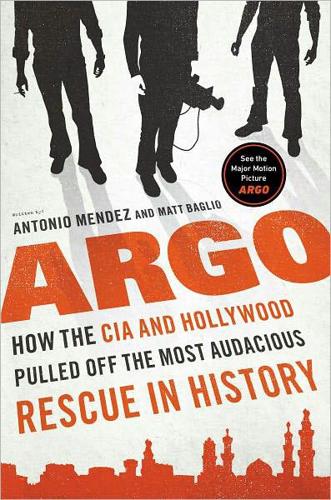
Argo: How the CIA and Hollywood Pulled Off the Most Audacious Rescue in History
by Antonio J. Mendez and Matt Baglio · 14 Jun 2012 · 273pp · 86,821 words
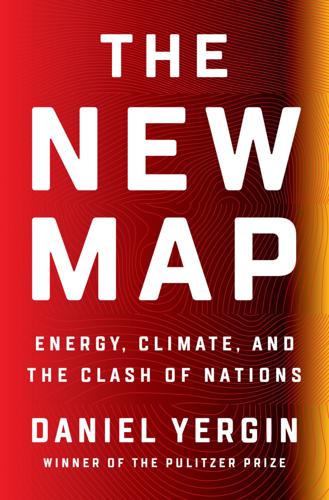
The New Map: Energy, Climate, and the Clash of Nations
by Daniel Yergin · 14 Sep 2020
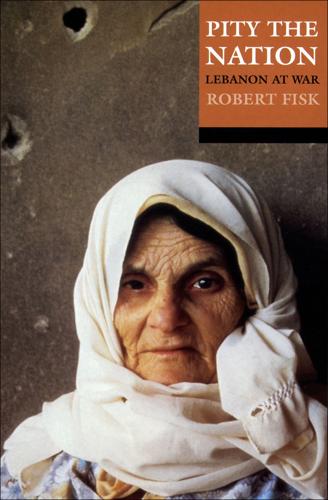
Pity the Nation: Lebanon at War
by Robert Fisk · 1 Jan 1990 · 1,208pp · 364,966 words
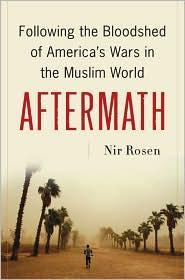
Aftermath: Following the Bloodshed of America's Wars in the Muslim World
by Nir Rosen · 21 Apr 2011 · 1,016pp · 283,960 words
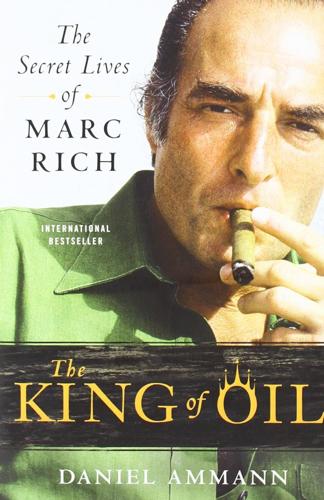
The King of Oil: The Secret Lives of Marc Rich
by Daniel Ammann · 12 Oct 2009 · 479pp · 102,876 words
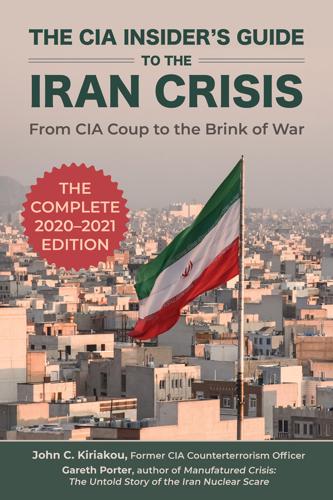
The CIA Insider's Guide to the Iran Crisis
by Gareth Porter · 21 Jan 2020 · 179pp · 51,499 words
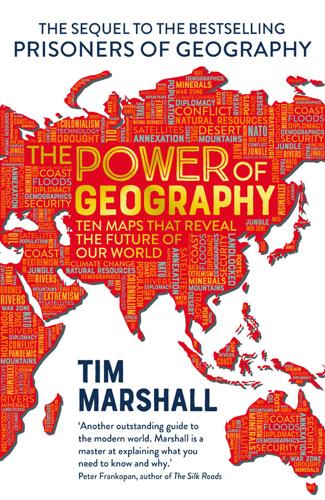
The Power of Geography: Ten Maps That Reveal the Future of Our World
by Tim Marshall · 14 Oct 2021 · 383pp · 105,387 words
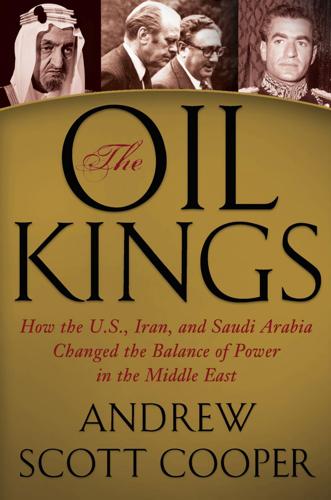
The Oil Kings: How the U.S., Iran, and Saudi Arabia Changed the Balance of Power in the Middle East
by Andrew Scott Cooper · 8 Aug 2011
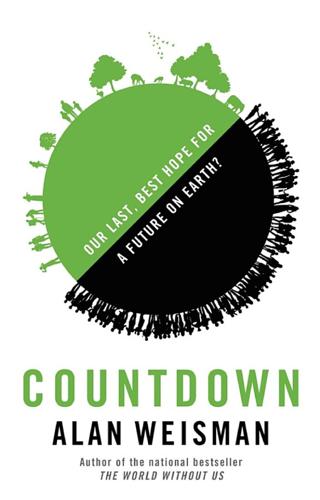
Countdown: Our Last, Best Hope for a Future on Earth?
by Alan Weisman · 23 Sep 2013 · 579pp · 164,339 words
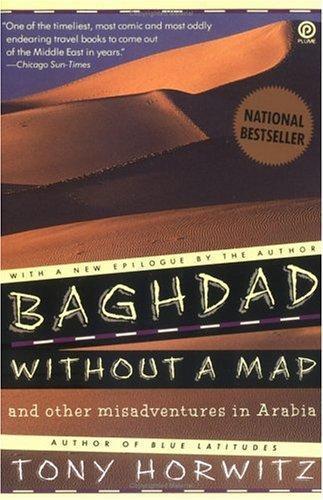
Baghdad Without a Map and Other Misadventures in Arabia
by Tony Horwitz · 1 Jan 1991 · 302pp · 91,517 words
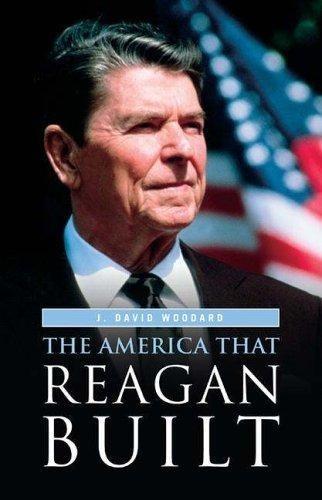
The America That Reagan Built
by J. David Woodard · 15 Mar 2006
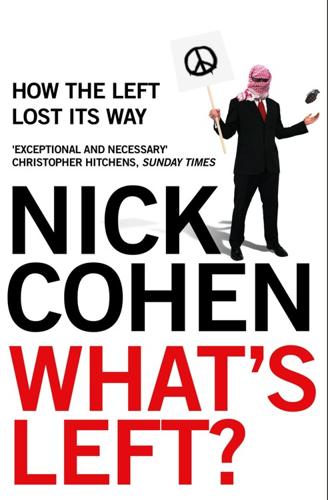
What's Left?: How Liberals Lost Their Way
by Nick Cohen · 15 Jul 2015 · 414pp · 121,243 words
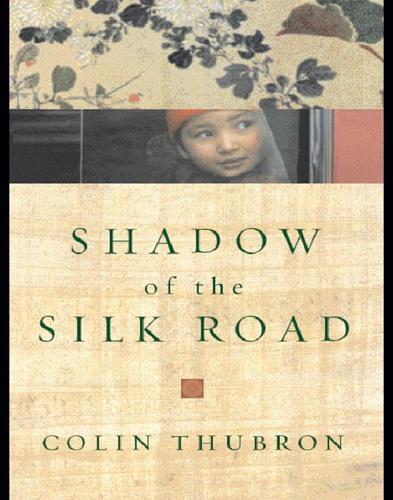
Shadow of the Silk Road
by Colin Thubron · 1 Jan 2006 · 419pp · 124,522 words
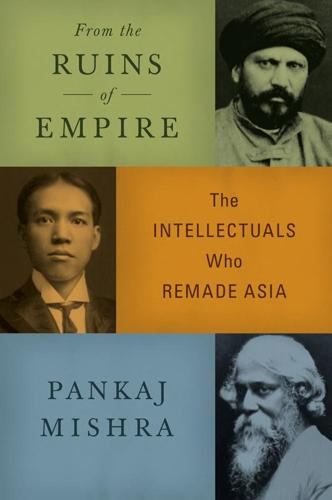
From the Ruins of Empire: The Intellectuals Who Remade Asia
by Pankaj Mishra · 3 Sep 2012
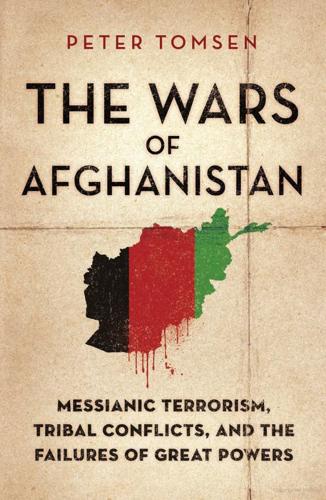
The Wars of Afghanistan
by Peter Tomsen · 30 May 2011 · 1,118pp · 309,029 words
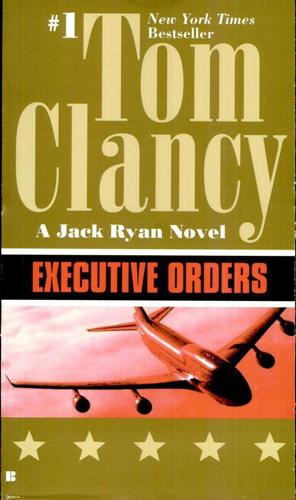
Executive Orders
by Tom Clancy · 2 Jan 1996
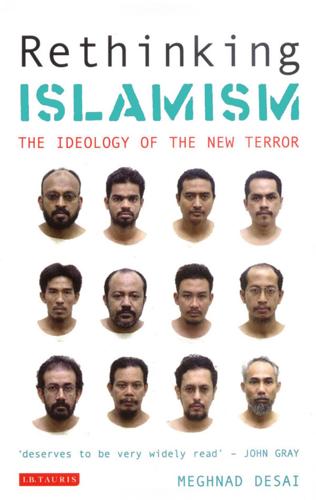
Rethinking Islamism: The Ideology of the New Terror
by Meghnad Desai · 25 Apr 2008
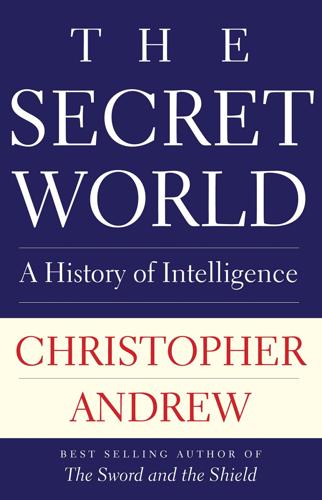
The Secret World: A History of Intelligence
by Christopher Andrew · 27 Jun 2018
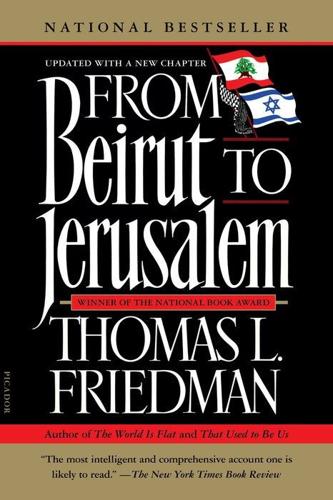
From Beirut to Jerusalem
by Thomas L. Friedman · 1 Jan 1989 · 639pp · 212,079 words
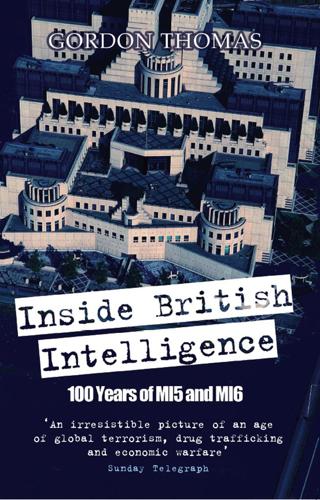
Inside British Intelligence
by Gordon Thomas
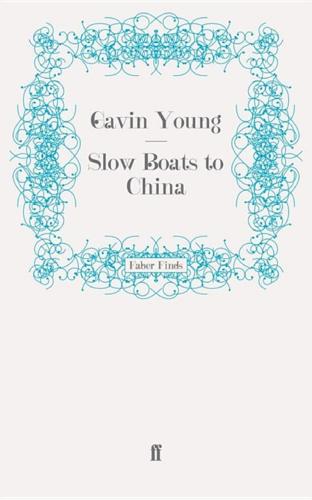
Slow Boats to China
by Gavin Young · 24 Feb 1983 · 586pp · 184,480 words
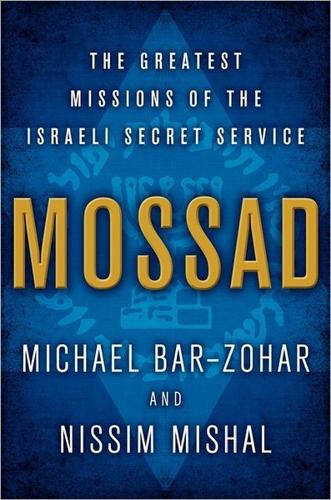
Mossad: The Greatest Missions of the Israeli Secret Service
by Michael Bar-Zohar and Nissim Mishal · 1 Jan 2010 · 427pp · 127,496 words
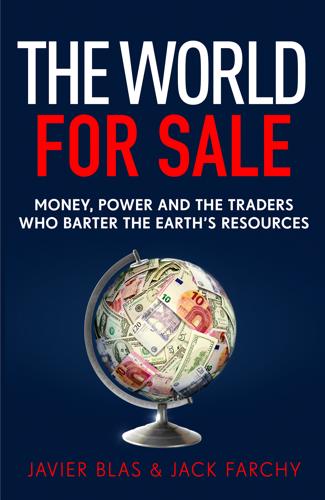
The World for Sale: Money, Power and the Traders Who Barter the Earth’s Resources
by Javier Blas and Jack Farchy · 25 Feb 2021 · 565pp · 134,138 words
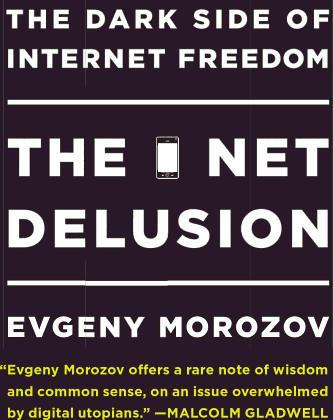
The Net Delusion: The Dark Side of Internet Freedom
by Evgeny Morozov · 16 Nov 2010 · 538pp · 141,822 words
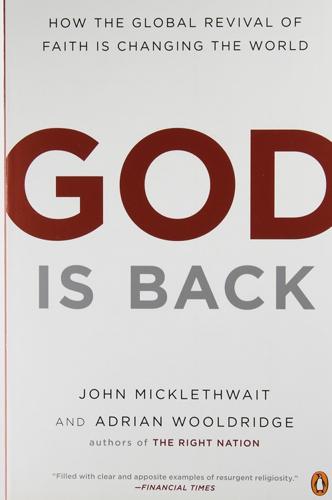
God Is Back: How the Global Revival of Faith Is Changing the World
by John Micklethwait and Adrian Wooldridge · 31 Mar 2009 · 518pp · 143,914 words
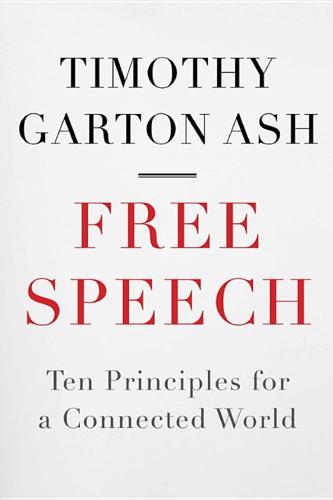
Free Speech: Ten Principles for a Connected World
by Timothy Garton Ash · 23 May 2016 · 743pp · 201,651 words
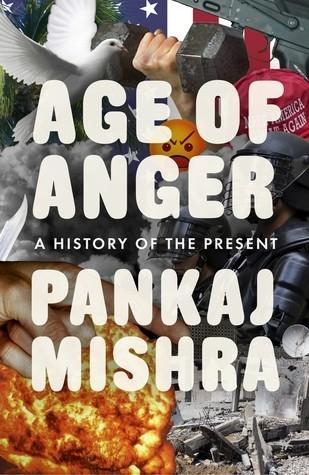
Age of Anger: A History of the Present
by Pankaj Mishra · 26 Jan 2017 · 410pp · 106,931 words
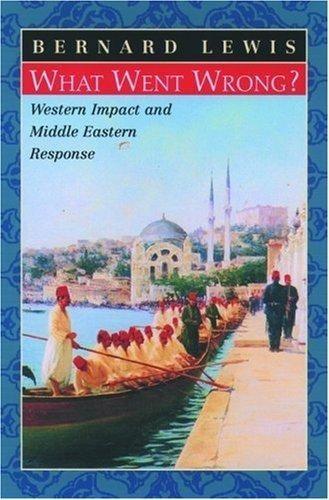
What Went Wrong? Western Impact and Middle Eastern Response
by Bernard Lewis · 1 Jan 2001
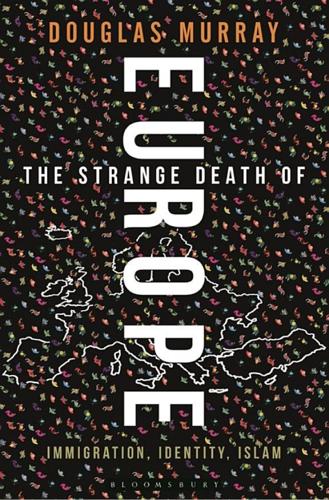
The Strange Death of Europe: Immigration, Identity, Islam
by Douglas Murray · 3 May 2017 · 420pp · 126,194 words
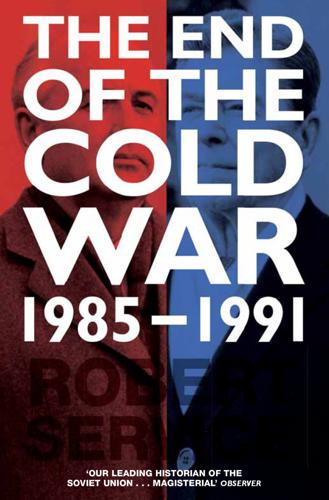
The End of the Cold War: 1985-1991
by Robert Service · 7 Oct 2015
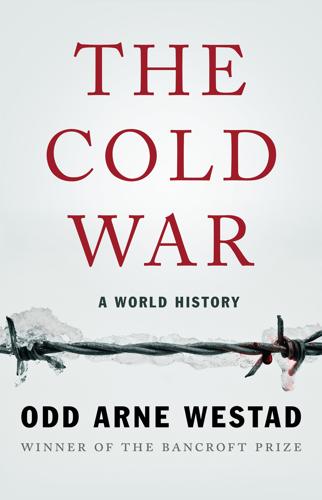
The Cold War: A World History
by Odd Arne Westad · 4 Sep 2017 · 846pp · 250,145 words
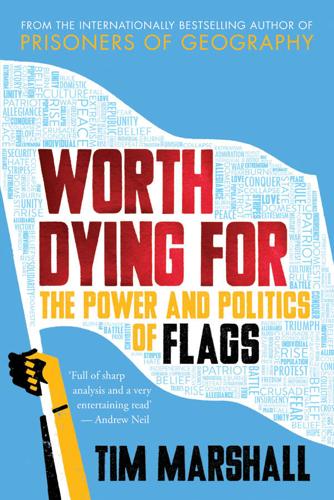
Worth Dying For: The Power and Politics of Flags
by Tim Marshall · 21 Sep 2016 · 276pp · 78,061 words
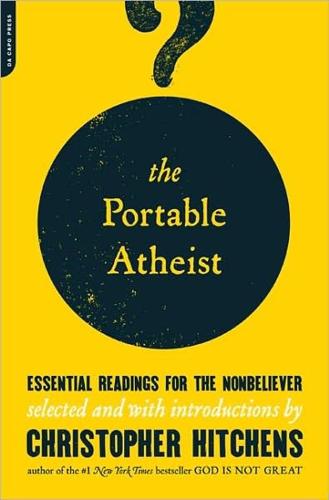
The Portable Atheist: Essential Readings for the Nonbeliever
by Christopher Hitchens · 14 Jun 2007 · 740pp · 236,681 words

No Such Thing as Society
by Andy McSmith · 19 Nov 2010 · 613pp · 151,140 words
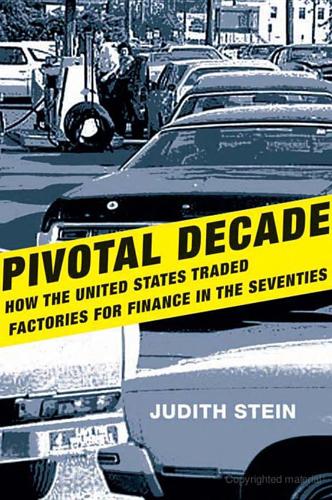
Pivotal Decade: How the United States Traded Factories for Finance in the Seventies
by Judith Stein · 30 Apr 2010 · 497pp · 143,175 words
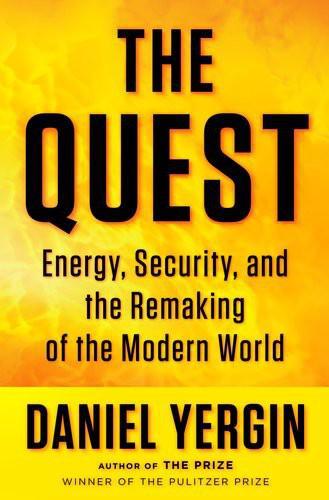
The Quest: Energy, Security, and the Remaking of the Modern World
by Daniel Yergin · 14 May 2011 · 1,373pp · 300,577 words
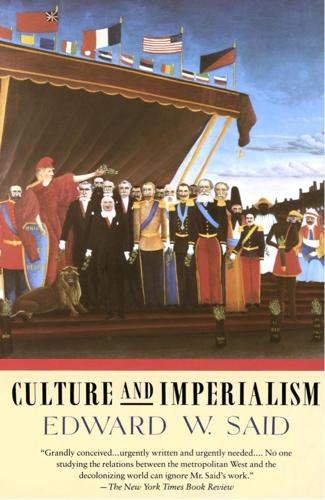
Culture and Imperialism
by Edward W. Said · 29 May 1994 · 549pp · 170,495 words
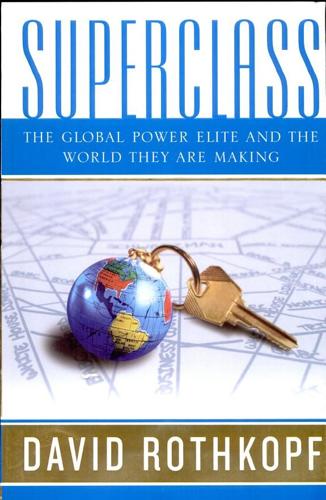
Superclass: The Global Power Elite and the World They Are Making
by David Rothkopf · 18 Mar 2008 · 535pp · 158,863 words
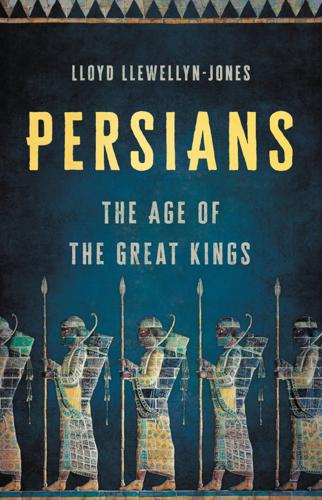
Persians: The Age of the Great Kings
by Lloyd Llewellyn-Jones · 15 Mar 2022 · 444pp · 143,843 words
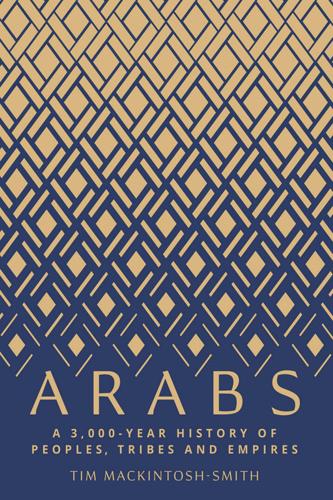
Arabs: A 3,000 Year History of Peoples, Tribes and Empires
by Tim Mackintosh-Smith · 2 Mar 2019
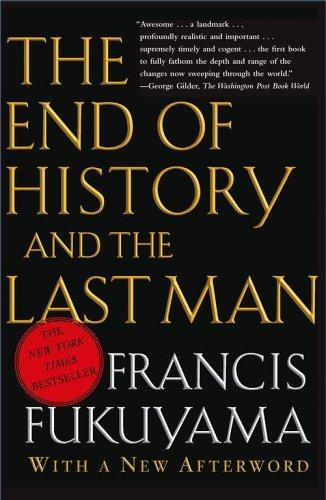
The end of history and the last man
by Francis Fukuyama · 28 Feb 2006 · 446pp · 578 words
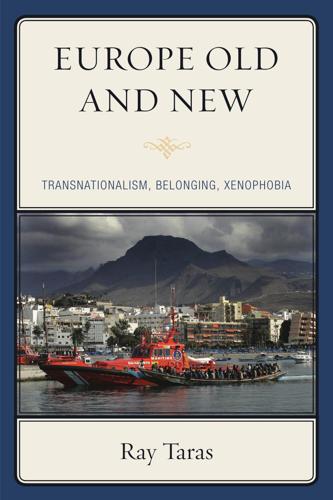
Europe old and new: transnationalism, belonging, xenophobia
by Ray Taras · 15 Dec 2009 · 267pp · 106,340 words
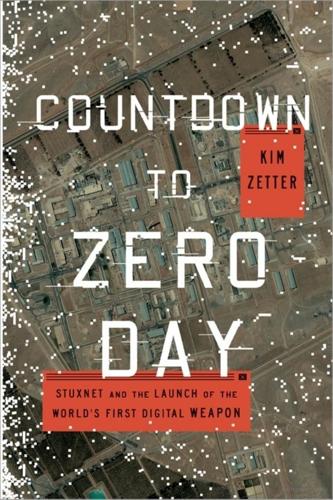
Countdown to Zero Day: Stuxnet and the Launch of the World's First Digital Weapon
by Kim Zetter · 11 Nov 2014 · 492pp · 153,565 words
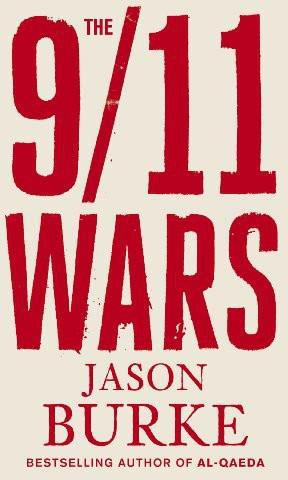
The 9/11 Wars
by Jason Burke · 1 Sep 2011 · 885pp · 271,563 words
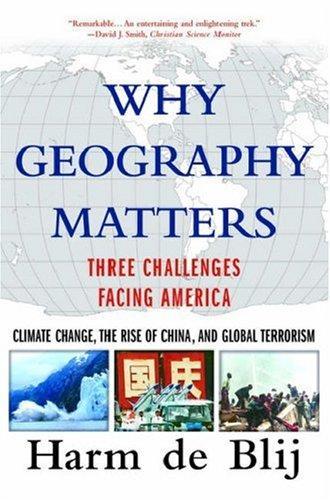
Why geography matters: three challenges facing America : climate change, the rise of China, and global terrorism
by Harm J. De Blij · 15 Nov 2007 · 481pp · 121,300 words
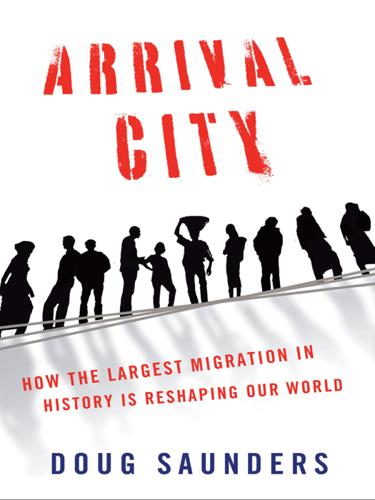
Arrival City
by Doug Saunders · 22 Mar 2011 · 366pp · 117,875 words
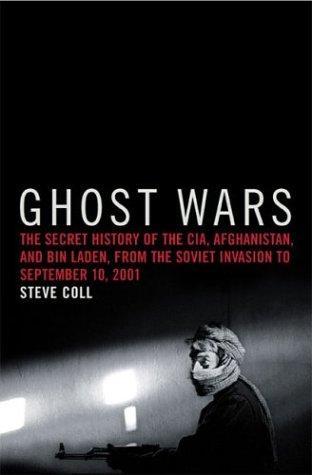
Ghost Wars: The Secret History of the CIA, Afghanistan, and Bin Laden, from the Soviet Invasion to September 10, 2011
by Steve Coll · 23 Feb 2004 · 956pp · 288,981 words
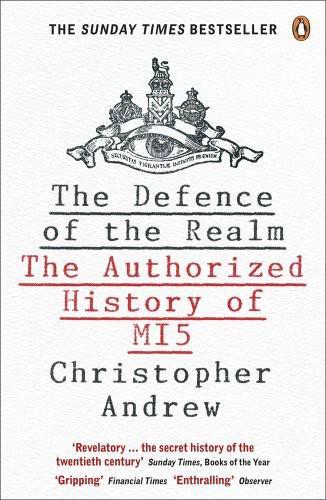
The Defence of the Realm
by Christopher Andrew · 2 Aug 2010 · 1,744pp · 458,385 words
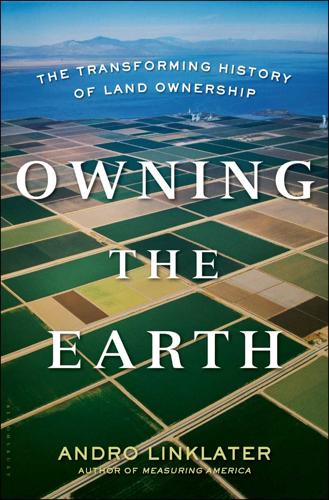
Owning the Earth: The Transforming History of Land Ownership
by Andro Linklater · 12 Nov 2013 · 603pp · 182,826 words
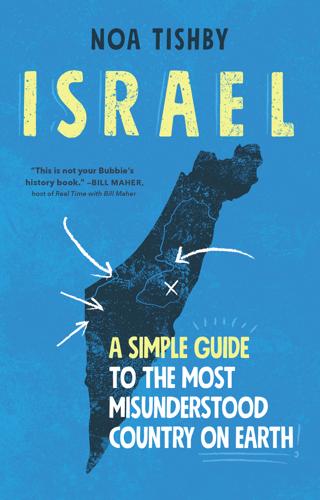
Israel: A Simple Guide to the Most Misunderstood Country on Earth
by Noa Tishby · 5 Apr 2021 · 338pp · 101,967 words
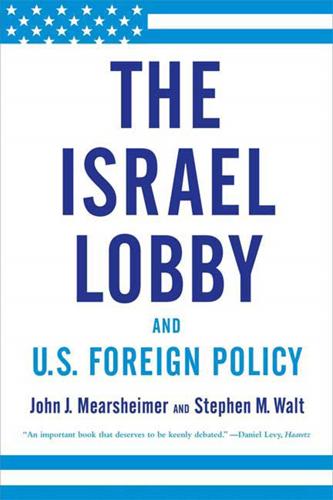
The Israel Lobby and U.S. Foreign Policy
by John J. Mearsheimer and Stephen M. Walt · 3 Sep 2007 · 801pp · 229,742 words
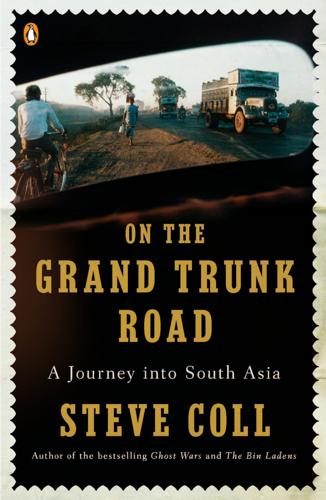
On the Grand Trunk Road: A Journey Into South Asia
by Steve Coll · 29 Mar 2009 · 413pp · 128,093 words
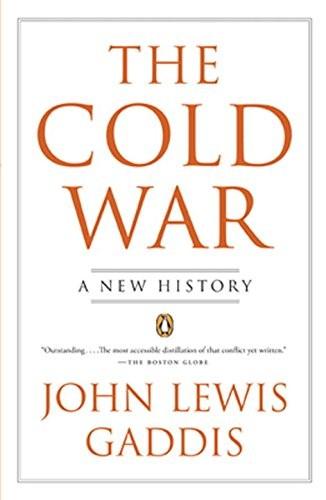
The Cold War: A New History
by John Lewis Gaddis · 1 Jan 2005 · 392pp · 106,532 words
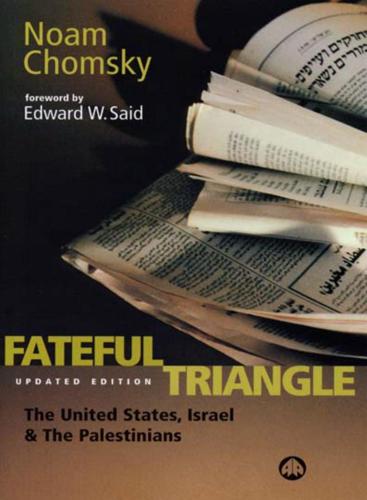
Fateful Triangle: The United States, Israel, and the Palestinians (Updated Edition) (South End Press Classics Series)
by Noam Chomsky · 1 Apr 1999

Pumpkinflowers: A Soldier's Story of a Forgotten War
by Matti Friedman · 2 May 2016 · 183pp · 59,209 words
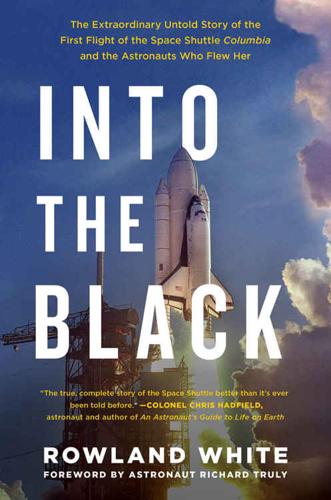
Into the Black: The Extraordinary Untold Story of the First Flight of the Space Shuttle Columbia and the Astronauts Who Flew Her
by Rowland White and Richard Truly · 18 Apr 2016 · 570pp · 151,609 words
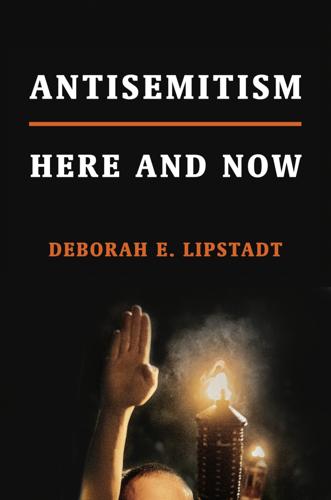
Antisemitism: Here and Now
by Deborah E. Lipstadt · 29 Jan 2019 · 276pp · 71,950 words
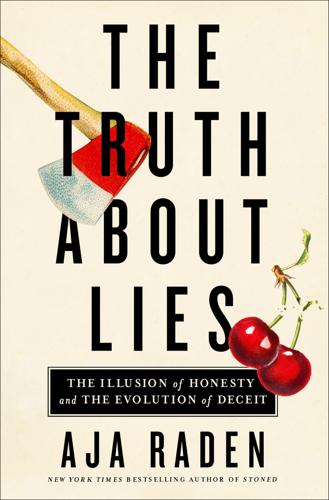
The Truth About Lies: The Illusion of Honesty and the Evolution of Deceit
by Aja Raden · 10 May 2021 · 291pp · 85,822 words
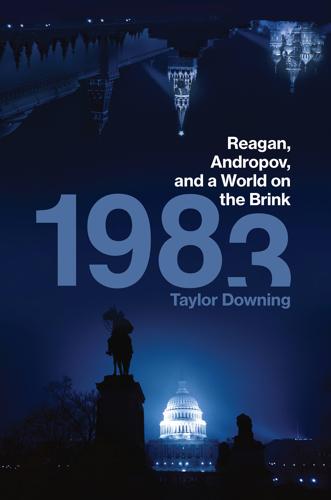
1983: Reagan, Andropov, and a World on the Brink
by Taylor Downing · 23 Apr 2018 · 400pp · 121,708 words
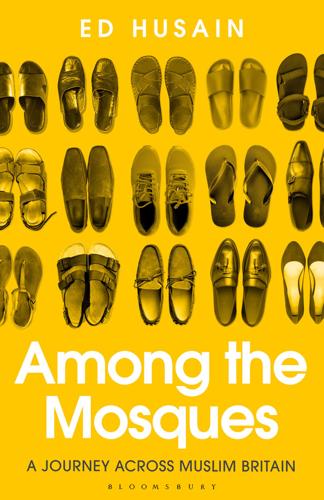
Among the Mosques: A Journey Across Muslim Britain
by Ed Husain · 9 Jun 2021 · 404pp · 110,290 words
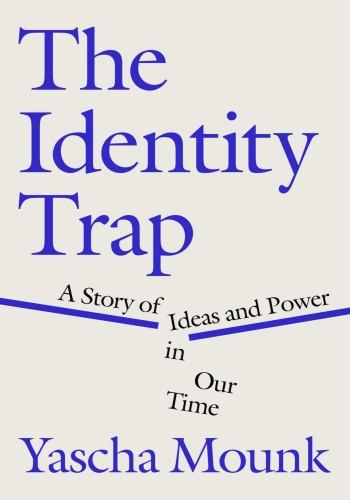
The Identity Trap: A Story of Ideas and Power in Our Time
by Yascha Mounk · 26 Sep 2023
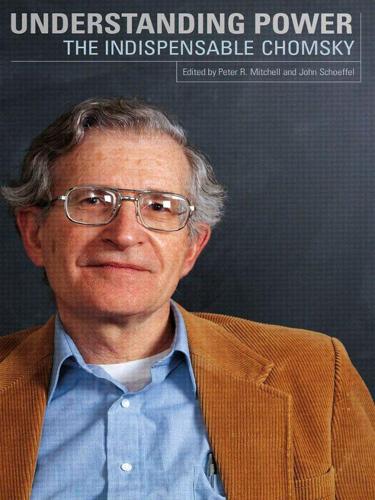
Understanding Power
by Noam Chomsky · 26 Jul 2010
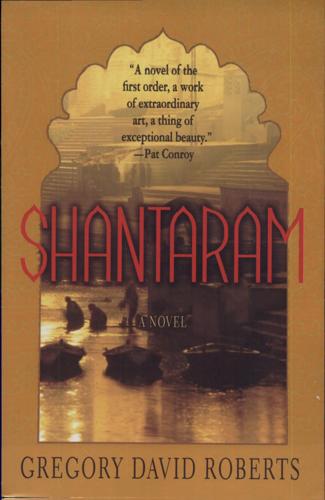
Shantaram: A Novel
by Gregory David Roberts · 12 Oct 2004 · 1,222pp · 385,226 words
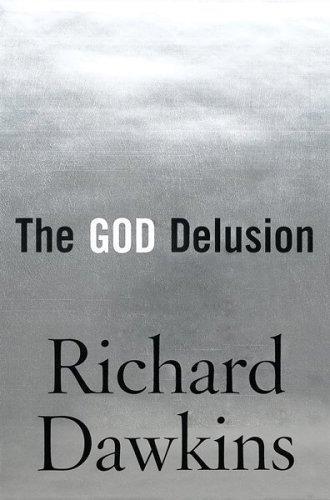
The God Delusion
by Richard Dawkins · 12 Sep 2006 · 478pp · 142,608 words
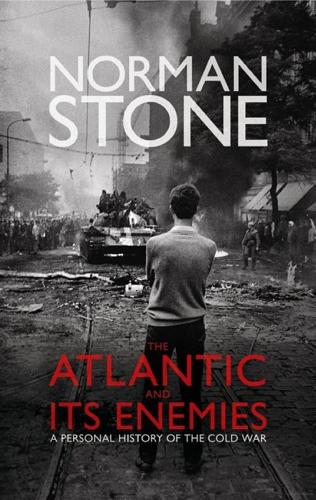
The Atlantic and Its Enemies: A History of the Cold War
by Norman Stone · 15 Feb 2010 · 851pp · 247,711 words
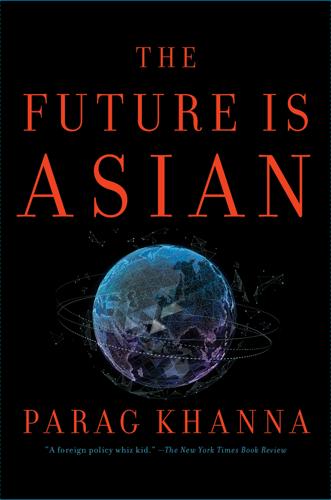
The Future Is Asian
by Parag Khanna · 5 Feb 2019 · 496pp · 131,938 words
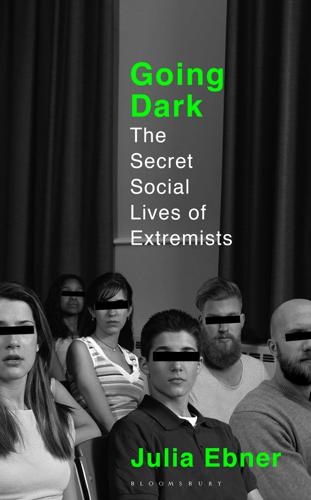
Going Dark: The Secret Social Lives of Extremists
by Julia Ebner · 20 Feb 2020 · 309pp · 79,414 words
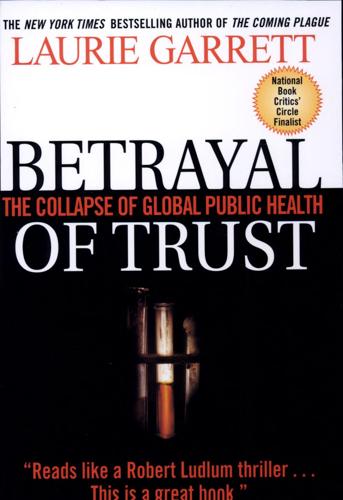
Betrayal of Trust: The Collapse of Global Public Health
by Laurie Garrett · 15 Feb 2000

Jerusalem: The Biography
by Simon Sebag-Montefiore · 27 Jan 2011 · 1,364pp · 272,257 words
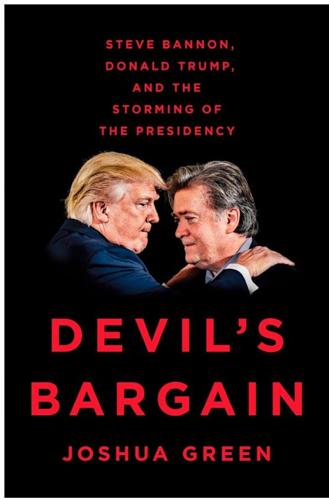
Devil's Bargain: Steve Bannon, Donald Trump, and the Storming of the Presidency
by Joshua Green · 17 Jul 2017 · 296pp · 78,112 words
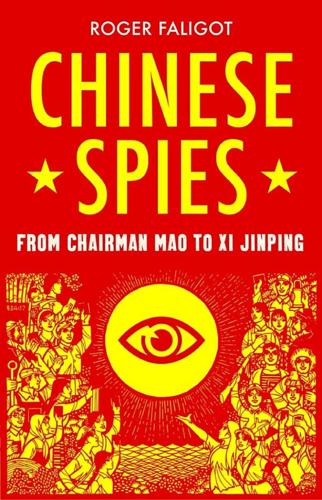
Chinese Spies: From Chairman Mao to Xi Jinping
by Roger Faligot · 30 Jun 2019 · 615pp · 187,426 words
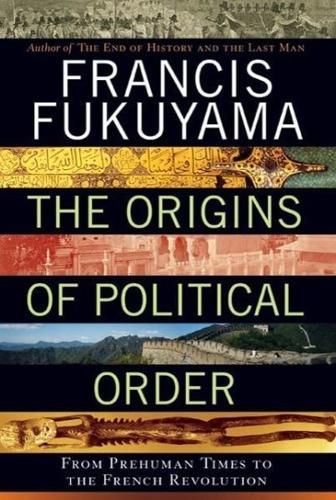
The Origins of Political Order: From Prehuman Times to the French Revolution
by Francis Fukuyama · 11 Apr 2011 · 740pp · 217,139 words
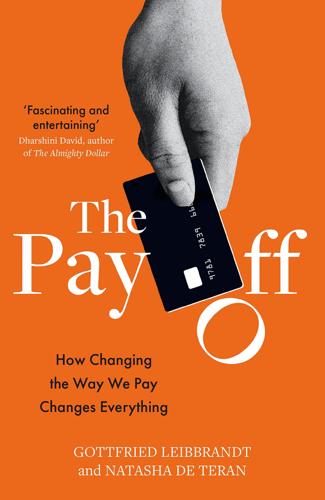
The Pay Off: How Changing the Way We Pay Changes Everything
by Gottfried Leibbrandt and Natasha de Teran · 14 Jul 2021 · 326pp · 91,532 words
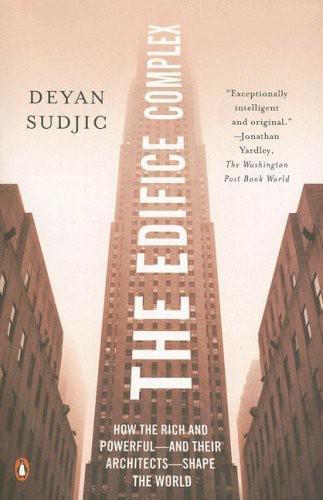
The Edifice Complex: How the Rich and Powerful--And Their Architects--Shape the World
by Deyan Sudjic · 27 Nov 2006 · 441pp · 135,176 words
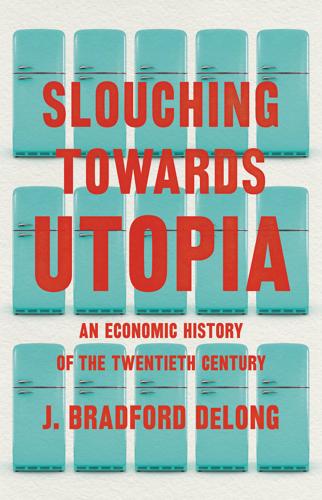
Slouching Towards Utopia: An Economic History of the Twentieth Century
by J. Bradford Delong · 6 Apr 2020 · 593pp · 183,240 words
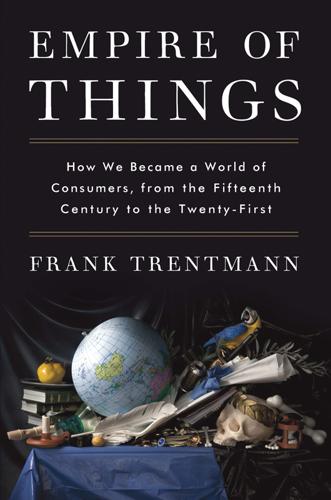
Empire of Things: How We Became a World of Consumers, From the Fifteenth Century to the Twenty-First
by Frank Trentmann · 1 Dec 2015 · 1,213pp · 376,284 words
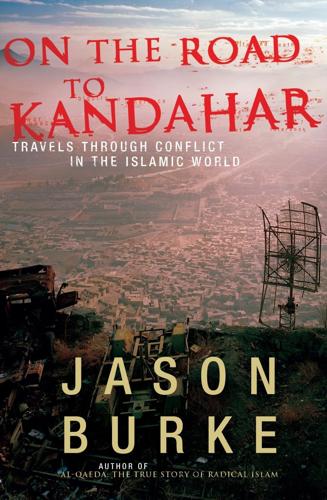
On the Road to Kandahar: Travels Through Conflict in the Islamic World
by Jason Burke · 21 May 2025 · 323pp · 108,377 words
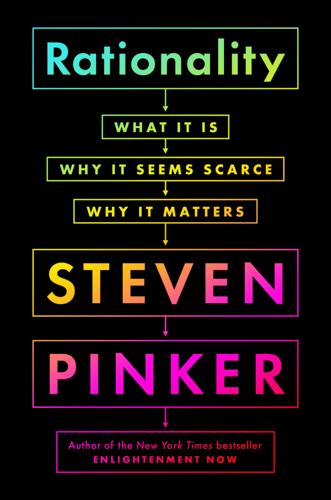
Rationality: What It Is, Why It Seems Scarce, Why It Matters
by Steven Pinker · 14 Oct 2021 · 533pp · 125,495 words

Roller-Coaster: Europe, 1950-2017
by Ian Kershaw · 29 Aug 2018 · 736pp · 233,366 words
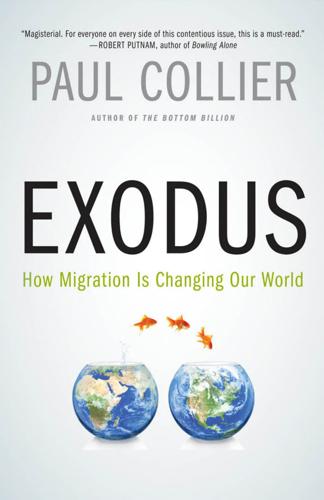
Exodus: How Migration Is Changing Our World
by Paul Collier · 30 Sep 2013 · 303pp · 83,564 words
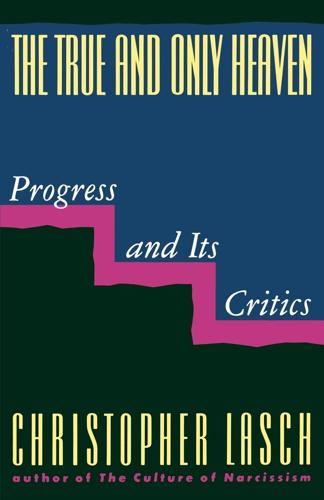
The True and Only Heaven: Progress and Its Critics
by Christopher Lasch · 16 Sep 1991 · 669pp · 226,737 words
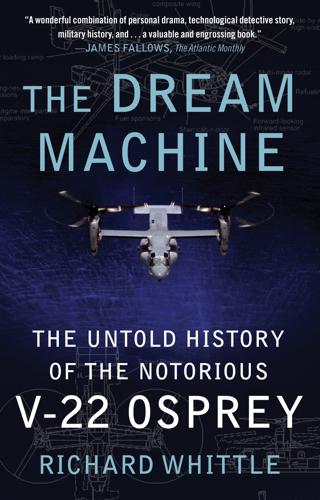
The Dream Machine: The Untold History of the Notorious V-22 Osprey
by Richard Whittle · 26 Apr 2010 · 616pp · 189,609 words
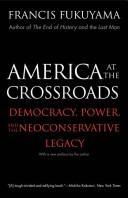
America at the Crossroads: Democracy, Power, and the Neoconservative Legacy
by Francis Fukuyama · 20 Mar 2007 · 214pp · 57,614 words
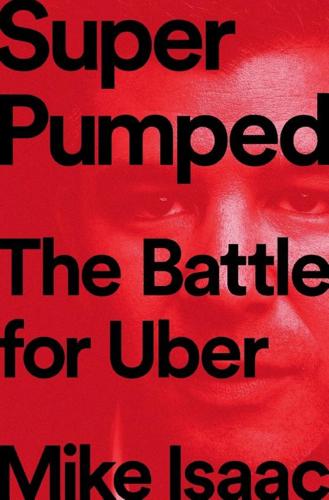
Super Pumped: The Battle for Uber
by Mike Isaac · 2 Sep 2019 · 444pp · 127,259 words
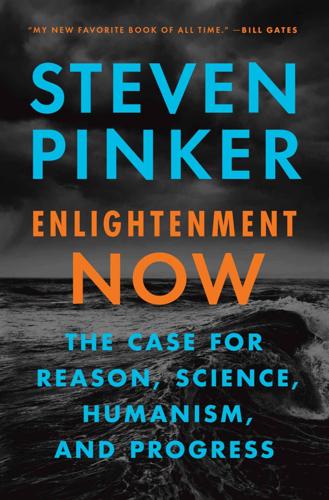
Enlightenment Now: The Case for Reason, Science, Humanism, and Progress
by Steven Pinker · 13 Feb 2018 · 1,034pp · 241,773 words
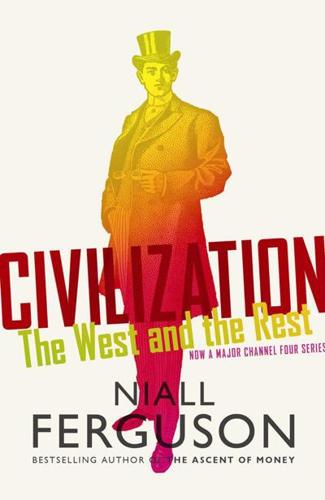
Civilization: The West and the Rest
by Niall Ferguson · 28 Feb 2011 · 790pp · 150,875 words
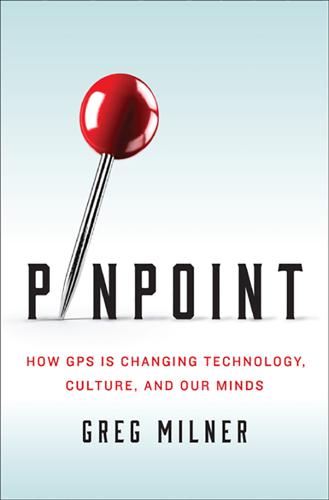
Pinpoint: How GPS Is Changing Our World
by Greg Milner · 4 May 2016 · 385pp · 103,561 words
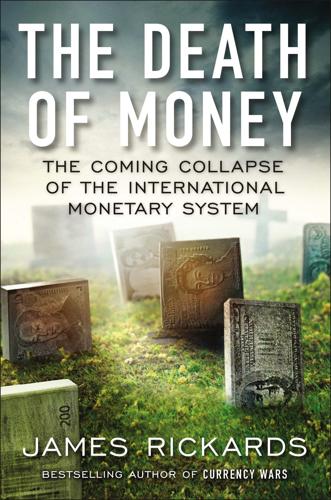
The Death of Money: The Coming Collapse of the International Monetary System
by James Rickards · 7 Apr 2014 · 466pp · 127,728 words
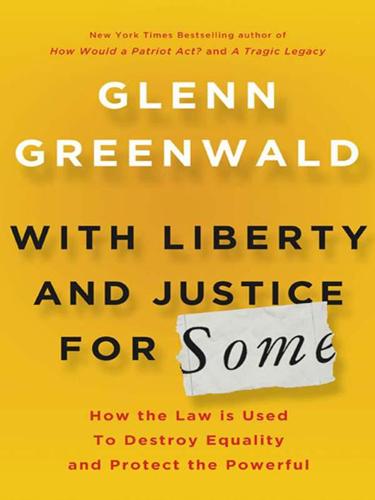
With Liberty and Justice for Some: How the Law Is Used to Destroy Equality and Protect the Powerful
by Glenn Greenwald · 11 Nov 2011 · 283pp · 77,272 words
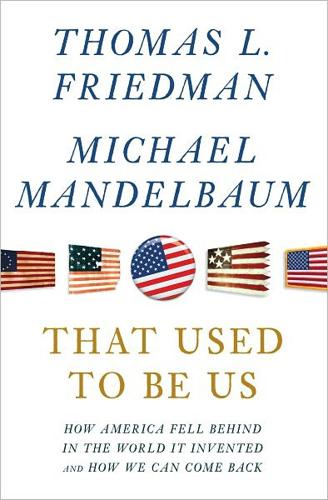
That Used to Be Us
by Thomas L. Friedman and Michael Mandelbaum · 1 Sep 2011 · 441pp · 136,954 words
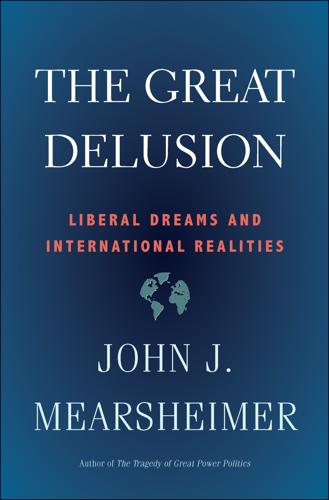
The Great Delusion: Liberal Dreams and International Realities
by John J. Mearsheimer · 24 Sep 2018 · 443pp · 125,510 words
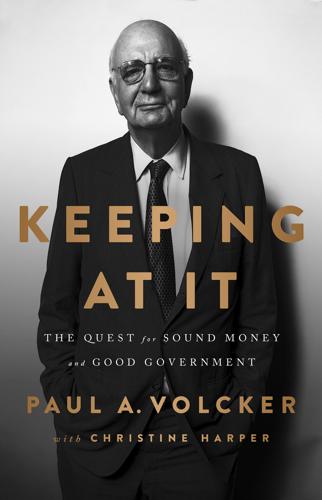
Keeping at It: The Quest for Sound Money and Good Government
by Paul Volcker and Christine Harper · 30 Oct 2018 · 363pp · 98,024 words
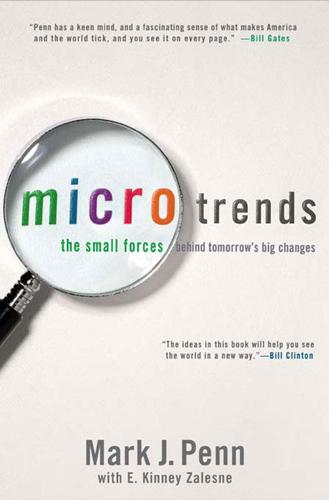
Microtrends: The Small Forces Behind Tomorrow's Big Changes
by Mark Penn and E. Kinney Zalesne · 5 Sep 2007 · 458pp · 134,028 words
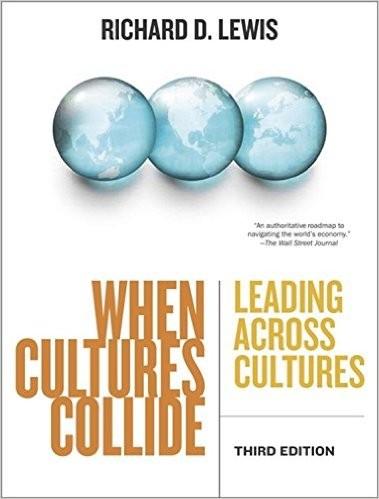
When Cultures Collide: Leading Across Cultures
by Richard D. Lewis · 1 Jan 1996
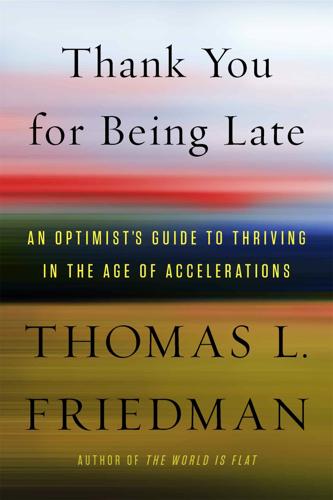
Thank You for Being Late: An Optimist's Guide to Thriving in the Age of Accelerations
by Thomas L. Friedman · 22 Nov 2016 · 602pp · 177,874 words
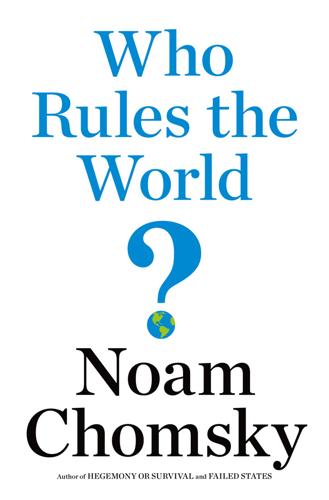
Who Rules the World?
by Noam Chomsky
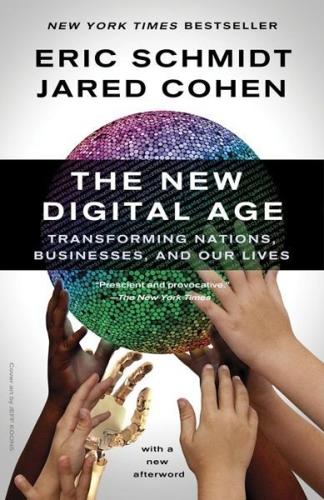
The New Digital Age: Transforming Nations, Businesses, and Our Lives
by Eric Schmidt and Jared Cohen · 22 Apr 2013 · 525pp · 116,295 words
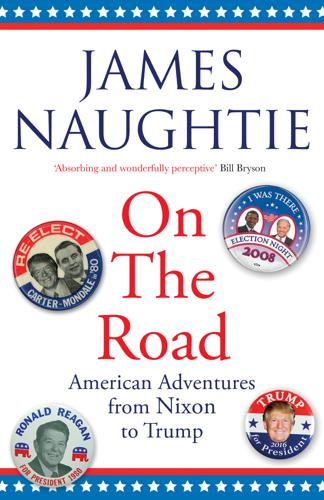
On the Road: Adventures From Nixon to Trump
by James Naughtie · 1 Apr 2020
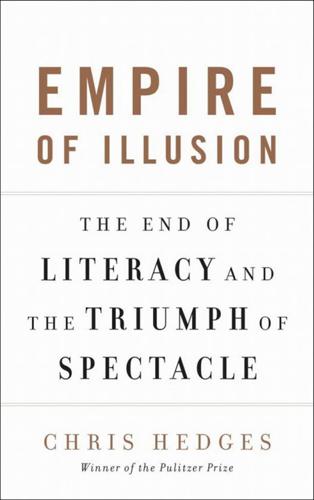
Empire of Illusion: The End of Literacy and the Triumph of Spectacle
by Chris Hedges · 12 Jul 2009 · 373pp · 80,248 words
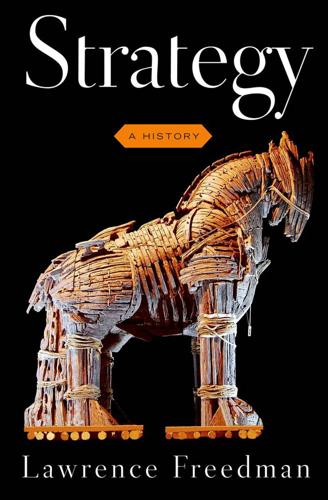
Strategy: A History
by Lawrence Freedman · 31 Oct 2013 · 1,073pp · 314,528 words
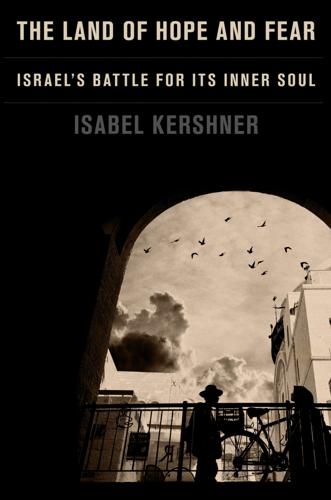
The Land of Hope and Fear: Israel's Battle for Its Inner Soul
by Isabel Kershner · 16 May 2023 · 472pp · 145,476 words
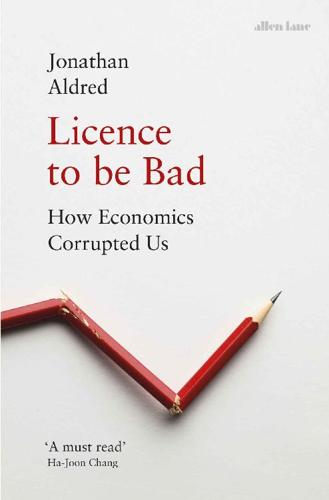
Licence to be Bad
by Jonathan Aldred · 5 Jun 2019 · 453pp · 111,010 words
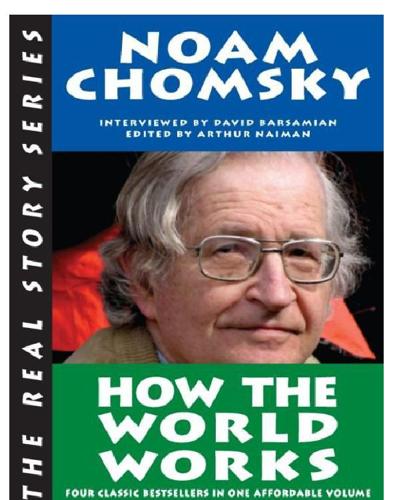
How the World Works
by Noam Chomsky, Arthur Naiman and David Barsamian · 13 Sep 2011 · 489pp · 111,305 words
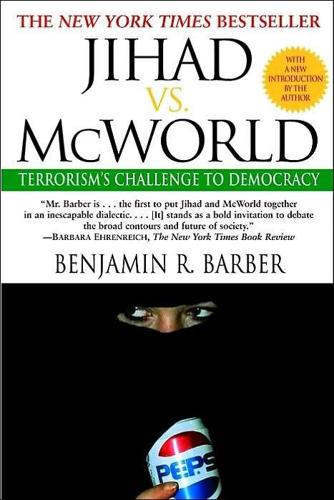
Jihad vs. McWorld: Terrorism's Challenge to Democracy
by Benjamin Barber · 20 Apr 2010 · 454pp · 139,350 words
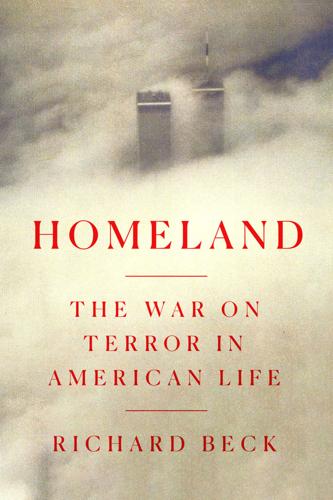
Homeland: The War on Terror in American Life
by Richard Beck · 2 Sep 2024 · 715pp · 212,449 words
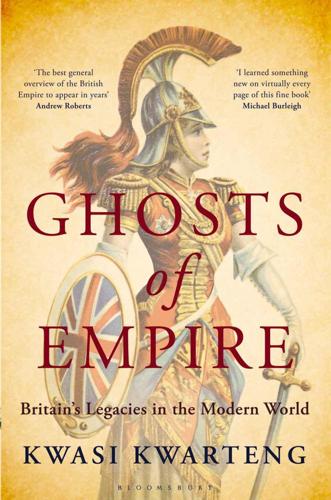
Ghosts of Empire: Britain's Legacies in the Modern World
by Kwasi Kwarteng · 14 Aug 2011 · 670pp · 169,815 words
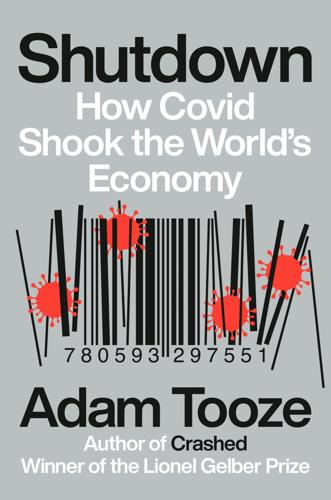
Shutdown: How COVID Shook the World's Economy
by Adam Tooze · 15 Nov 2021 · 561pp · 138,158 words
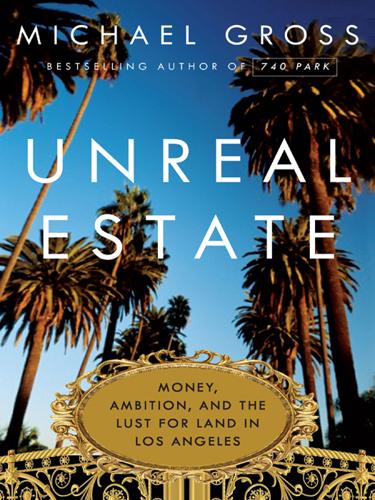
Unreal Estate: Money, Ambition, and the Lust for Land in Los Angeles
by Michael Gross · 1 Nov 2011 · 613pp · 200,826 words
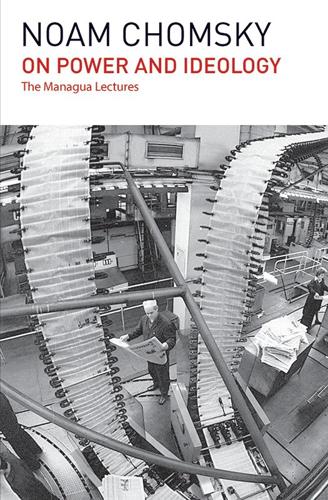
On Power and Ideology
by Noam Chomsky · 7 Jul 2015
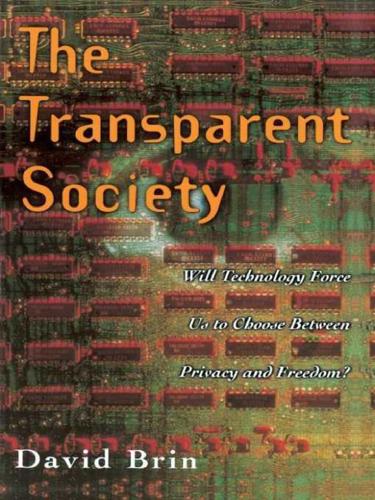
The Transparent Society: Will Technology Force Us to Choose Between Privacy and Freedom?
by David Brin · 1 Jan 1998 · 205pp · 18,208 words
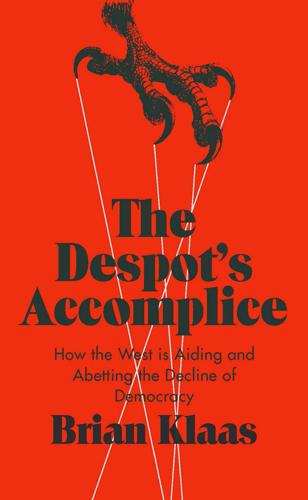
The Despot's Accomplice: How the West Is Aiding and Abetting the Decline of Democracy
by Brian Klaas · 15 Mar 2017
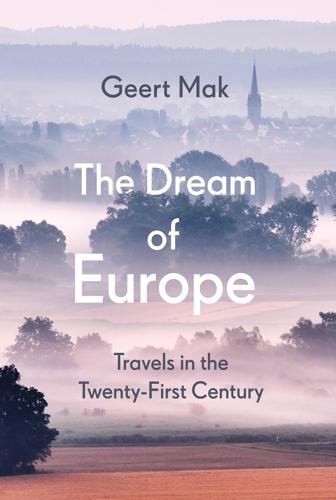
The Dream of Europe: Travels in the Twenty-First Century
by Geert Mak · 27 Oct 2021 · 722pp · 223,701 words
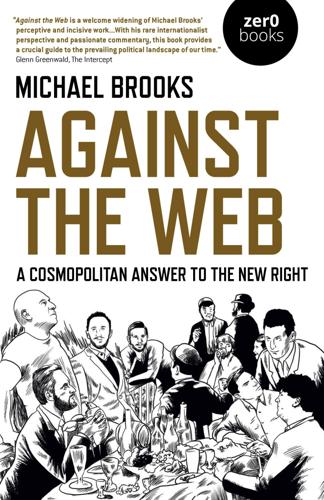
Against the Web: A Cosmopolitan Answer to the New Right
by Michael Brooks · 23 Apr 2020 · 88pp · 26,706 words
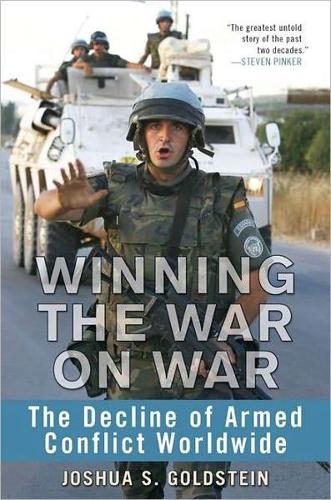
Winning the War on War: The Decline of Armed Conflict Worldwide
by Joshua S. Goldstein · 15 Sep 2011 · 511pp · 148,310 words
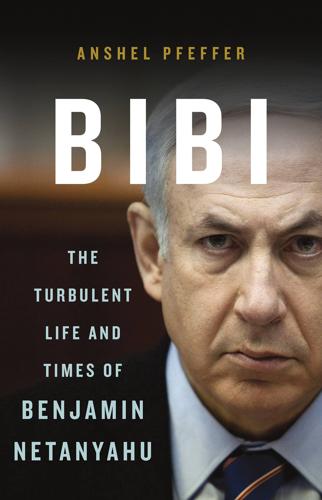
Bibi: The Turbulent Life and Times of Benjamin Netanyahu
by Anshel Pfeffer · 30 Apr 2018 · 530pp · 154,505 words
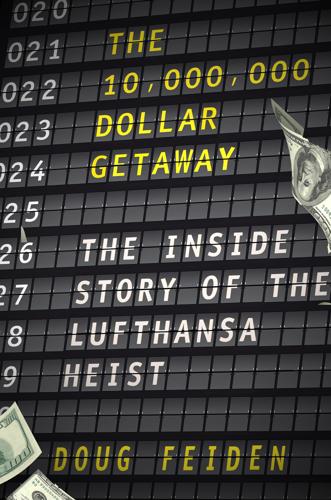
The Ten Million Dollar Getaway: The Inside Story of the Lufthansa Heist
by Doug Feiden · 1 Sep 2014 · 368pp · 120,794 words
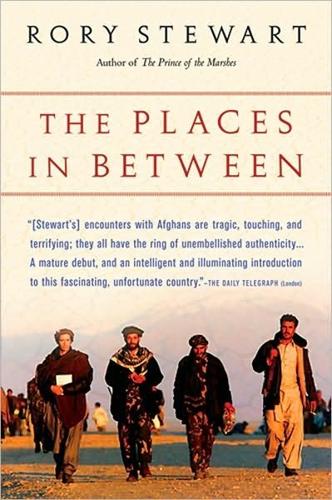
The Places in Between
by Rory Stewart · 1 Jan 2004 · 299pp · 89,342 words
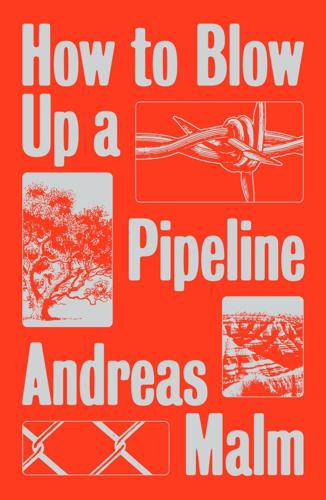
How to Blow Up a Pipeline
by Andreas Malm · 4 Jan 2021 · 156pp · 49,653 words
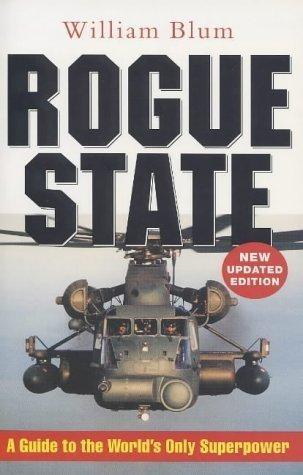
Rogue State: A Guide to the World's Only Superpower
by William Blum · 31 Mar 2002
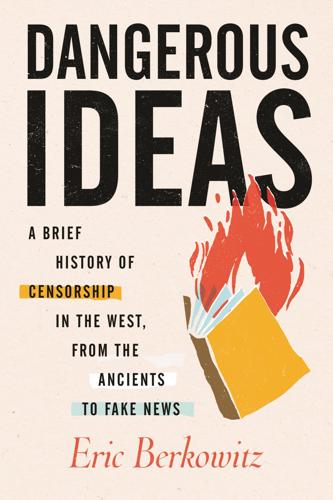
Dangerous Ideas: A Brief History of Censorship in the West, From the Ancients to Fake News
by Eric Berkowitz · 3 May 2021 · 412pp · 115,048 words

They Have a Word for It A Lighthearted Lexicon of Untranslatable Words & Phrases-Sarabande Books (2000)
by Howard Rheingold · 10 Mar 2020
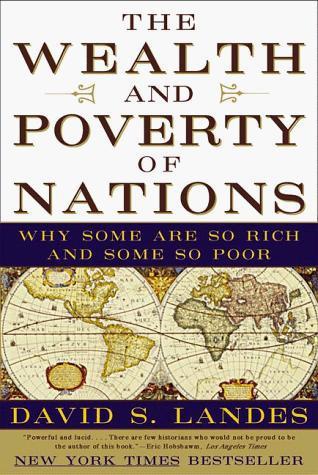
The Wealth and Poverty of Nations: Why Some Are So Rich and Some So Poor
by David S. Landes · 14 Sep 1999 · 1,060pp · 265,296 words
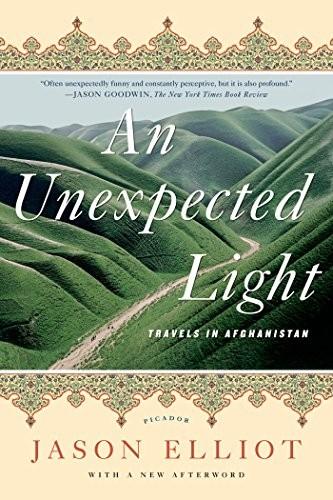
An Unexpected Light: Travels in Afghanistan
by Jason Elliot · 1 Aug 2011 · 535pp · 167,111 words
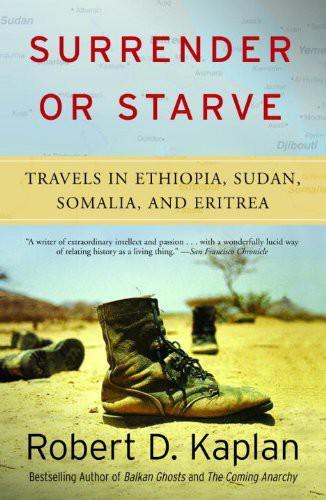
Surrender or Starve: Travels in Ethiopia, Sudan, Somalia, and Eritrea
by Robert D. Kaplan · 1 Jan 1988 · 233pp · 75,477 words
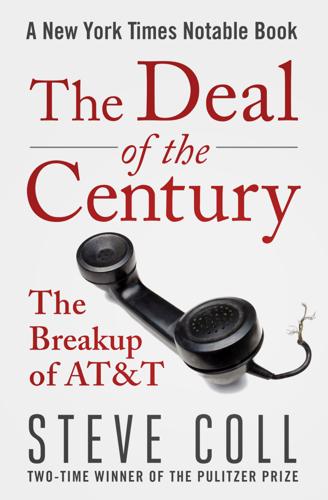
The Deal of the Century: The Breakup of AT&T
by Steve Coll · 12 Jun 2017 · 450pp · 134,152 words

Free Speech And Why It Matters
by Andrew Doyle · 24 Feb 2021 · 137pp · 35,041 words
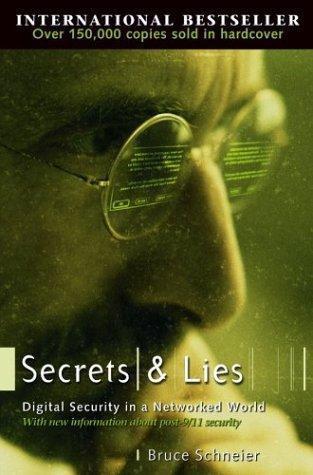
Secrets and Lies: Digital Security in a Networked World
by Bruce Schneier · 1 Jan 2000 · 470pp · 144,455 words
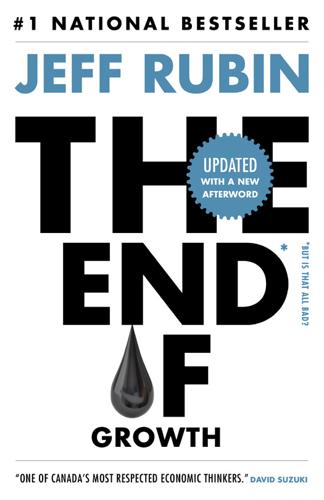
The End of Growth
by Jeff Rubin · 2 Sep 2013 · 262pp · 83,548 words
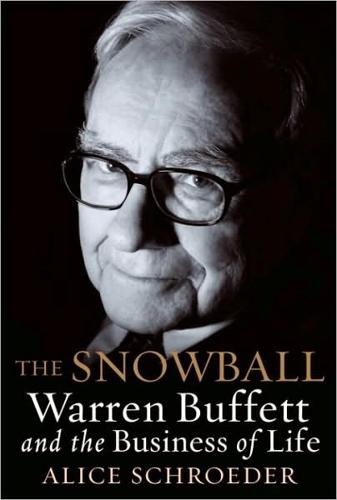
The Snowball: Warren Buffett and the Business of Life
by Alice Schroeder · 1 Sep 2008 · 1,336pp · 415,037 words
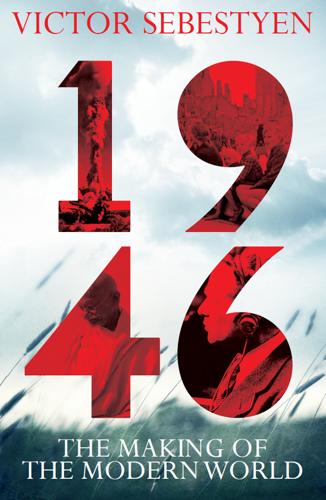
1946: The Making of the Modern World
by Victor Sebestyen · 30 Sep 2014 · 476pp · 144,288 words
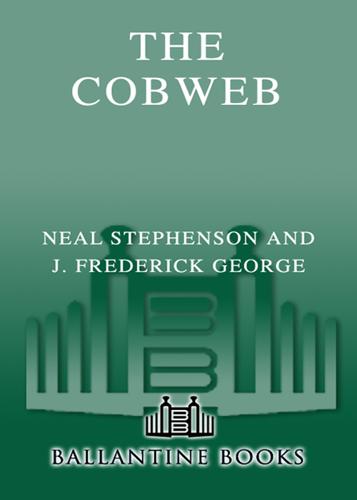
The Cobweb
by Neal Stephenson and J. Frederick George · 31 May 2005 · 514pp · 153,274 words
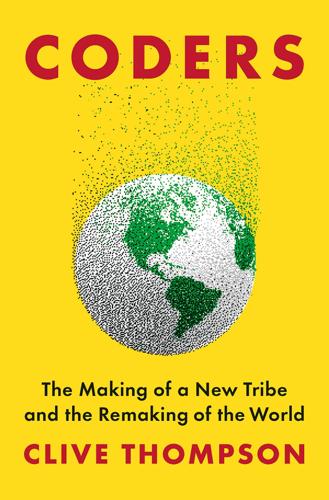
Coders: The Making of a New Tribe and the Remaking of the World
by Clive Thompson · 26 Mar 2019 · 499pp · 144,278 words
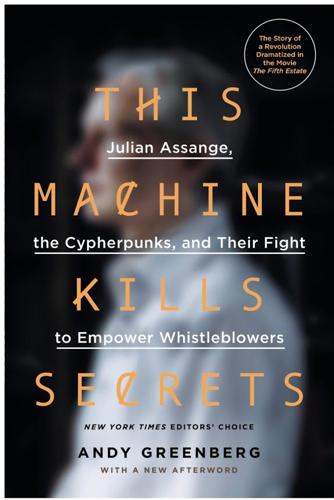
This Machine Kills Secrets: Julian Assange, the Cypherpunks, and Their Fight to Empower Whistleblowers
by Andy Greenberg · 12 Sep 2012 · 461pp · 125,845 words
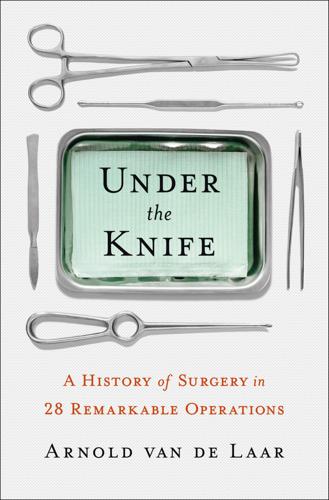
Under the Knife: A History of Surgery in 28 Remarkable Operations
by Arnold van de Laar Laproscopic Surgeon · 1 Oct 2018 · 371pp · 108,105 words
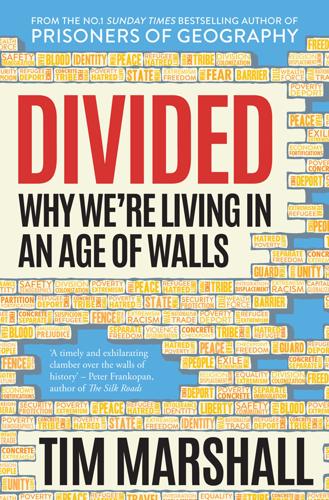
Divided: Why We're Living in an Age of Walls
by Tim Marshall · 8 Mar 2018 · 256pp · 75,139 words
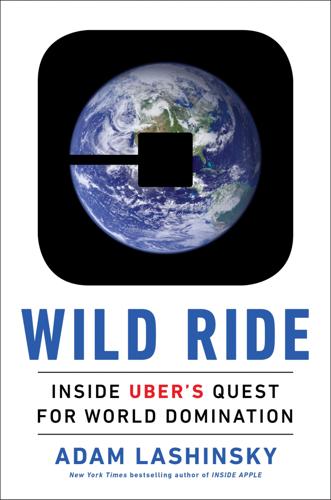
Wild Ride: Inside Uber's Quest for World Domination
by Adam Lashinsky · 31 Mar 2017 · 190pp · 62,941 words
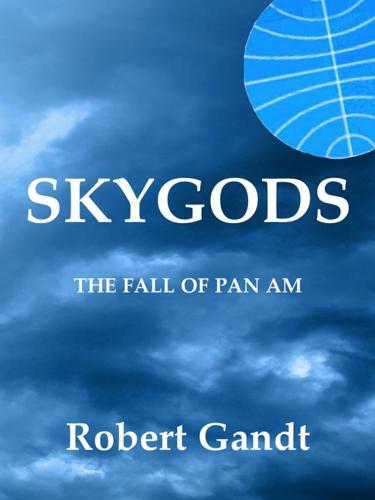
Skygods: The Fall of Pan Am
by Robert Gandt · 1 Mar 1995 · 371pp · 101,792 words
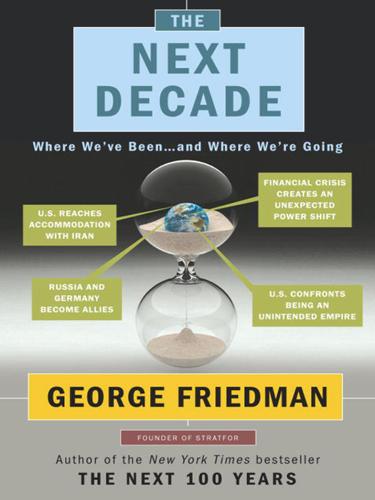
The Next Decade: Where We've Been . . . And Where We're Going
by George Friedman · 25 Jan 2011 · 249pp · 79,740 words
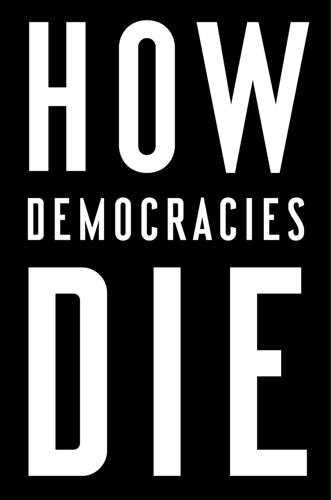
How Democracies Die
by Steven Levitsky and Daniel Ziblatt · 16 Jan 2018 · 340pp · 81,110 words
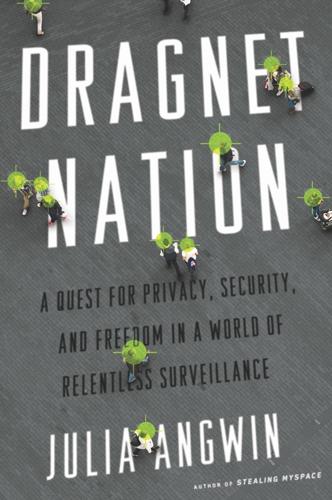
Dragnet Nation: A Quest for Privacy, Security, and Freedom in a World of Relentless Surveillance
by Julia Angwin · 25 Feb 2014 · 422pp · 104,457 words
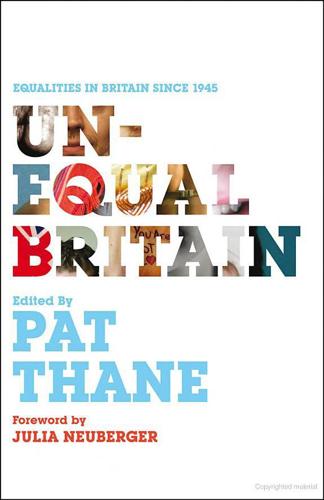
Unequal Britain: Equalities in Britain Since 1945
by Pat Thane · 18 Apr 2010 · 241pp · 90,538 words
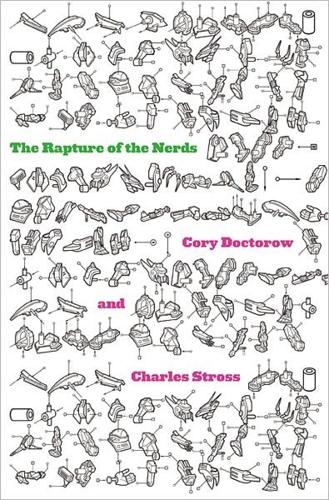
The Rapture of the Nerds
by Cory Doctorow and Charles Stross · 3 Sep 2012 · 311pp · 94,732 words
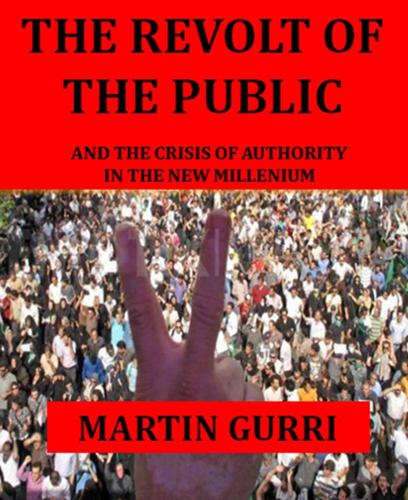
The Revolt of the Public and the Crisis of Authority in the New Millennium
by Martin Gurri · 13 Nov 2018 · 379pp · 99,340 words
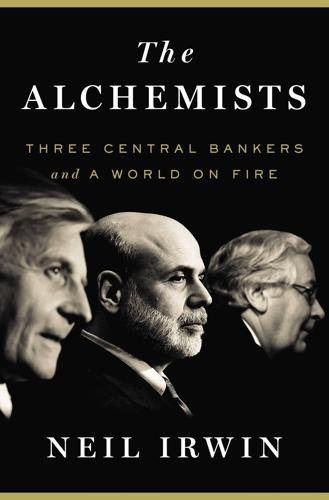
The Alchemists: Three Central Bankers and a World on Fire
by Neil Irwin · 4 Apr 2013 · 597pp · 172,130 words
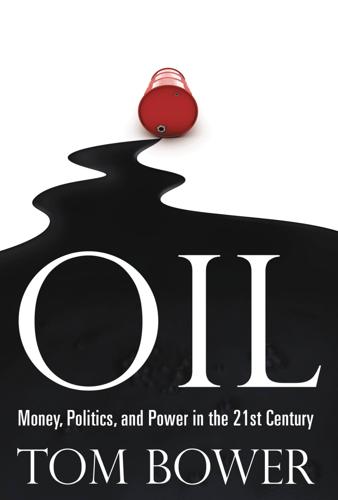
Oil: Money, Politics, and Power in the 21st Century
by Tom Bower · 1 Jan 2009 · 554pp · 168,114 words
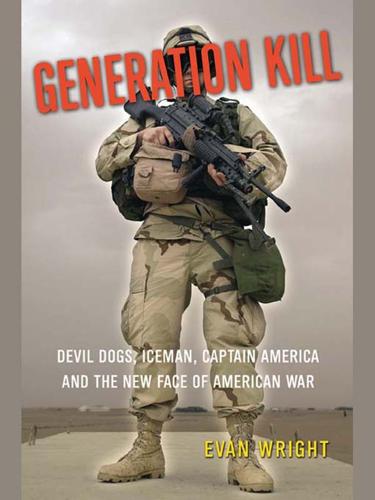
Generation Kill
by Evan Wright · 19 May 2004 · 392pp · 122,282 words
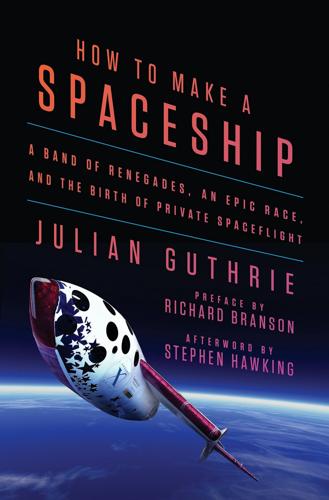
How to Make a Spaceship: A Band of Renegades, an Epic Race, and the Birth of Private Spaceflight
by Julian Guthrie · 19 Sep 2016
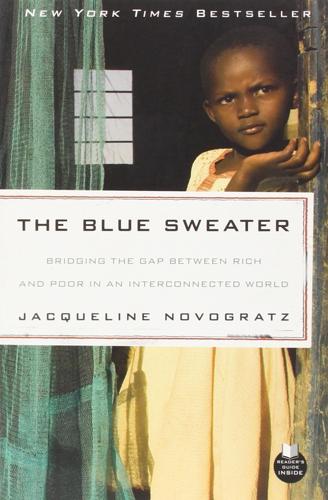
The Blue Sweater: Bridging the Gap Between Rich and Poor in an Interconnected World
by Jacqueline Novogratz · 15 Feb 2009 · 391pp · 117,984 words

Ghost Train to the Eastern Star: On the Tracks of the Great Railway Bazaar
by Paul Theroux · 9 Sep 2008 · 651pp · 190,224 words
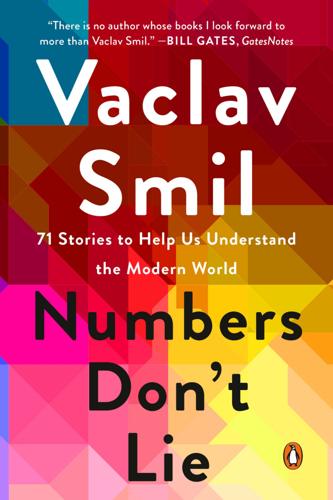
Numbers Don't Lie: 71 Stories to Help Us Understand the Modern World
by Vaclav Smil · 4 May 2021 · 252pp · 60,959 words
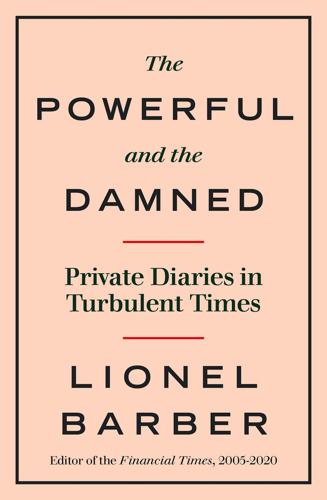
The Powerful and the Damned: Private Diaries in Turbulent Times
by Lionel Barber · 5 Nov 2020
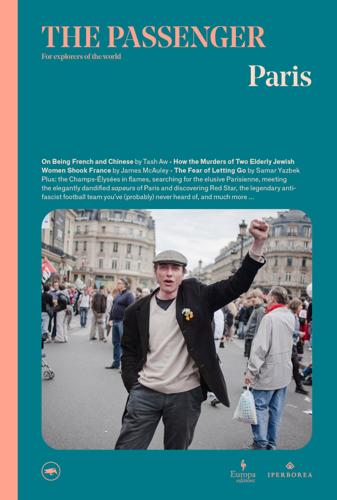
The Passenger: Paris
by AA.VV. · 26 Jun 2021 · 199pp · 62,204 words
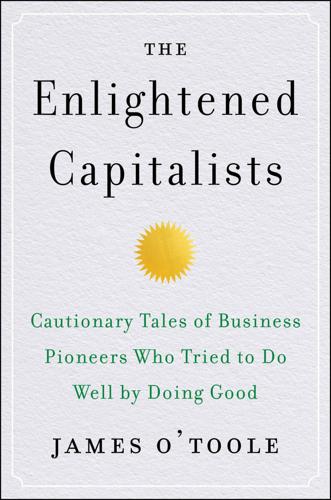
The Enlightened Capitalists
by James O'Toole · 29 Dec 2018 · 716pp · 192,143 words

The Fran Lebowitz Reader
by Fran Lebowitz · 8 Nov 1994 · 208pp · 67,890 words
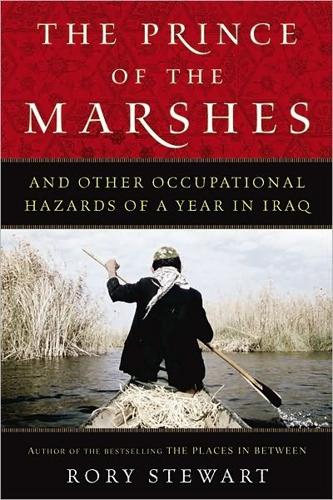
The Prince of the Marshes: And Other Occupational Hazards of a Year in Iraq
by Rory Stewart · 1 Jan 2005 · 407pp · 123,587 words
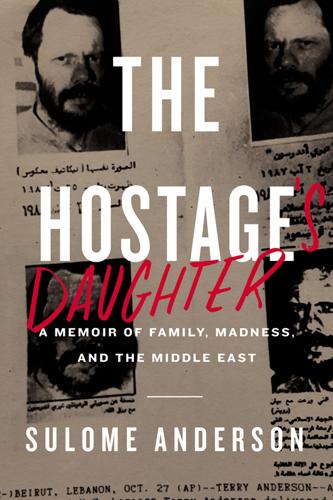
The Hostage's Daughter
by Sulome Anderson · 24 Aug 2016 · 269pp · 83,959 words
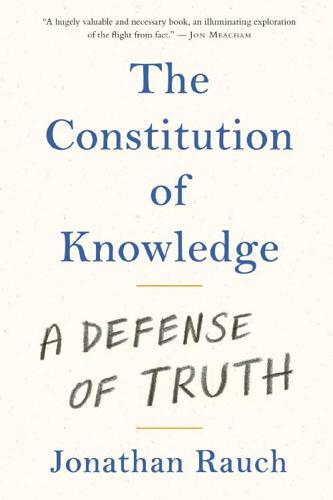
The Constitution of Knowledge: A Defense of Truth
by Jonathan Rauch · 21 Jun 2021 · 446pp · 109,157 words
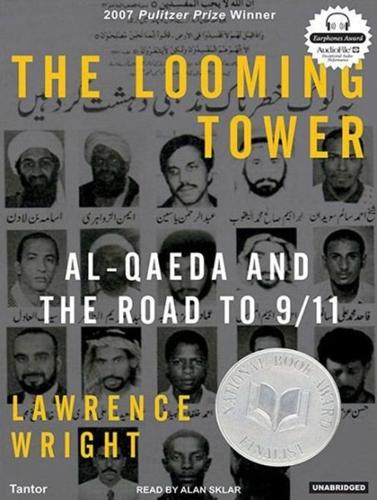
The Looming Tower: Al-Qaeda and the Road to 9/11
by Lawrence Wright · 26 Sep 2006 · 604pp · 177,329 words
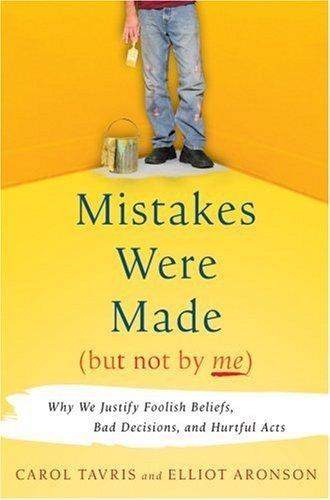
Mistakes Were Made (But Not by Me): Why We Justify Foolish Beliefs, Bad Decisions, and Hurtful Acts
by Carol Tavris and Elliot Aronson · 6 May 2007 · 420pp · 98,309 words
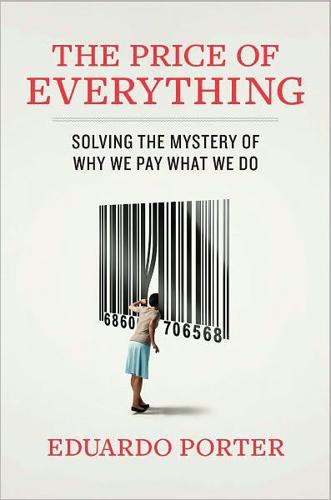
The Price of Everything: And the Hidden Logic of Value
by Eduardo Porter · 4 Jan 2011 · 353pp · 98,267 words
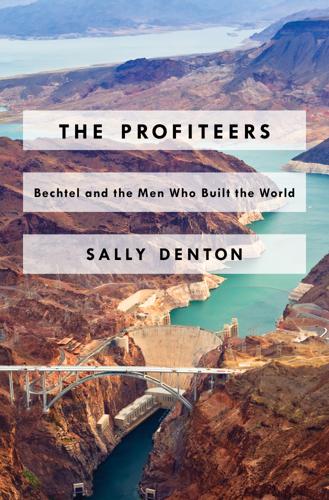
The Profiteers
by Sally Denton · 556pp · 141,069 words
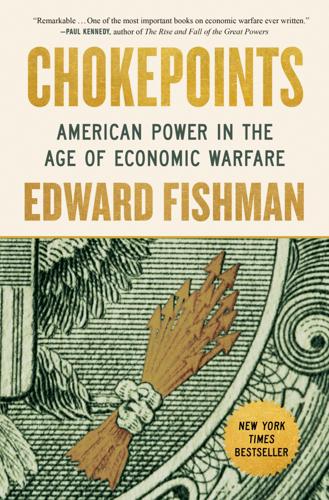
Chokepoints: American Power in the Age of Economic Warfare
by Edward Fishman · 25 Feb 2025 · 884pp · 221,861 words
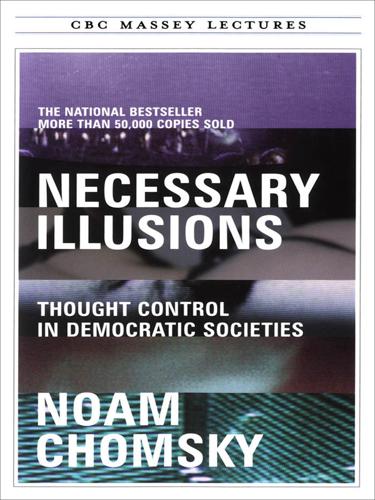
Necessary Illusions
by Noam Chomsky · 1 Sep 1995
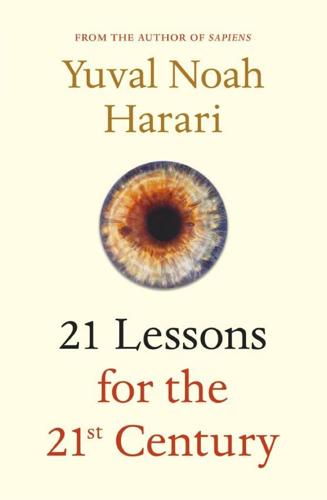
21 Lessons for the 21st Century
by Yuval Noah Harari · 29 Aug 2018 · 389pp · 119,487 words
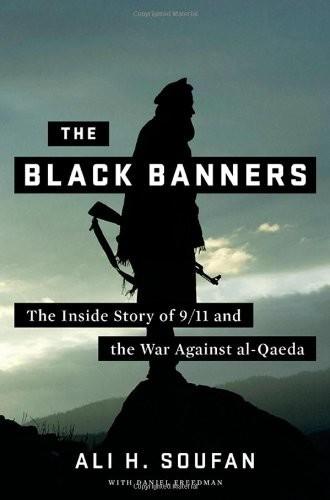
The Black Banners: The Inside Story of 9/11 and the War Against Al-Qaeda
by Ali H. Soufan and Daniel Freedman · 11 Sep 2011 · 624pp · 189,582 words
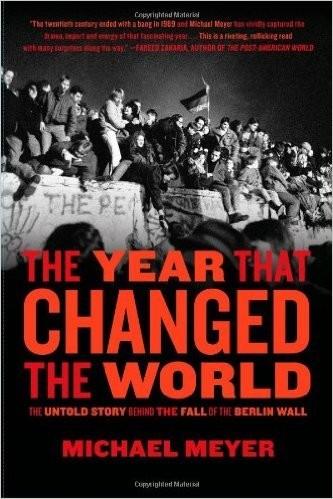
The Year That Changed the World: The Untold Story Behind the Fall of the Berlin Wall
by Michael Meyer · 7 Sep 2009 · 323pp · 95,188 words
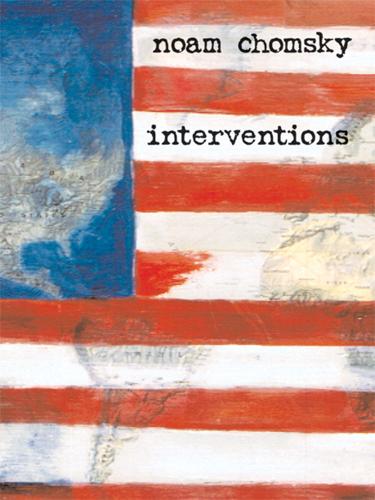
Interventions
by Noam Chomsky
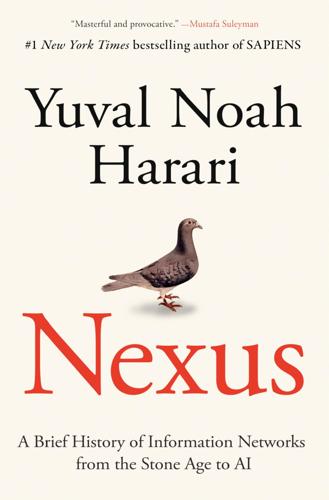
Nexus: A Brief History of Information Networks From the Stone Age to AI
by Yuval Noah Harari · 9 Sep 2024 · 566pp · 169,013 words
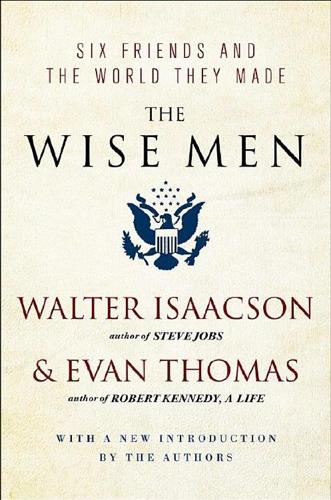
The Wise Men: Six Friends and the World They Made
by Walter Isaacson and Evan Thomas · 28 Feb 2012 · 1,150pp · 338,839 words
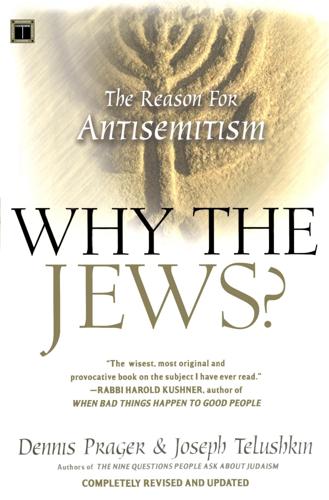
Why the Jews?: The Reason for Antisemitism
by Dennis Prager and Joseph Telushkin · 1 Nov 2007 · 289pp · 81,679 words
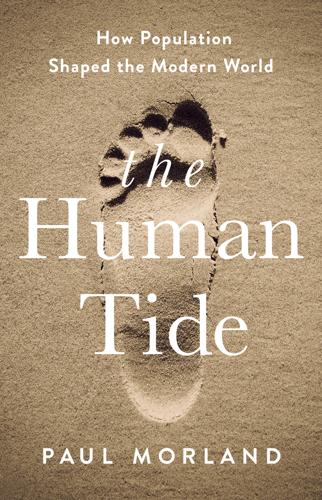
The Human Tide: How Population Shaped the Modern World
by Paul Morland · 10 Jan 2019 · 405pp · 121,999 words
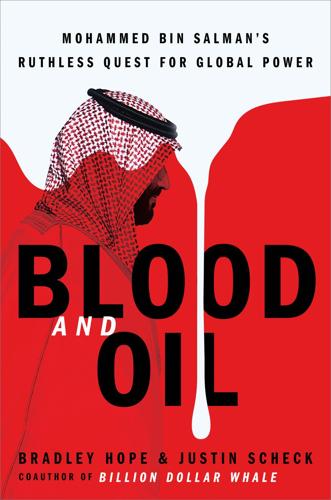
Blood and Oil: Mohammed Bin Salman's Ruthless Quest for Global Power
by Bradley Hope and Justin Scheck · 14 Sep 2020 · 339pp · 103,546 words
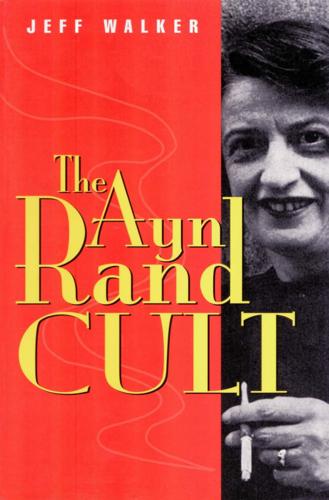
Ayn Rand Cult
by Jeff Walker · 30 Dec 1998 · 525pp · 146,126 words
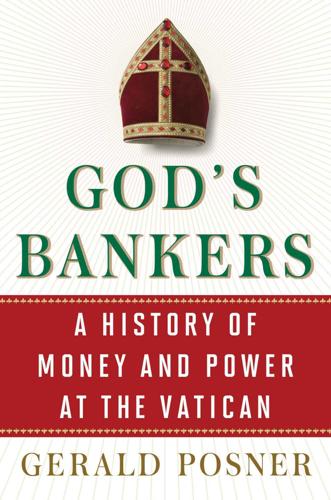
God's Bankers: A History of Money and Power at the Vatican
by Gerald Posner · 3 Feb 2015 · 1,590pp · 353,834 words

Zeitgeist
by Bruce Sterling · 1 Nov 2000 · 333pp · 86,662 words
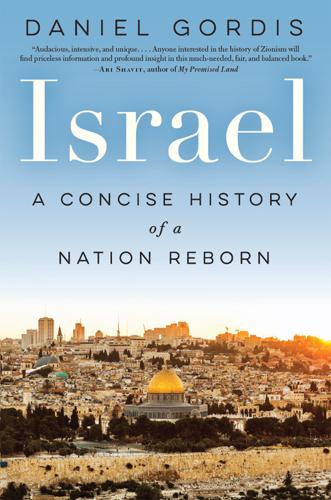
Israel: A Concise History of a Nation Reborn
by Daniel Gordis · 17 Oct 2016 · 632pp · 171,827 words
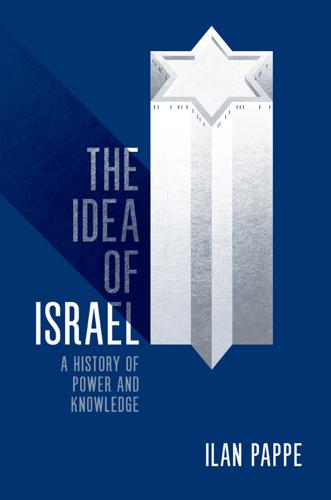
The Idea of Israel: A History of Power and Knowledge
by Ilan Pappe · 30 Apr 2012 · 387pp · 120,092 words
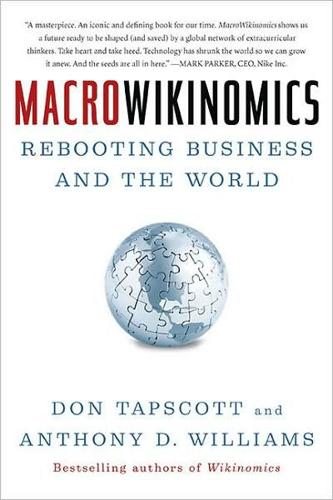
MacroWikinomics: Rebooting Business and the World
by Don Tapscott and Anthony D. Williams · 28 Sep 2010 · 552pp · 168,518 words
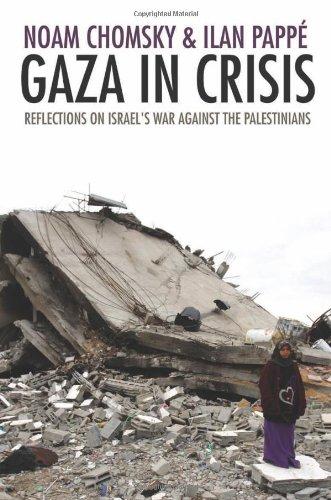
Gaza in Crisis: Reflections on Israel's War Against the Palestinians
by Ilan Pappé, Noam Chomsky and Frank Barat · 9 Nov 2010 · 279pp · 72,659 words

Mbs: The Rise to Power of Mohammed Bin Salman
by Ben Hubbard · 10 Mar 2020